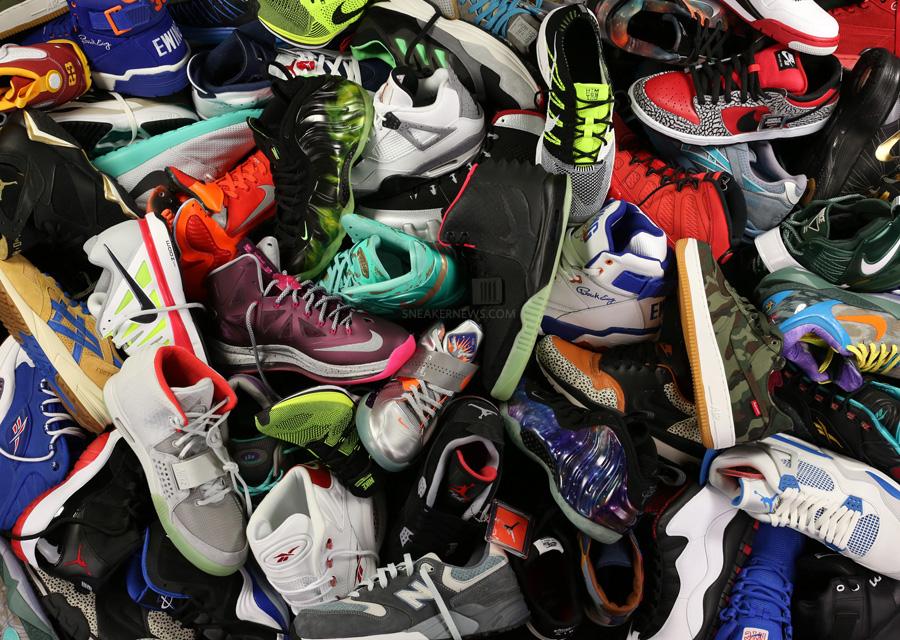
For better or worse, 2012 was a defining year for the sneaker world and all that it encompasses. It was a year that saw certain shoes throw the laws of supply and demand so out of whack, that brands and retailers had to completely rethink the way they sell shoes to the public just to keep the peace. If you were willing to put in some legwork or, better yet, had the right connections, it was a banner year for sneaker enthusiasts. “Must-have” releases seemed to be at an all-time high and nearly every weekend offered up some sort of temptation for consumers. 2012 saw the release of some of the most eagerly anticipated and passionately sought-after sneakers the game had ever seen and it’s safe to say that things will never be the same again.
In between those, there were plenty of other desirable targets along the way, from the special limited editions and collaborations to beloved Retro returns and promising new designs and innovations. There were even a few certified sleeper hits that organically carved out their place among the year’s best releases. Due to an exponentially expanding consumer base and a heightened level of product awareness, you might not have been able to get your hands on every shoe you hunted for in 2012, but there was certainly no shortage of solid alternatives ripe for the picking in their absence.
As much as some things may have changed in 2012, certain unshakable staples remained steadfast. Air Jordan retros continued to dominate, while Nike maintained its stranglehold on the
performance basketball and running categories. In the retro and lifestyle realm, however, other brands have made great strides in driving a growing parity in the market. Companies like New Balance and Asics continued to pick up substantial steam fueled by solid collaborative efforts that have helped reintroduce and popularize a slew of classic models from their respective back catalogs. Reebok brought it back to their glory days by successfully resurrecting some welcome silhouettes from the past with the promise of more on the way, and the upstart Ewing Athletics brand made some waves of their own with a long awaited and well-received comeback campaign.
This is now the fourth year that Sneaker News has tackled the overwhelming task of narrowing down twelve months of shoe releases into a comprehensive Top 30 list delving into the significance and justification for each chosen selection. By this point, the necessary criteria and general selection process have been boiled down to a science, and while we don’t claim to speak for everyone with our eventual rankings, they are chosen carefully and with love by the Sneaker News team. These are not necessarily our 30 favorite sneakers of the year – they’re the ones we felt to be the 30 most compelling sneaker stories of the year. We’re in the business of bringing you the all the latest news in sneakers and this list serves as a year-end highlight reel for 2012’s biggest headlines. Whether you agree or disagree with our selections and order, we hope you enjoy a thorough look back at the year in sneakers through the lens of the Sneaker News Top 30 of 2012.

Managing Editor: Aaron Kr.
Photography: John Kim/Sneaker News
Production: Yu-Ming Wu
Writers: Aaron Hope, Aaron Kr., Brendan Dunne, John Kim
The Sneaker News Top 30 of 2012 is also available as a printed book.
PURCHASE THE BOOK HERE

NUMBER 30 STARTS ON THE NEXT PAGE…

30 | STUSSY x CONVERSE PRO LEATHER
Converse is a brand that doesn’t need any lessons in staying power. The footwear label that dates back over a century has written the book on timeless sneaker fashion, with the Chuck Taylor leading the way to dominant relevance on an unmatched global level. This year, the New England-based brand re-inserted a fellow basketball icon in the Pro Leather back into the lifestyle sneaker scene with an impressive re-launch of the shoe; with the help of Dr. J, a limited-edition release with Jordan Brand, a special capsule of World Basketball Festival colorways, and a slew of collaborative projects on the exquisite First String label, the Pro Leather was poised for success.
Of the entire collection of Pro Leather releases in 2012, the premiere editions were undoubtedly the trio of “patchwork” designs put forth by the New York City chapter of revered street-wear brand Stussy. The inspiration for the two releases came directly from 1990’s Americana fashion, with a striking patchwork of premium materials like plaid,
denim, corduroy, canvas, and the American flag comprising the rear of the shoe. Two distinct color ways of navy blue and a burnt reddish brown suede were released in late August, and with just 125 pairs of each color being available, neither one had any trouble selling out immediately.
Converse fans were in for a pleasant treat as a third “camouflage” patchwork design became available in December. This third rendition unified various styles of the ubiquitous camouflage print – a rather trendy design option for sneakers this year and Stussy’s second time in a year using “Camo” on a Converse – the first being the Sea Star Ox of the Spring/Summer season. Converse’s careful selection of Stussy as one of five partners for the Fall/Winter line of First String Pro Leathers proved to be a decision worthy of celebration as their “New York Crew” was responsible for producing arguably the strongest Converse release of the year.
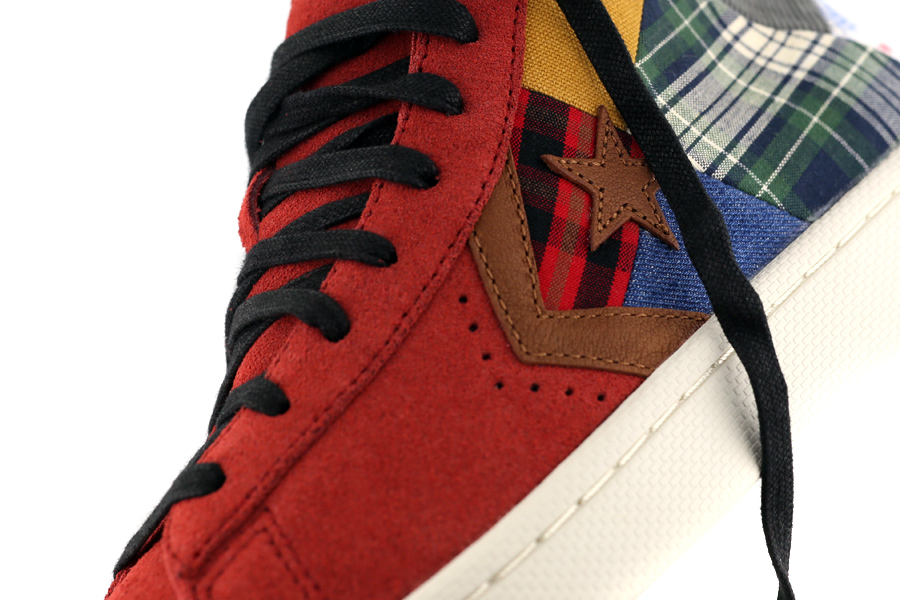
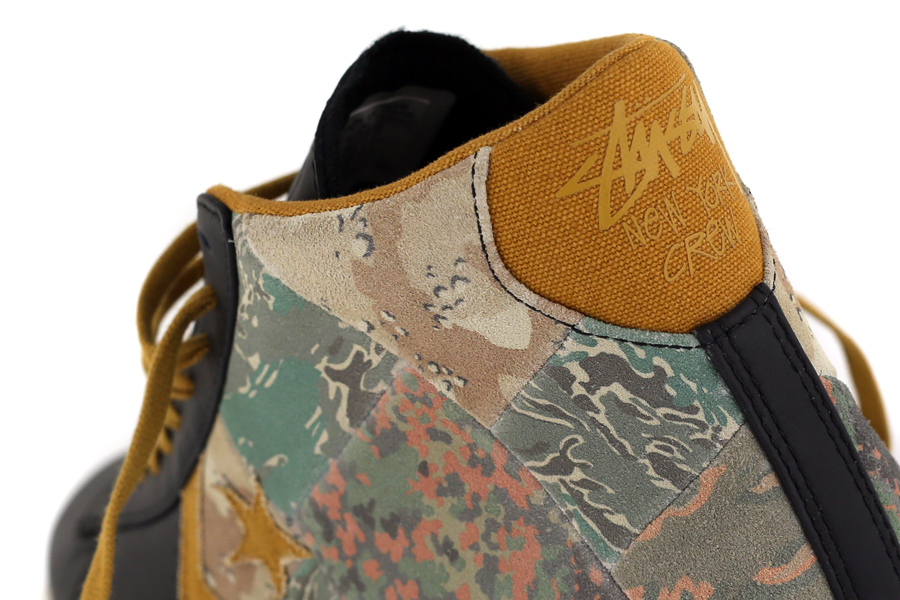
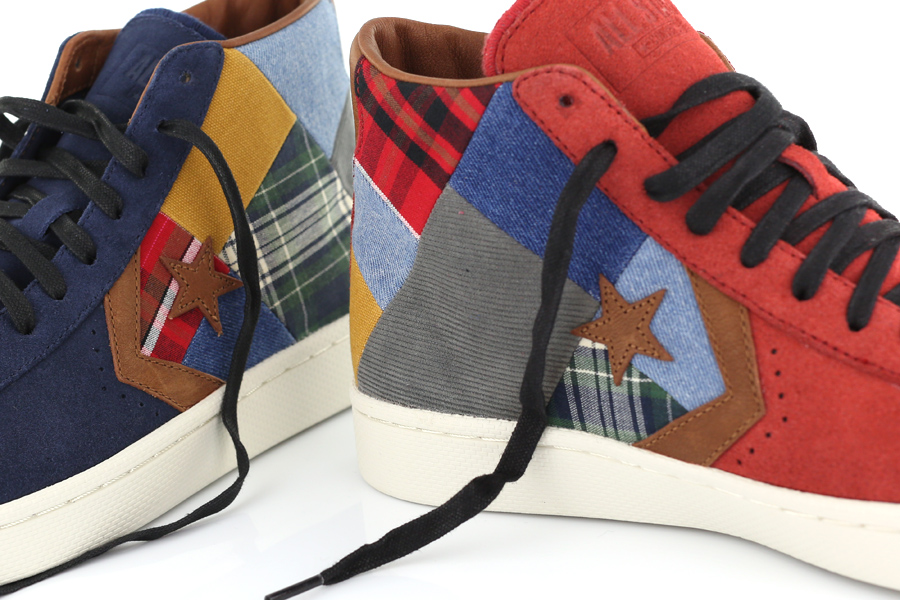
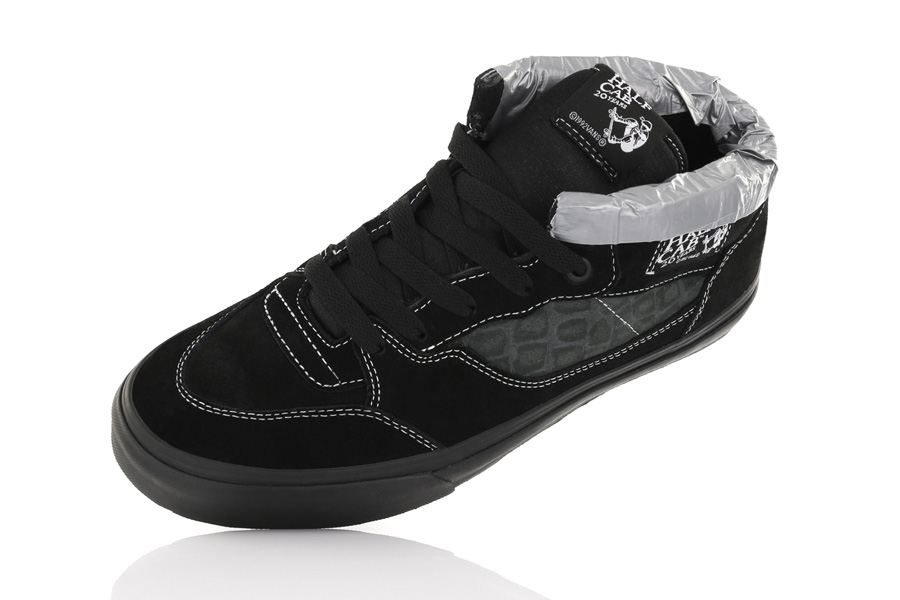
29 | VANS HALF CAB 20TH ANNIVERSARY
Legendary skateboarder Steve Caballero received his first signature Vans shoe back in 1989, but it was three years and an unusual set of circumstances later that his best known shoe came to be. The original Cabellero model featured a traditional full high-top cut, but after noticing that many skaters were cutting off the top half of the shoe to make a mid-cut version, Steve decided to try it out for himself and fell in love with the results. Preferred methods of sealing up the homemade surgery were stickers, tape and even sewing, but Steve found that duct tape did the job best and went through a few pairs before it dawned on him – why not just ask Vans to make a mid version?
As a result of his request, the Half Cab was born, and has since gone on to be one of the most enduring and beloved skate models on the market for over two decades. With 2012 marking the milestone 20th anniversary of the original Half Cab, Vans celebrated in style by releasing several OG colorways in addition to an ongoing artist
series featuring some interesting new spins on the iconic shoe. From the Dirty Donnie, to the Taka Hayashi, to the Metallica “Kill Em All” and even Steve’s own special interpretation of the shoe, the Half Cab was truly celebrated in style and saw some of its most interesting looks ever.
While there was plenty for Half Cab fans to sink their teeth into, nothing quite topped the initial birthday kickoff where a special set of twenty pairs were sold exclusively through Supreme, with each one personally cut down and duct taped by Steve Cabellero himself to replicate the shoe’s infamously unorthodox genesis. Not only was it a creative and authentic vehicle to tell the story of the shoe and pay respects to its heritage, but it also provided its twenty fortunate owners with an incredible ownable piece of Vans/skate history presented in a personal way that has seldom if ever been seen made available to the public through retail channels.
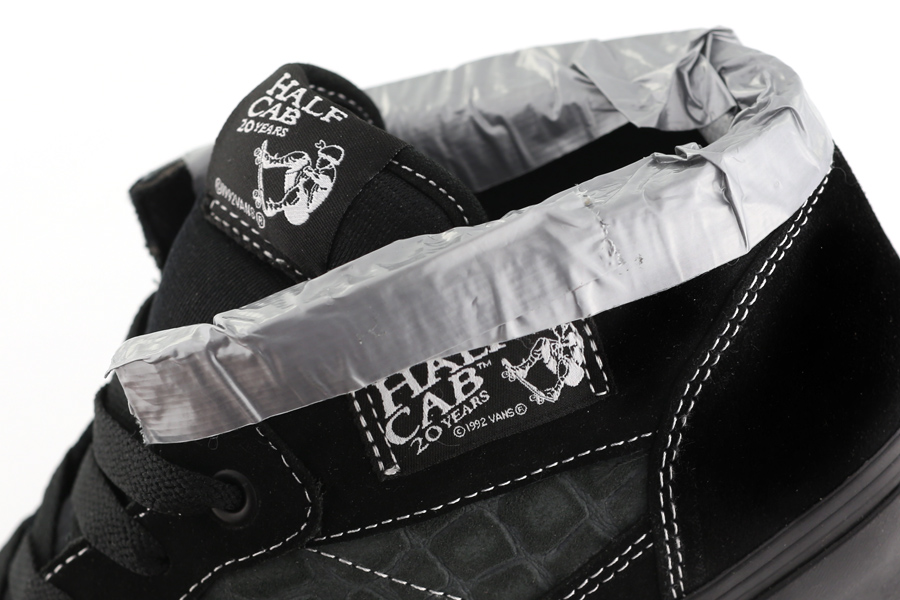
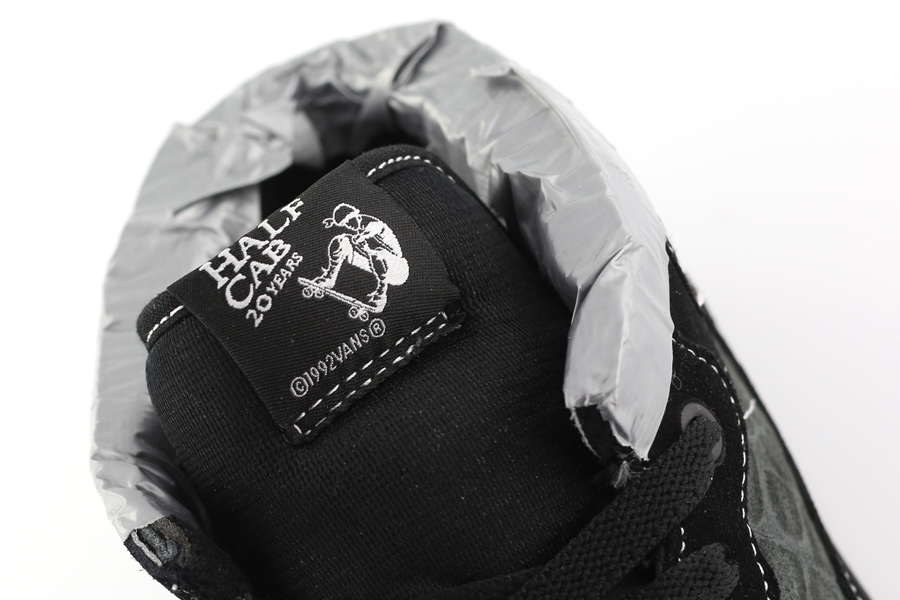
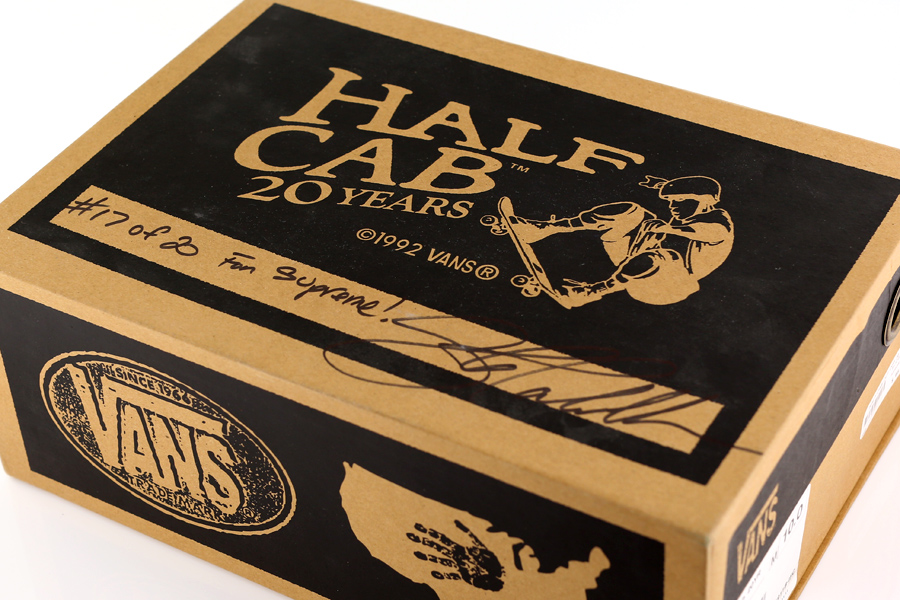
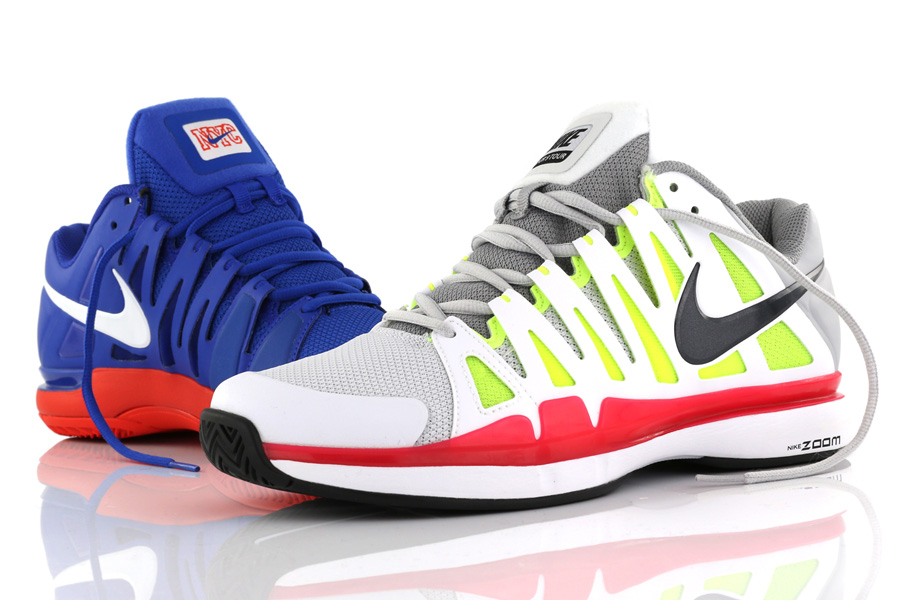
28 | NIKE ZOOM VAPOR TOUR 9
There was a time that “tennis shoes” was a term perfectly synonymous with the word sneakers, and for some regions and older generations this is still the case. However, excluding classic retro and vintage styles, it’s been quite a while since new models actually designed for the game of tennis have been embraced as anything more than a shoe to wear while smacking a ball over a net with a racket.
In the early 90s, the Andre Agassi-fueled Nike Air Tech Challenge line shattered the expectations of what a tennis shoe could be and look like, both on and off the court, and has remained as the highwater mark of the genre for some time now. Even with current superstars like Roger Federer and Rafael Nadal on their roster, Nike had never really captured that crossover street-wearable magic on any of their signature models until earlier this year with the introduction of the Zoom Vapor Tour 9.
With Roger Federer’s career accomplishments now reaching mythical heights, Nike upped the ante for his shoe line by bringing in none other than Tinker Hatfield to design this year’s installment. As expected, the design legend brought his one of a kind approach to the shoe, eagerly embracing some new technology by using an iPad program to map out conceptual sketches and blueprints, eventually creating a beautiful new silhouette that’s as lightweight and breathable as a running shoe, but with all the support and traction needed for optimum performance on the tennis court.
In addition to its tennis capabilities, the shoe’s sleek tech look also caught on as a sleeper hit for the street as well. From the initial white/neon/red inline colorway to later offerings like the Wimbledon and “NYC” US Open editions and the Agassi ATC-inspired “Flame” version, there was plenty for sneaker appreciators to like about the Vapor Tour 9, which quietly solidified an enthusiastic cult following and re-established some long absent street cred for the Nike Tennis category.

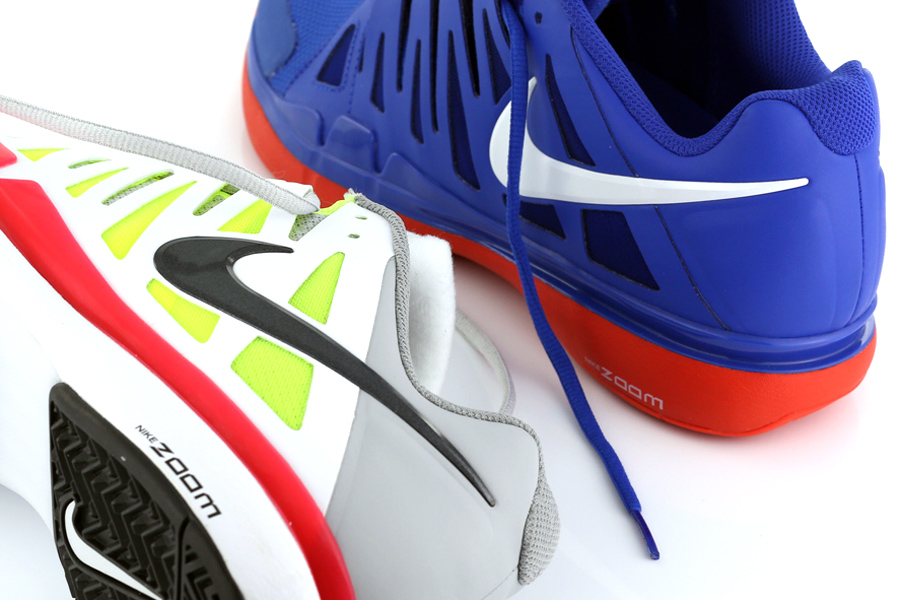
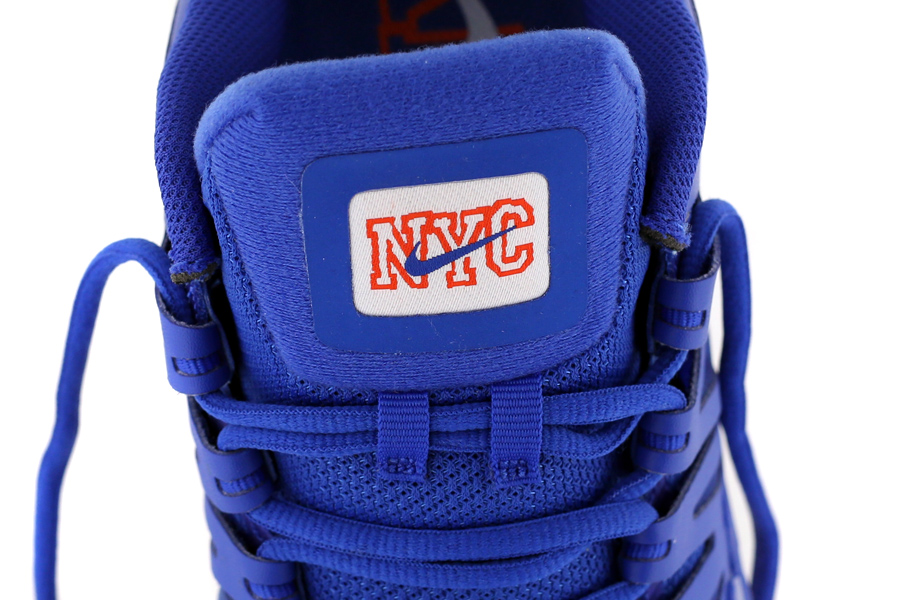
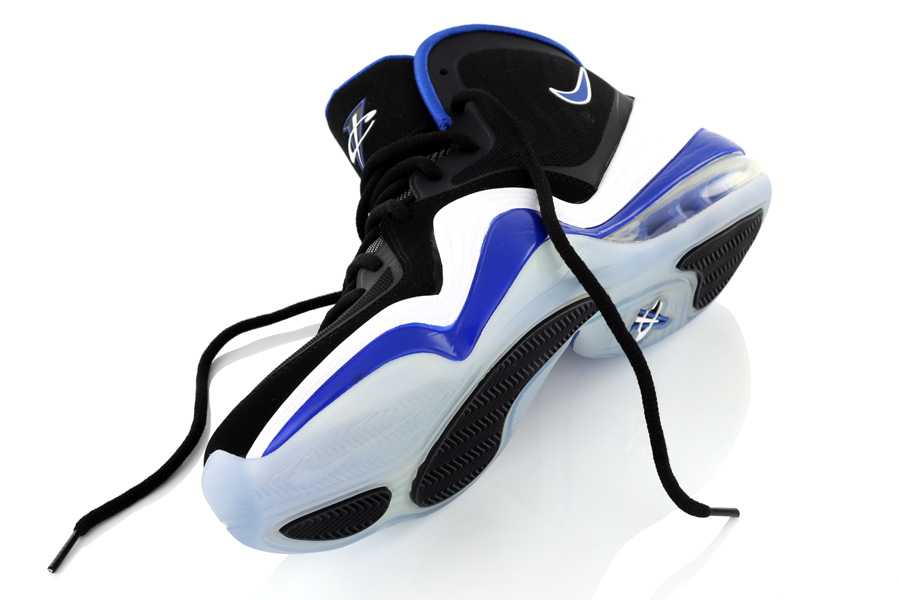
27 | NIKE AIR PENNY V
There is no question to whom the most popular signature sneaker series of all time belongs. Michael and his Air Jordan line were so successful that people were looking for his heir apparent even before the first retirement. And while that whole Harold Miner thing didn’t exactly work out, Nike did indeed strike gold with another young guard playing his pro ball in Florida. The Orlando Magic swapped their 1993 number one overall draft selection in Chris Webber to the Golden State Warriors for Anfernee ‘Penny’ Hardaway, who’d been selected third in a trade that sent shockwaves through the NBA for years to come. Along with a young Shaquille O’Neal, the two rising stars created one of the league’s most formidable duos, particularly with regard to marketing potential.
After a solid two year stretch that gave the Magic their first 50-win season and NBA Finals appearance, Beaverton realized that Penny didn’t need to be the next Michael for his next-gen Magic (Johnson) approach to be plenty signature-worthy. The Nike Air Max Penny was unveiled for the following season, and the line went on to go strong from there as Hardaway posted career numbers in the Air Penny II, had a last hurrah with the Magic in the Penny’s IIIs, and saw the fourth, and what was thought to be final, Air Penny model release in support of a Phoenix Suns tenure that turned out to be the beginning of the end for the injury-plagued superstar.
Ten years after the Air Penny IV, memories of Chris Rock as Lil’ Penny proved poignant as heads had continued to cop sporadic Penny Retros. Nike Sportswear turned its modular alchemy on the series and resurrected the familiar ‘1c’ insignia with the Half Cent hybrid for 2009, then rode that wave of success into the Zoom Rookie LWP last year, and with quite a few retro releases in between, it became clear the market is still hungry for more Air Penny goodness.
All that history brings us to this fall, when NSW released the Air Penny V, setting a record for longest time between signature releases with the first totally fresh post retirement Nike drop for anyone not named ‘His Airness’. Following up on those mash-ups borrowing from Hardaway’s whole career, the Air Penny 5 found its place in the canon with familiar materials, swooping lines and colorways inspired by Anfernee’s unique basketball odyssey. Styles like the ‘Orlando’ and ‘Suns’ referenced some notable NBA stops along the way, while the ‘Red Eagles’ told a personal tale and the ‘Dolphins’ edition connected with one of today’s trendiest palettes in a nod to Hardaway’s retired life down in Florida. Great design, storytelling and personality made the Air Penny series a hit when it debuted over fifteen years ago and it proves to be a timeless combination with the success of the Penny V all these years later.
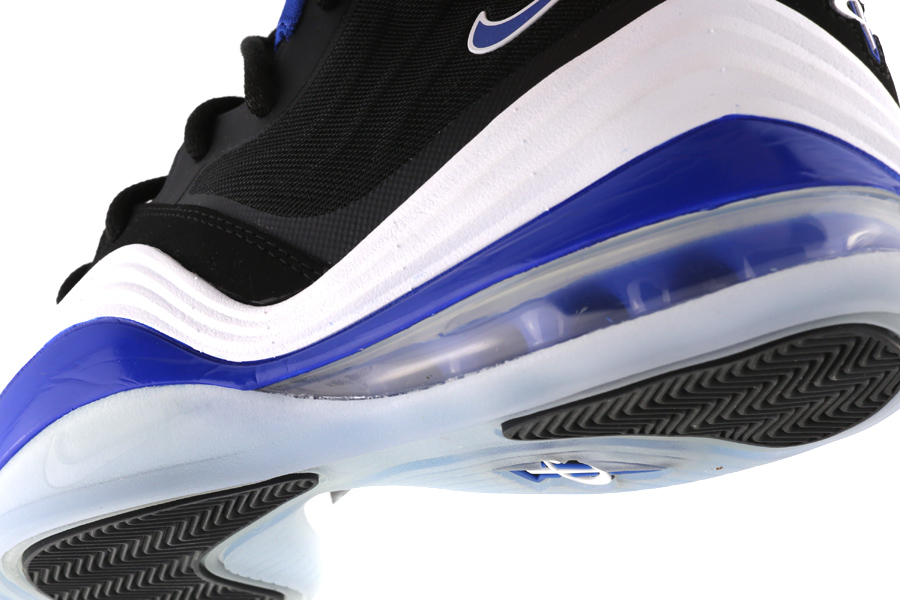
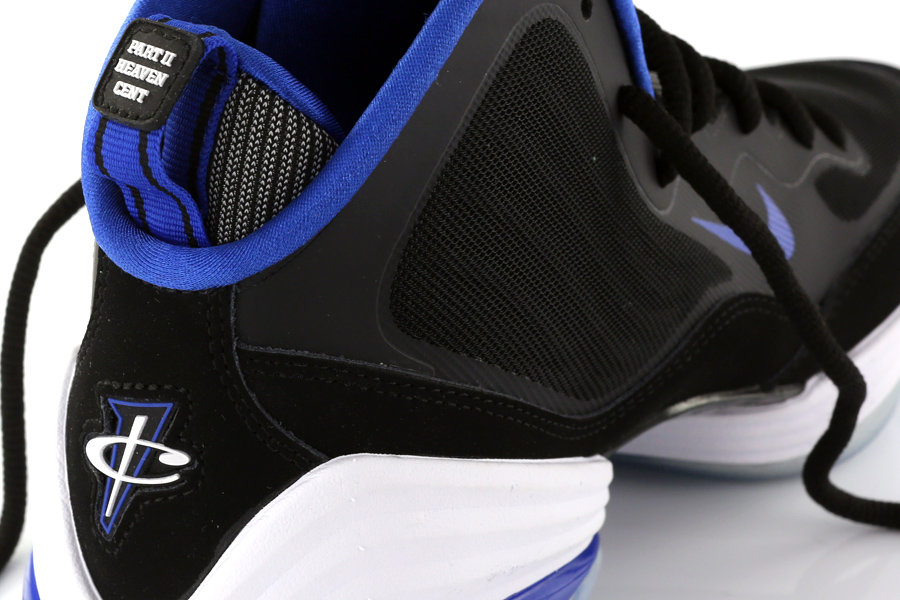
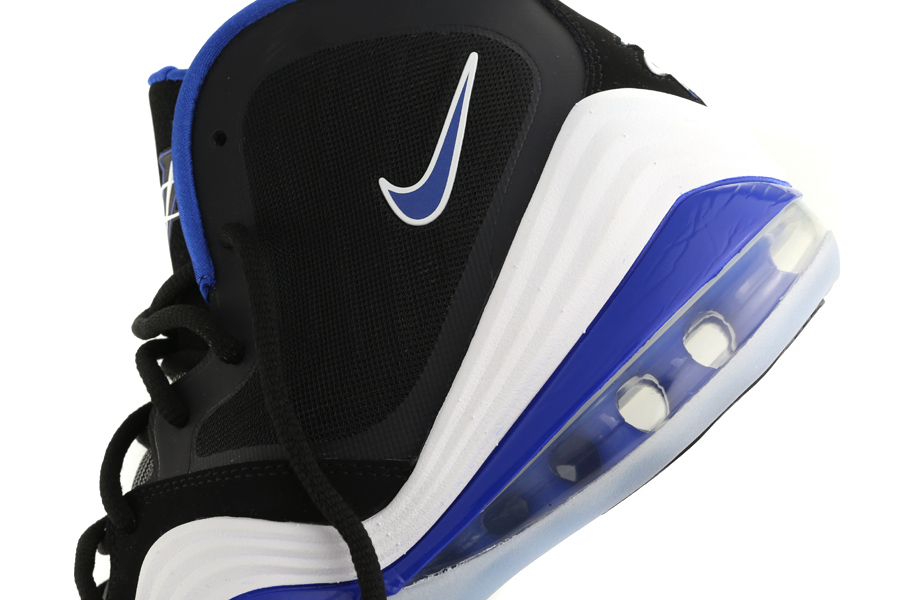
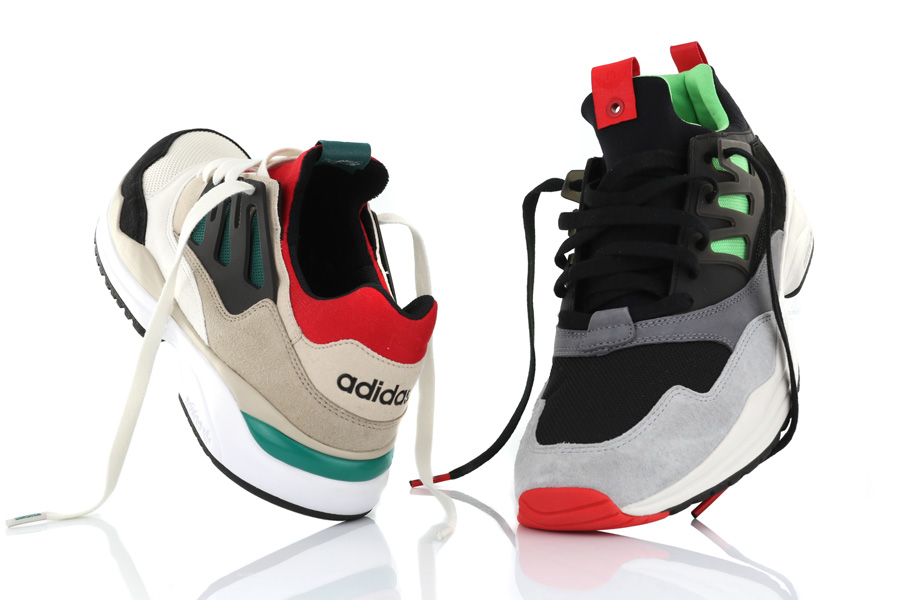
26 | SOLEBOX x ADIDAS ORIGINALS TORSION ALLEGRA
If you ever needed proof that adidas has a healthy back catalog of silhouettes just waiting to get the retro treatment, than look no further. No wings, no tails, no fur or wacky materials. Instead the adidas Consortium Allegra pack rested on the laurels of classic 1990s running design. The Allegra Torsion EQT sauntered onto the scene decades ago with a faster shape than those who’d come under the adi-fold as Run DMC disciples were used to, the trademark three stripes even evolving their shape to follow the fluid lines and shapes of the shoe.
Despite the re-emergence of some great older silhouettes, in today’s overwhelmingly crowded sneaker landscape, sometimes you need to go above and beyond just the simple re-release of OG colorways in order to effectively announce your presence with authority. For the re-introduction of the Torsion Allegra, adidas did just that, placing it under its Consortium imprint umbrella and teaming up with German retail powerhouse Solebox for a special version of the shoe guaranteed to make a splash and ensure a proper spotlight for the classic runner’s late 2012 comeback.
The Berlin based boutique whipped up a truly head-turning version of the shoe, utilizing a toned down black/grey upper that relied on some vibrant accent hits to bring the design to life and give it a memorable look all its own. Sporting some carefully placed touches of bright red
and a super-vibrant green that managed to somehow create the appearance of a glow without the use of luminescent paint or LEDs, Solebox’s Allegra offering more than did the job of reinvigorating interest in this blast from the past, but the fun didn’t stop there. The adidas team decided to serve up a solid one-two punch for the December relaunch, pairing the Solebox edition with a more traditional color-up that took some cues from original colorways of its 1992 brethren, the adidas Torsion Allegra S. Both pairs came with some special bits of branding as well: the in-house style sporting the signature Consortium handshake logo and the Solebox pair upgraded with some overt co-branded callouts embossed onto the heels.
The adidas Consortium Allegra pack was not only an awesome release in terms of well-executed suede and mesh bangers, but also for what it represents going forward: the potential for a more extensive variety of revived adidas running silhouettes that stretches beyond the various tried and true ZX standards. While other retro running throwbacks have not received much push from adidas in the States over the years, the current revival of the category with consumers has obviously caught their attention and is being capably addressed. Hats off to these initial pairs for getting the ball rolling on what promises to be a solid retro run for the still slick-looking adidas Torsion Allegra, not to mention the future re-issues that it will hopefully inspire and pave the way for.
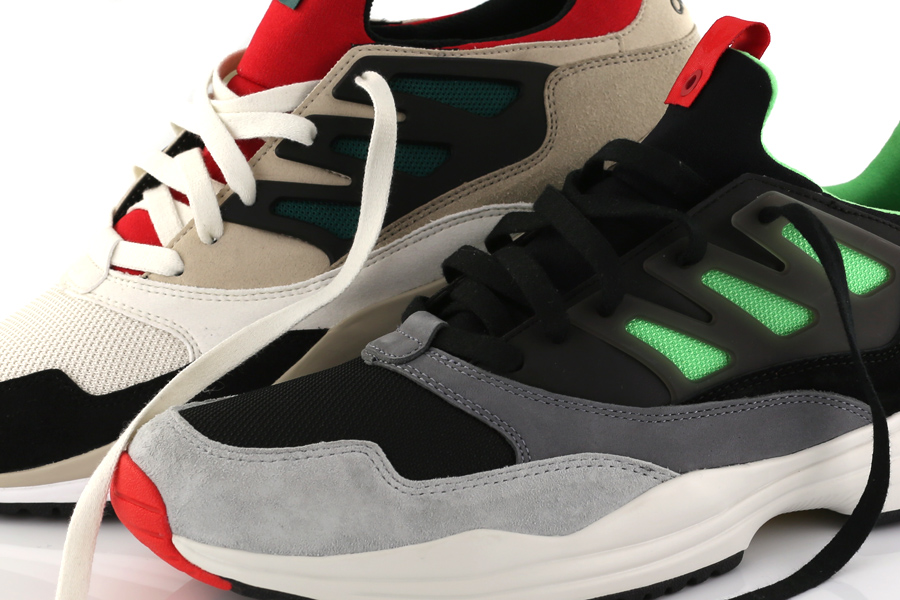

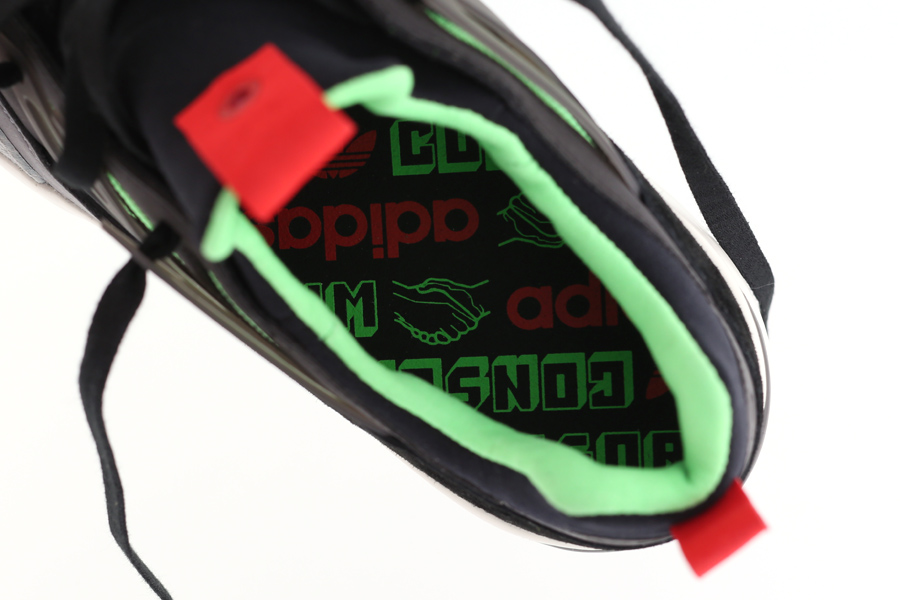
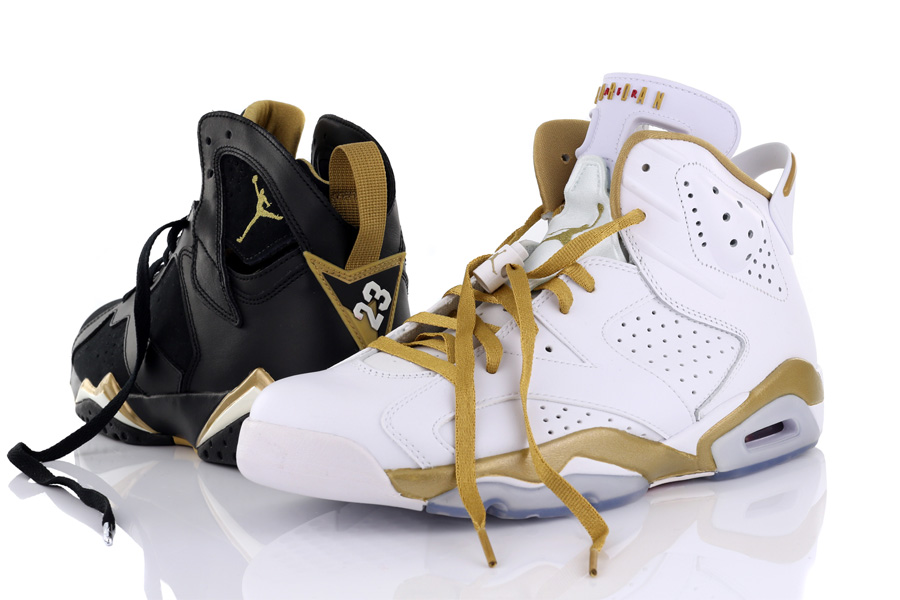
25 | AIR JORDAN GOLDEN MOMENT PACK
2012’s Olympic summer gave us a huge variety of great sneakers both new and old. Flyknit stole the show in London, while the 20th anniversary of a memorable Olympiad seven hundred miles south spawned a bunch of dope retro reissues. Nike Sportswear launched a ‘Dream Team’ collection that spanned from those 1992 games through the early part of this century, but it was the signature series of the greatest team ever’s leader that has continued to grow even larger than the famed MJ billboard in Barcelona, eventually transforming into a brand all its own with its very own commemorative releases this time around.
The Air Jordan Golden Moment Pack furthers that sense that His Airness has utterly permeated the game of basketball and its sneaker market, with numerous connections that help to explain why the Jumpman is tops in the roundball world across the globe. This combination of the Air Jordan VI and VII, packaged together with American Flag dustbags, commemorates the first two Olympic Gold Medals won in Air Jordans, but with those individual models also being released separately this past summer in their original forms,
the GMP looked to its 2006 forebear, the Defining Moments Package, for some prestigious design inspiration. The result was a similarly elegant black/white/gold setup, with the GMP Jordan VI taking on a pristine white build while the black VIs added a bit more texture with the suede and smooth leather split.
The Olympic nostalgia and premium quality materials alone were more than enough to ensure instant sellouts in August, but whether it was due to rampant reselling, the availability of so much other heat this summer or other factors, these didn’t seem to capture quite the same universal adoration as the similar DMP installment six years earlier. With a total of sixteen Air Jordan two-packs including the eleven Collezione Packages, the DMP is still king, but it’s easy to see this Golden duo in the top third of that list, despite some being left unimpressed by this latest effort. Regardless of its standing amongst its Retro double-box competition, there’s no denying that the Air Jordan Golden Moment Pack made its impact felt in 2012, both for it’s minimalist lux aesthetic and the glorious historical ties it honors.
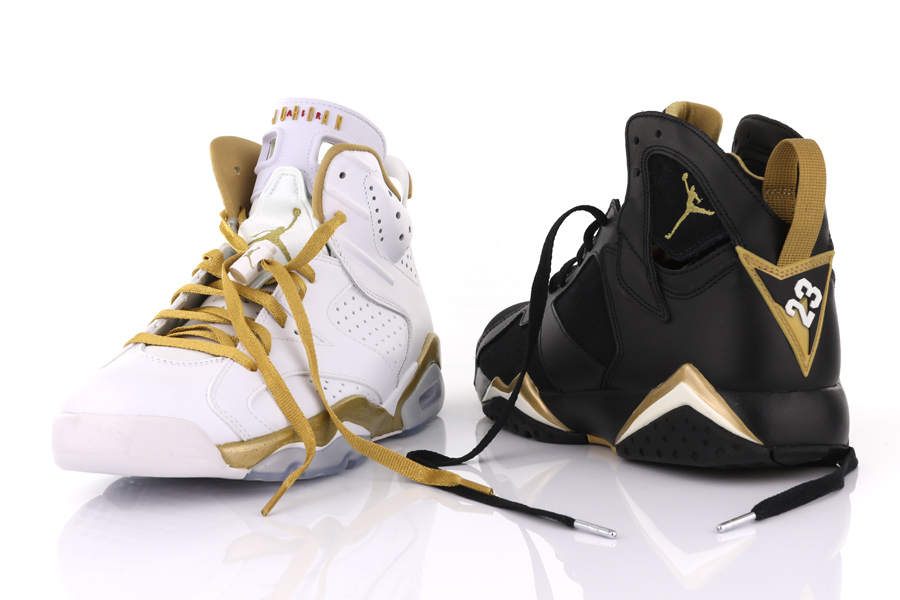
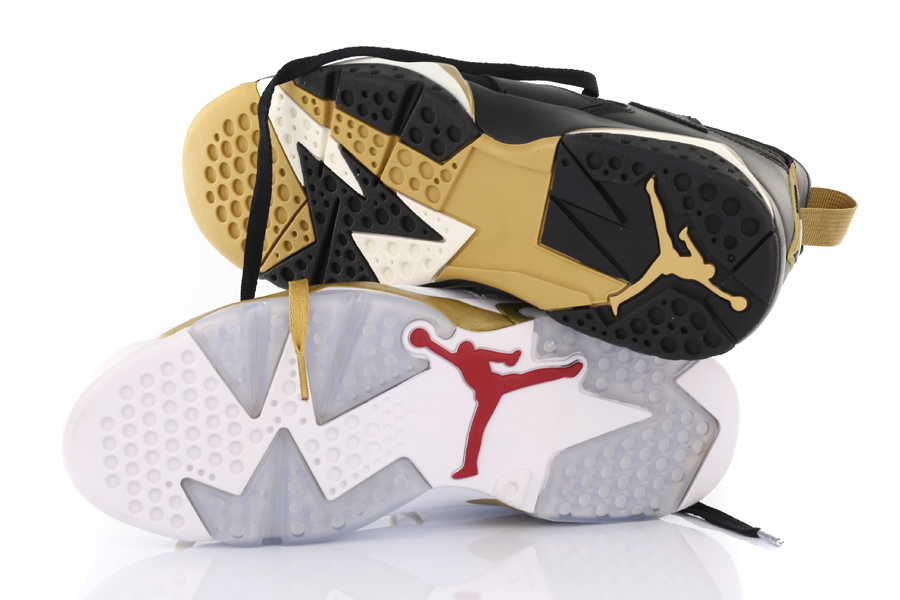
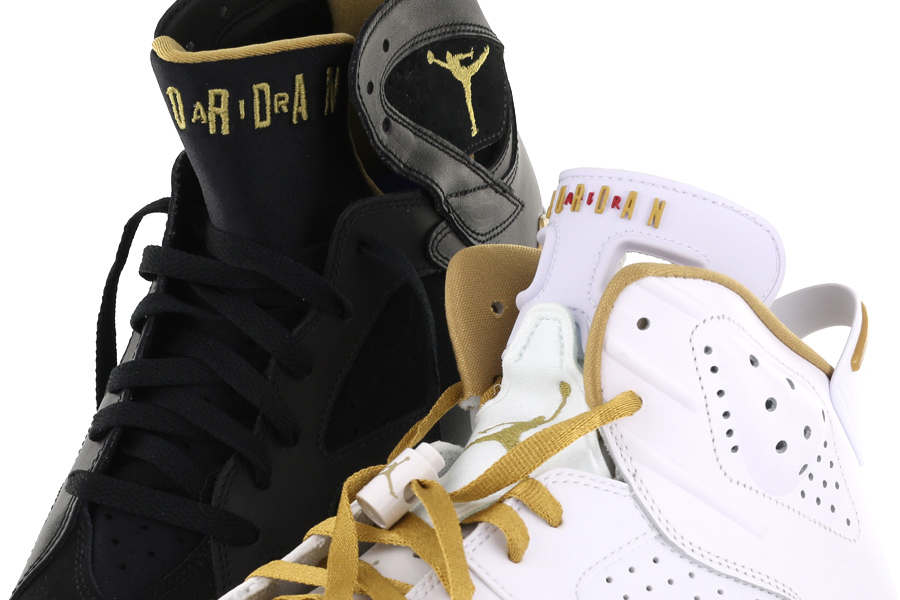
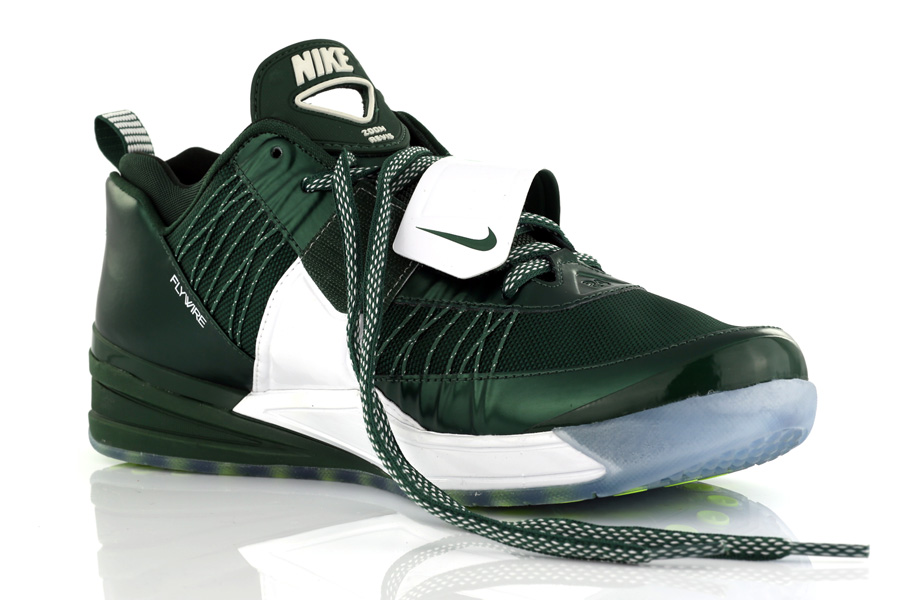
24 | NIKE ZOOM REVIS
2012 was an incredible year for Nike on both the domestic and global scale. Unbridled presence throughout the Olympic Games, dominance in the basketball footwear market, and other notable advancements in tennis, soccer, golf, and other global sports summed up an outstanding string of accomplishments for all of Nike’s concentrations. However, one of the most resounding headlines was Nike’s much-anticipated takeover of American football, which was confirmed after its acquisition of the NFL licensing rights following a bidding war against Reebok two years ago. With the unveiling of some incredible on-field equipment like the Bill Bowerman-inspired Elite 51 uniforms and the Vapor Talon Elite cleats, Nike was clearly ready to take on this powerhouse of a sport, and while the licensing deal hadn’t held it back, would this mean some new life pumped into the sneaker leg of a category that hadn’t seen a signature model for a Nike Football athlete in a decade?
Nike ended their ten-year drought without a signature shoe for an NFL athlete, selecting New York Jets star Cornerback Darrelle Revis and officially introducing his Zoom Revis model in December. Upon its release, Darrelle (who had his 2012 season cut short due to injury) joined an incredibly selective fraternity of legendary athletes in the NFL, which includes historic names like Bo Jackson, Barry Sanders, Deion Sanders, and a young and promising Michael Vick. While Nike already boasts an elite crew of top-notch NFL superstars on the offensive side, the choice of Darrelle Revis, a defensive player, for the next football sig, speaks volumes on his athletic superiority, his character, and his recognition as one of the top athletes in the world.
The Nike Zoom Revis was created by veteran design architect Ken Link, whose impressive track record at Nike is a mile long and well documented. By focusing on the essentials of speed and lightweight, Ken created a sneaker blueprint that fit the needs of Darrelle’s intense training; the Zoom Air cushioning, the lockdown system of the mid-foot strap, the exposed Dynamic Flywire, and the Traction On Demand system on the outsole all came together to create a high-performance training shoe that also happened to look pretty cool. Aside from the technical aspects, the Zoom Revis features a number of personal details that may not be visible at first glance; the Flywire cables, inspired by the bridges of New York City, read ‘24’ in Roman Numerals, while a personal message of “The only way to handle pressure is to apply it” found on the underside of the right shoe’s strap.
The unveiling of the Zoom Revis at year’s end could be seen as somewhat of a “cherry on top” of this first year of the Nike x NFL connection. After a few months of NFL-inspired releases in the form of the NFL Draft Pack, the Calvin Johnson CJ81 Collection, and the reissues of some 1990’s on-field gems like the Speed Turf Max, Total Air Pillar, and Air Diamond Turf II, it was clear that the sneaker-crazed segment of the NFL fanbase was not by any means ignored during this celebratory campaign. Only time will tell, but based on the Zoom Revis’ solid design and the historical popularity and legacy of football-derived Nike sneakers, let’s hope this is just the beginning for the Revis line and the brand’s further expansion into the infinite realm of gridiron footwear possibilities.
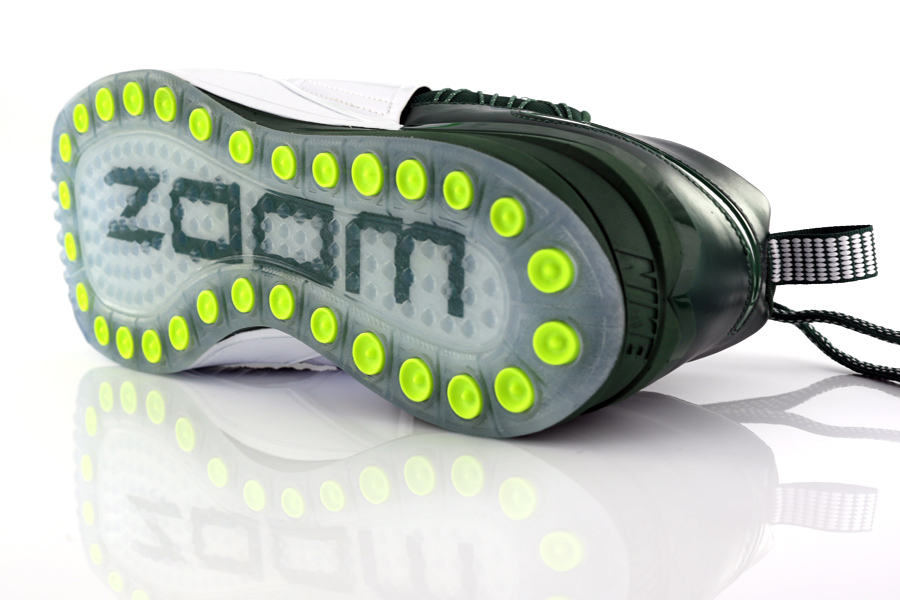
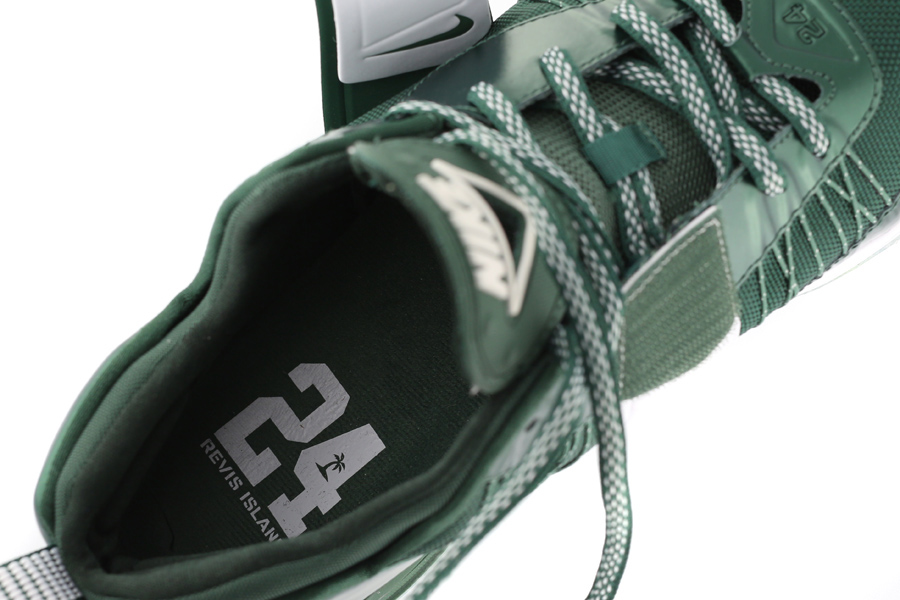
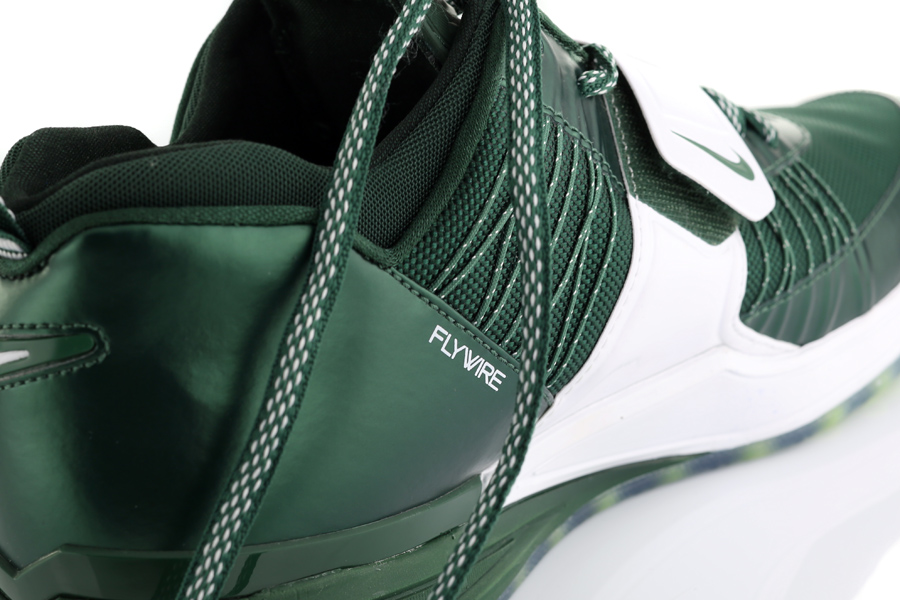

23 | NIKE AIR SAFARI 25TH ANNIVERSARY PACK
Is there anything Tinker Hatfield can’t/didn’t do? That hallowed name is of course most connected with the likes of the Nike Air Max and Air Jordan legacies, but carving out those massive lanes in sneaker history apparently just wasn’t enough to keep him busy back in the 80s. Coming to fruition in 1987, one of the all-time greatest years for Nike designs (check the vintage catalog shots if you need the proof), were a few more Tinker helmed classics that pushed the envelope in their own right and have since gone on to individual legendary status.
One such achievement was the Nike Air Safari, the Biz Markie approved sneaker that was of the earliest Nike performance offerings to lean towards the luxury realm in its aspirations. The story goes that Hatfield was out in NYC looking for inspiration when he stumbled across a particularly fancy ostrich skin sofa in a high end furniture store. A clerk present kicked him out of the store while explaining that that sort of high end piece was out of Tinker’s range, sparking a bit of inspiration for the young designer. What if he could somehow pull down that lux feel and make it available to the commoners? What if an everyman sneaker could integrate that snooty air to its own end? Hatfield brought it all to fruition in bold fashion and the game-changing Nike Air Safari was born.
Another of Tinker’s 1987 marvels was the Nike Air Trainer 1, the strapped down performance animal that brought idea of a multi-sport cross-trainer shoe to the masses. The release was included in the same “Air Pack” as the aforementioned Nike Air Safari, Air Max 1, Air Revolution, and Air Sock, this huge range of offerings famously introduced to the world via the classic Wieden+Kennedy curated ‘Revolution’ commercial. Did we mention that sports luminaries like John McEnroe and the master of all trades Bo Jackson wore the sneaker in its early years to cement its place in the public eye? Just another day at the office for the mindblowingly prolific Mr. Hatfield.
Both the Nike Air Safari and the Air Trainer 1 were brought back for a 25th anniversary celebration this year, the Trainer 1 adopting the look of the latter, drenched with its burnt orange and black combo in the ‘Safari Pack’ that hit stores in limited numbers back in June. The Safari appeared in a number of colorways and alternate versions over the course of the year with the Trainer 1 getting a few new looks as well, highlighted by the October return of the original ‘Chlorophyll’ colorway. While Nike put quite a bit more stock into celebrating the 30th birthday of their biggest basketball sneaker of all time, consumers seemed pretty happy that the 25 year milestone shared by these two Tinker masterpieces was not overlooked.
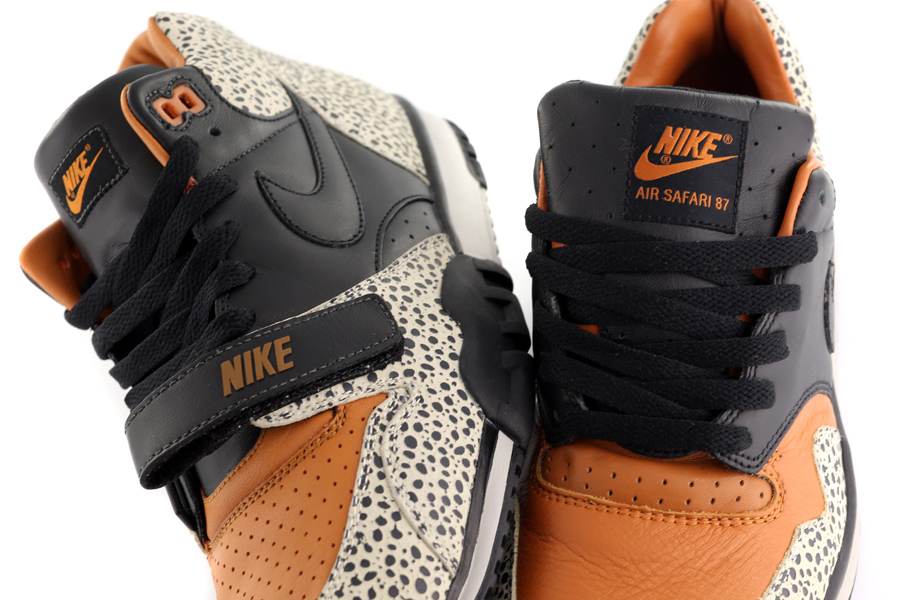
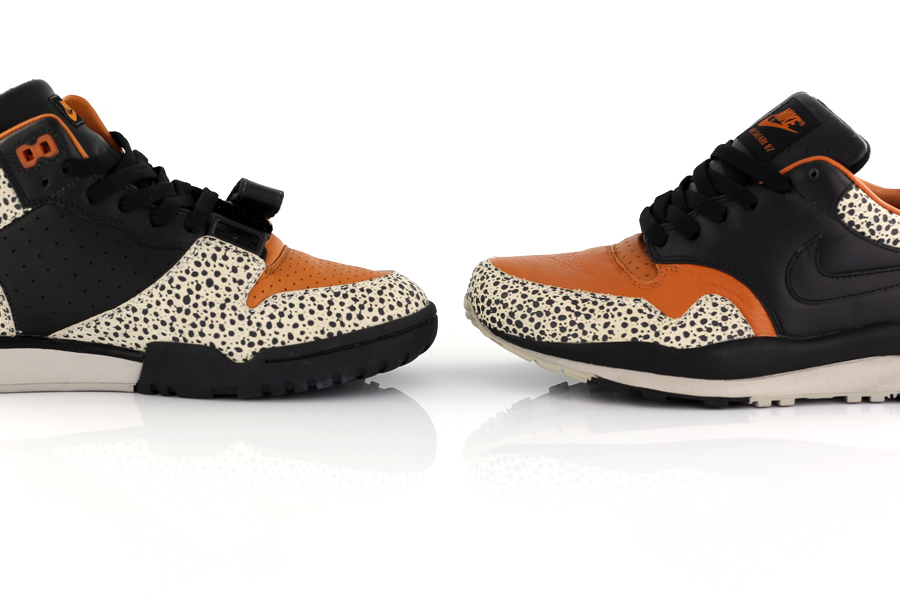
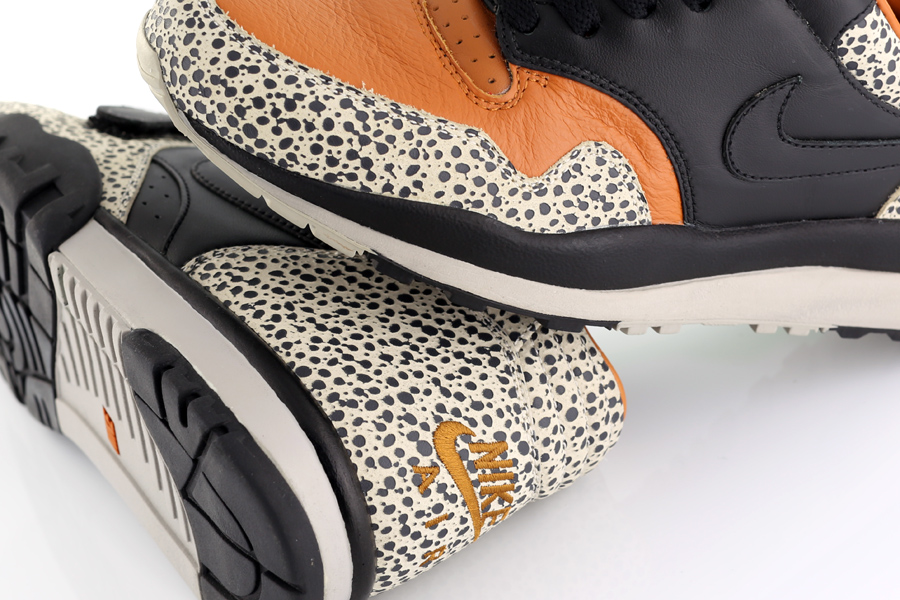
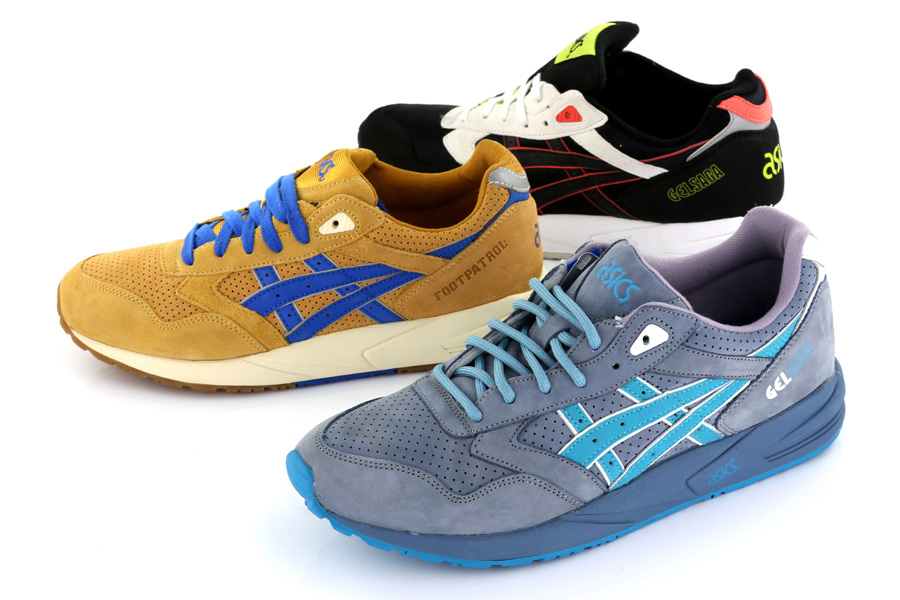
22 | ASICS GEL SAGA II
“Asics Gel Saga” is both a proper name for a shoe and an accurate way of referring to the rise of the performance standout’s recent emergence in the eyes of sneaker connoisseurs. New York’s Ronnie Fieg has contributed quite a bit to both. In fact, one could convincingly argue that Fieg and some other recent collaborators’ work with the Onitsuka Tiger brand has paved the way for eager consumer demand for a wider range of classic models that now includes the early 90’s Asics Gel Saga II. While the Gel Lyte III has long been the darling of the Asics Gel classic lineup, the Saga II has been quietly building some nice momentum. 2011 saw the return of the quintessential black/purple OG colorway, followed by a big end-of-year splash made by Kith’s ‘Mazarine Blue’ edition and Patta’s Amsterdam-inspired collab, giving us a nice prelude to this year’s proper comeback campaign.
It started in January when Asics resurrected a couple more original colorways including the expressive ‘Pirate Black’ and a lightened up version of the white/royal/orange classic. It was a fitting start with plenty of other friends set to join in the fray, starting in spring when
the wine lovers at Barcelona’s 24 Kilates came through with a Feria de Abril theme and limited numbers of a special colorway inspired by the Tio Pepe wine bottle. PYS’ Bait got in on the Olympic theme with the ‘Black Ring’ version in August and Foot Patrol added to the 2012 offerings with a golden gumsole drop in September.
Kith’s release of the majestic ‘Neptune’ installment proved to be the most sought after of them all, first in an aaand-it’s-gone July Kithstrike and then a proper release in August. The premium nubuck construction in steely tones with just a hint of lavender had a similar vibe to Fieg’s ‘Steel Blue’ for New Balance with a little bit of the famed “Cove” GL3 mixed in for good measure. The Gel Saga II’s tale is still being written with new colorways on tap for 2013, it appears to have solidified a spot in the ongoing release rotation, both inline and through more upcoming collaborative efforts. Whether they’ll ever catch up to the mainstay Gel Lyte III or other classic staples like the Gel Lyte Speed and GT-II remains to be seen, but the warm reception thus far suggests good things to come for fans of the resurgent Gel Saga II model.
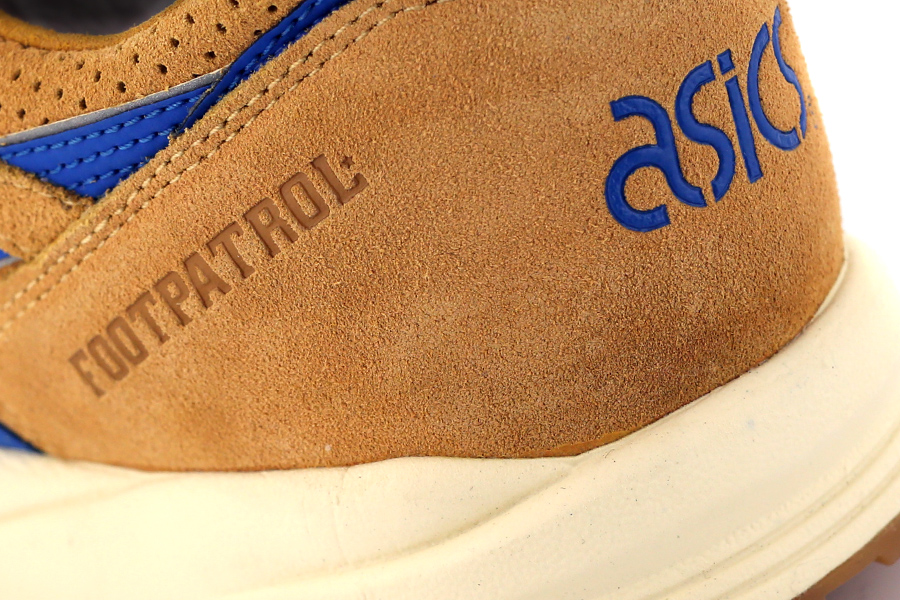
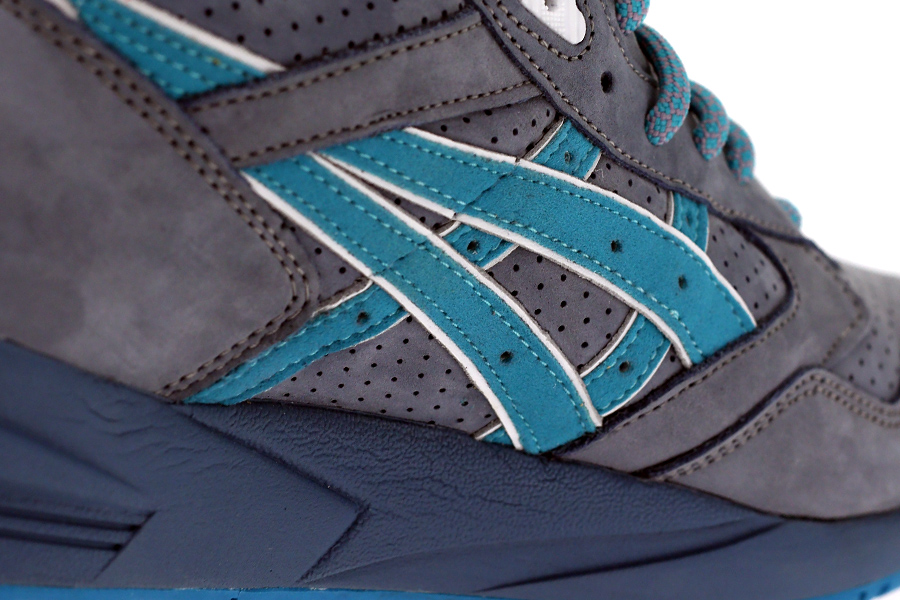
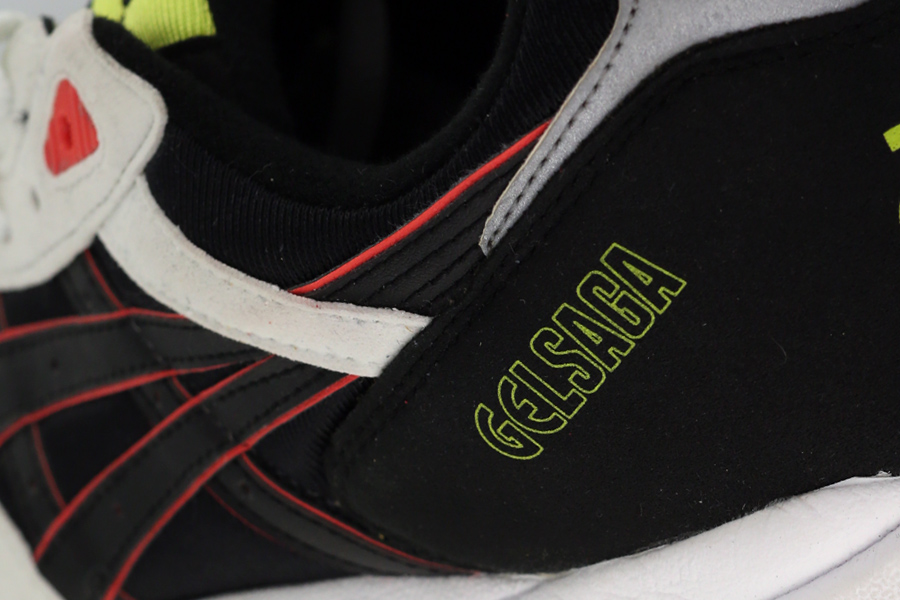
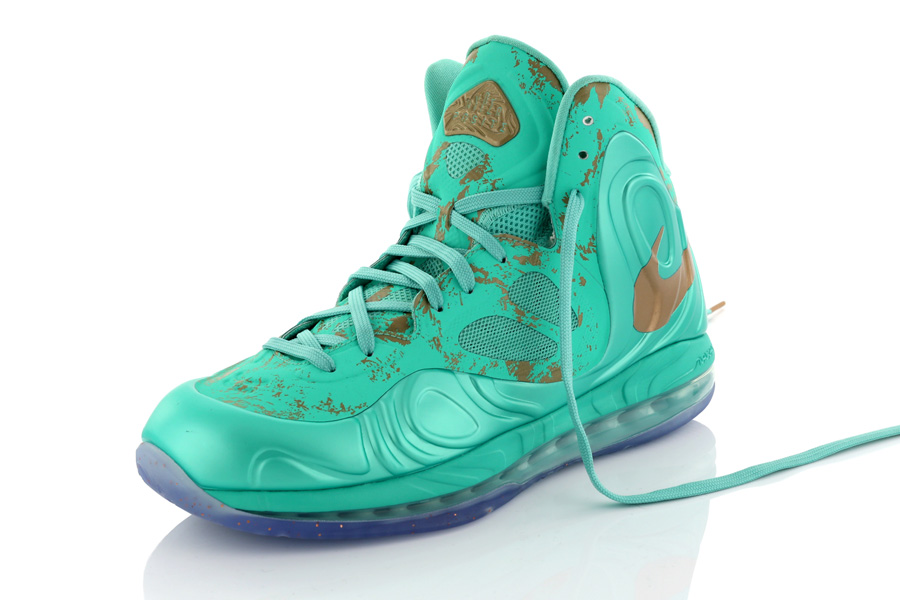
21 | NIKE AIR MAX HYPERPOSITE
The immense popularity of the Air Foamposite One/Pro has presented an opportunity for Nike to experiment with some “sequels”, but since the original debut in 1997, there hasn’t been anything close to a contender. There have been a few designs over the years that incorporated Foam with the familiar alien-ish grooves and curves, and while there has been some level of excitement around those efforts, they haven’t caught fire quite like the inextinguishable blaze set by the Air Foamposite. The Foamposite might be a shoe that simply can’t be followed up, but it certainly can and will be the source of inspiration for future designs in the Sportswear/Basketball category – and it wasn’t until 2012 that Nike got us excited about the future of Foamposite.
The Nike Hyperposite, in a way, re-introduced Foamposite as it was originally intended – a top-flight performance basketball shoe that provided unique fit and a distinct aesthetic. Foams are pretty much entirely a street/casual sneaker nowadays, so Nike took on the difficult (and long-awaited) task of reinventing Foamposite as a straight hoop sneaker by calling on the assistance of some impressive architectural and performance upgrades. By adding the cushioning of the visually stunning full-length Max Air unit and providing some
breathing room and weight reduction with carefully placed Hyperfuse construction, the intriguing Hyperposite was a completely viable on-court banger while maintaining all the attractive appeal of a street shoe – the latter being accomplished by a slew of enticing colorways that were unveiled over the course of this year.
The Hyperposite debuted at the Olympic warmup World Basketball Festival in a “South Beach” style combination of Dynamic Blue and Fireberry, and later, during the Nike Battle of the Boroughs tournament, we were given a look at two NYC-inspired compositions in the stunning “Statue of Liberty” tribute and the Orange/Royal Blue “NYC” edition worn by the participating teams. Once the NBA season began, the Hyperposite was outfitted in Player Exclusive makeups for a select group of Nike’s premier athletes, and throughout the Holiday season, consumers were presented with a wide array of enticing releases like the ‘Tiger Camo’, the aforementioned ‘Statue of Liberty’, and a special Amare Stoudemire PE. There’s no doubt that Nike’s mission of creating a new Foamposite-based performance shoe was a resounding success with the Hyperposite, but what may be more exciting is that this fruitful undertaking can only open doors to a future with more contemporary Posite-style releases.
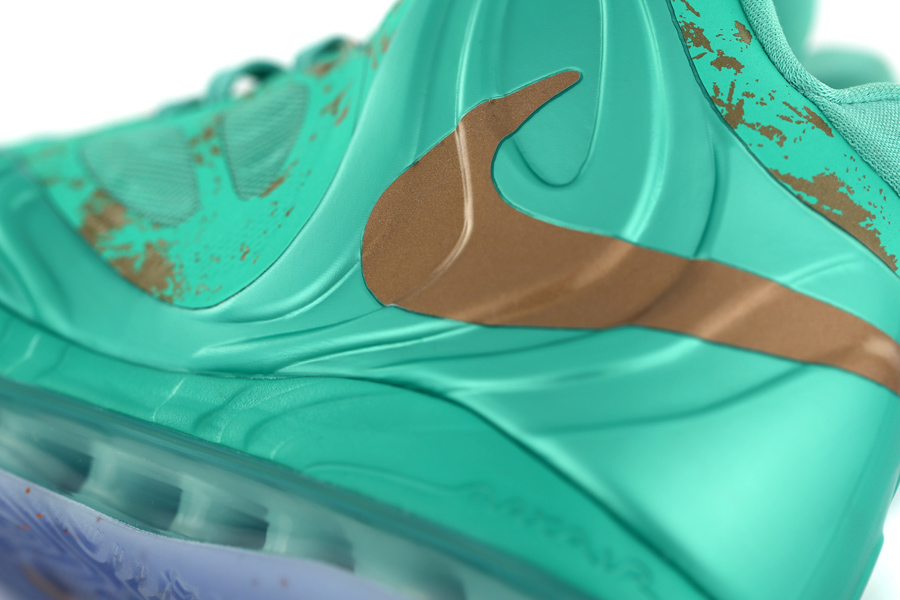

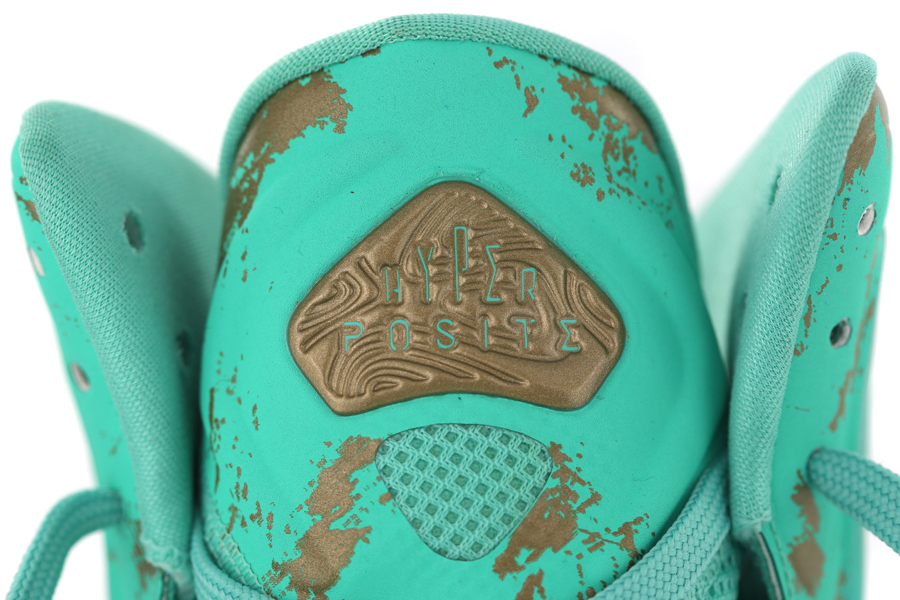
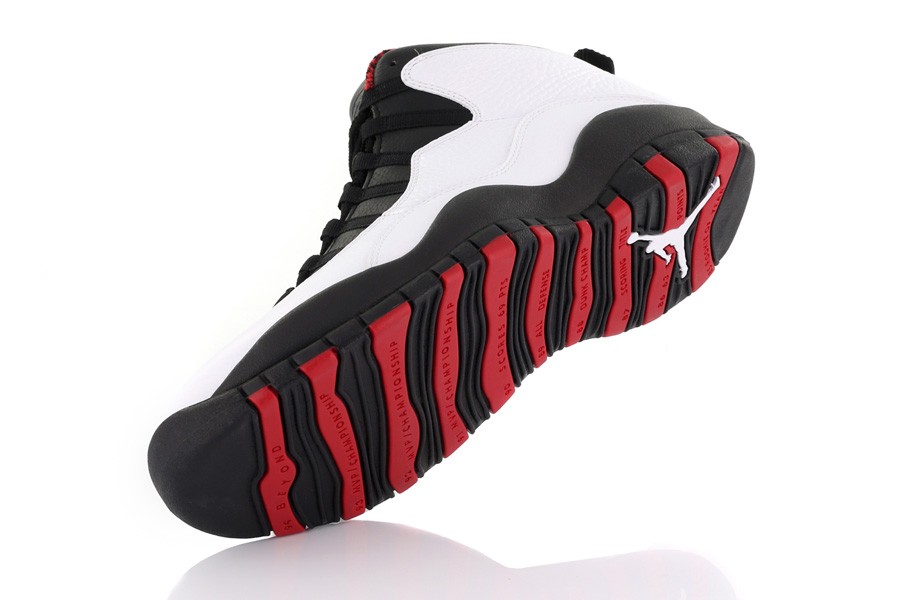
20 | AIR JORDAN X “CHICAGO”
For every storybook moment in Michael Jordan’s illustrious career, a breathtaking subplot exists with a classic Air Jordan model at center. By now, most of these amazing stories have been successfully retold in the form of the retro sneaker release with some of these iconic Jays getting a “re-run“ of sorts. Through 2011, every original Chicago Bulls-era Air Jordan that Michael ever laced up in a game had returned to store shelves – with the glaring exception of the Air Jordan X. Jordan Brand hasn’t been shy about re-issuing the first line of Bulls-colored Air Jordans, but the “Chicago” X held onto the rare distinction of being the last of a diminishing breed of un-touched originals. This past January, that title no longer applied once the Chicago X hit stores in what amounted to be one of the most long-awaited retro releases in Air Jordan history.
So what exactly is the story behind this legendary shoe? Well, consider the fact that Tinker Hatfield designed the Air Jordan X with Michael’s post-career era in mind. With the possibility of Michael never playing the game ever again, an emphasis was placed on honoring Michael’s achievements and legacy – a career retrospective in sneaker form, listed all across the outsole of the shoe. Despite enjoying his time away from the NBA as a minor-league baseball player, the desire for basketball competition was an internal fire
that Michael would never be able to extinguish and in March of 1995, he made the shocking announcement of his intent to return to the NBA. One day later, he was inserted into the starting line-up against the Indiana Pacers, wearing the Air Jordan X ‘Chicago’ on his feet – a moment soon immortalized by Sports Illustrated with the legendary ‘I‘m Back‘ magazine cover.
While the return of this original Air Jordan colorway was long overdue and widely celebrated, this January release wasn’t a true bring-back of an original, as a few notable details were changed with the 2012 issue. The inner lining was no longer a solid red and instead came with the checkerboard print, the heel Jumpman logo was now red instead of black, and the tongue now featured an Air Jordan debossed logo. Despite those discrepancies, the heavy anticipation for the release didn’t let up a bit, and additional Air Jordan X releases that followed in the ‘Old Royal’ and ‘Stealth’ picked up where the ‘Chicago’ left off, as the under-appreciated model got some rare retro love throughout the first half of the year. While the story of the Air Jordan X is one that isn’t often told, the decision to finally revisit this milestone event in Michael’s career was an undisputed highlight in Jordan Brand’s massive line-up of 2012 Retro releases.
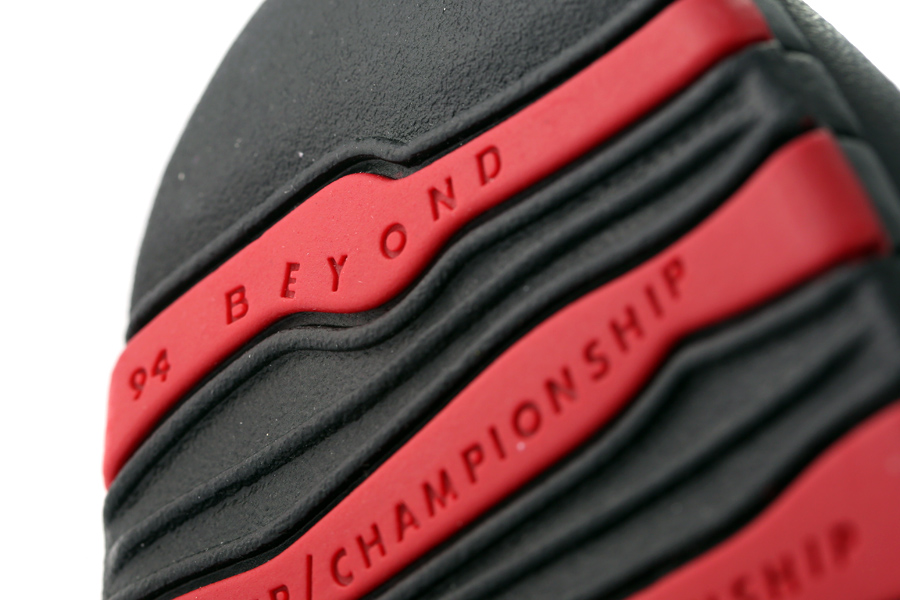
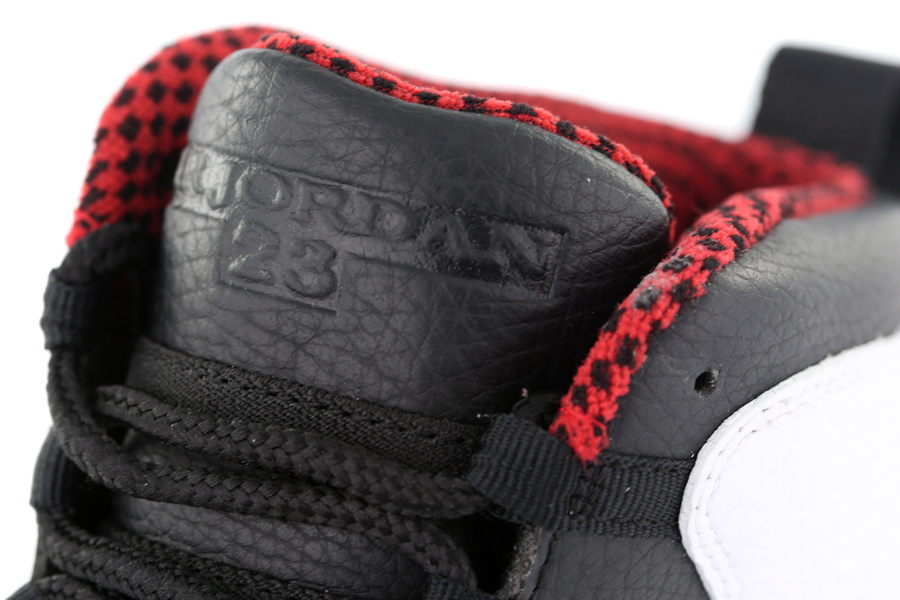
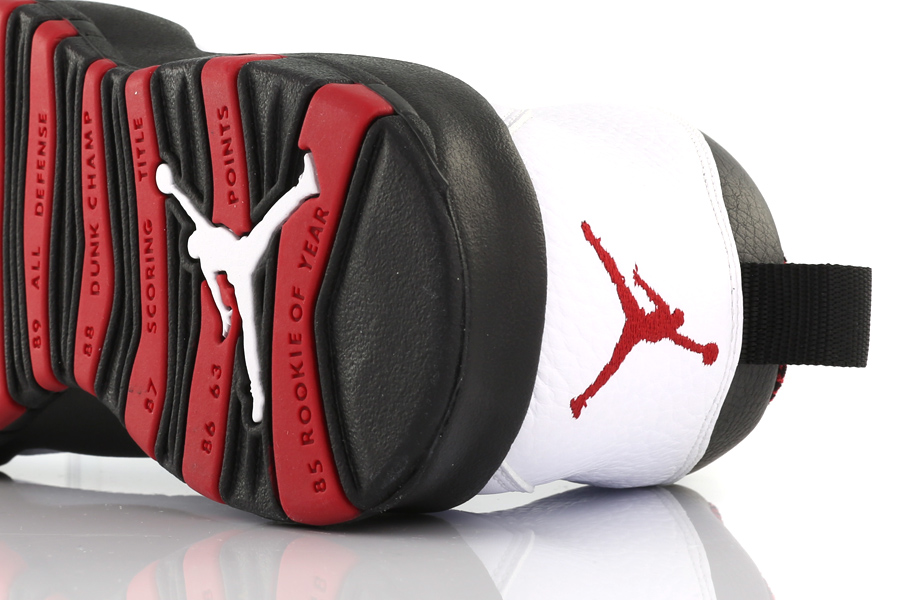
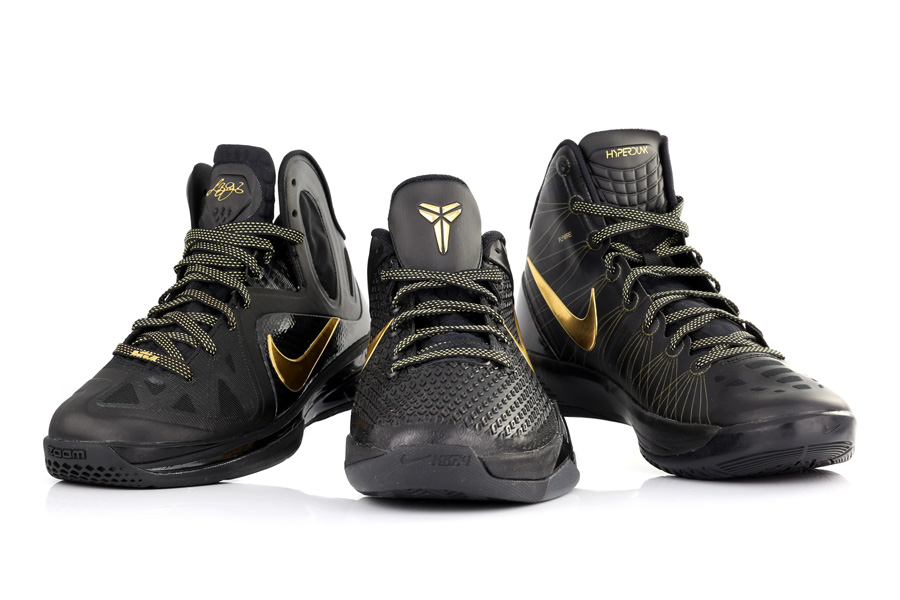
19 | NIKE BASKETBALL ELITE SERIES
There’s no doubt that Nike has the kind of clout to crank out basketball sneakers fit for the most demanding of performance conditions. At the end of the day though, these sneakers have to be transferable into the retail world, and costs can become a limiting factor on the type of innovation and technology that is possible when it comes to sports footwear. The new Nike Basketball Elite Series basically threw all those price restrictions out the window, letting the mad scientist design minds of Leo Chang and Jason Petrie tackle the task of creating the ultimate footwear performance machines unrestricted of the necessity to balance pricepoints. The results saw the Nike LeBron 9, Zoom Kobe VII, and Hyperdunk 2011 all reworked, revamped, and upgraded with added accoutrements meant to address the heightened demands of post-season play.
The Nike LeBron 9 Elite had perhaps the most drastic jump in terms of its reworking, both the outer shell and the guts of the sneaker getting switched up dramatically. The Zoom bag got thicker in an attempt to recreate the feel of the orthodic inserts that LeBron normally uses to add more stiffness into his sneakers. The upper was transformed into “more like a low-top shoe with these extra harnesses” in the words of Jason Petrie, the base strengthened by a lateral carbon support and the thick collar of the regular Nike LeBron 9 trimmed a bit in the name of ankle movement. Even the sockliner got the remix treatment, with a sticky print and an added level of density to help grab at the foot and keep it in place. LeBron’s entry into the Elite series was also the lone one to expand upon the straight black and white colorways, offering the likes of the “Taxi”, “Miami Vice”, and the celebratory “Championship Pack” that came at the culmination of his epic season.
The Nike Zoom Kobe VII Elite honed in on the low version of the modular Kobe System set up, a response to Kobe’s own preferences. For this particular model, the Nike design team knew pretty much right away what sort of higher end technology they wanted to cram in to suit the needs of the Black Mamba. That would be the full length Zoom unit, one of the pricier bags available in Nike’s repertoire of cushioning systems, and one that doesn’t find its way into too many standard footwear releases for that very reason. Beyond that, Kobe’s entry grabbed at the scaly look of his previous sneaker, upgrading the pattern to serve a slightly more functional role with the scales switching in density on differing areas of the design for added stability benefits.
The Nike Zoom Hyperdunk 2011 Elite, represented in the league by the likes of Blake Griffin and numerous others, saw the layers of the original model halved, the upper shaving off a considerable amount of bulk in that area to ramp up the overall flexibility of the silhouette. Along with that subtraction came plenty of additions. Kevlar threads were introduced to help lockdown the fit, the heel counter came through with a little more bounce thanks to a new carbon fiber plate, and a traction print in the Achilles area was fashioned to help keep in the heel in control.
The Nike Elite Basketball Series was a rare glimpse at exactly how far the designers behind Nike’s foremost basketball footwear offerings can push the performance aspect when given the chance. It was a reminder in a market dominated by retros that there are indeed folks out there focused on, obsessing over even, the notion of making the best possible sneaker for the world’s best players. Let’s just hope that they decide to make the teched out post-season tier of Nike Elite Basketball a yearly tradition and we can only imagine what further advancements could be in store in the future.
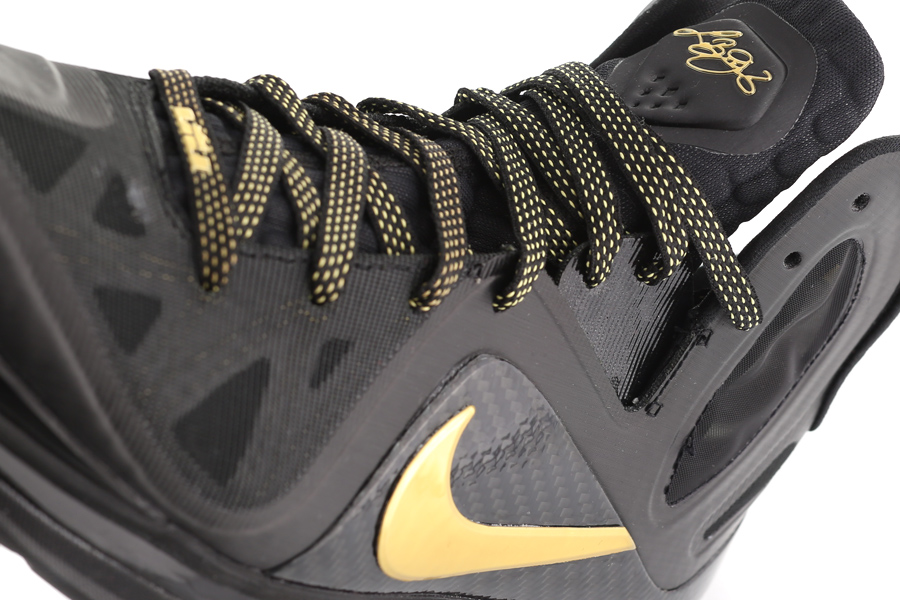
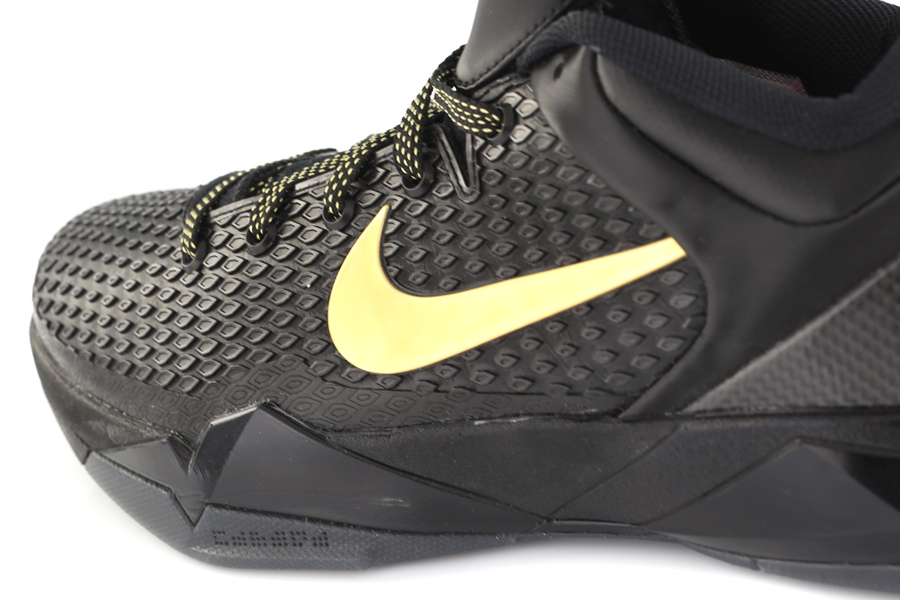
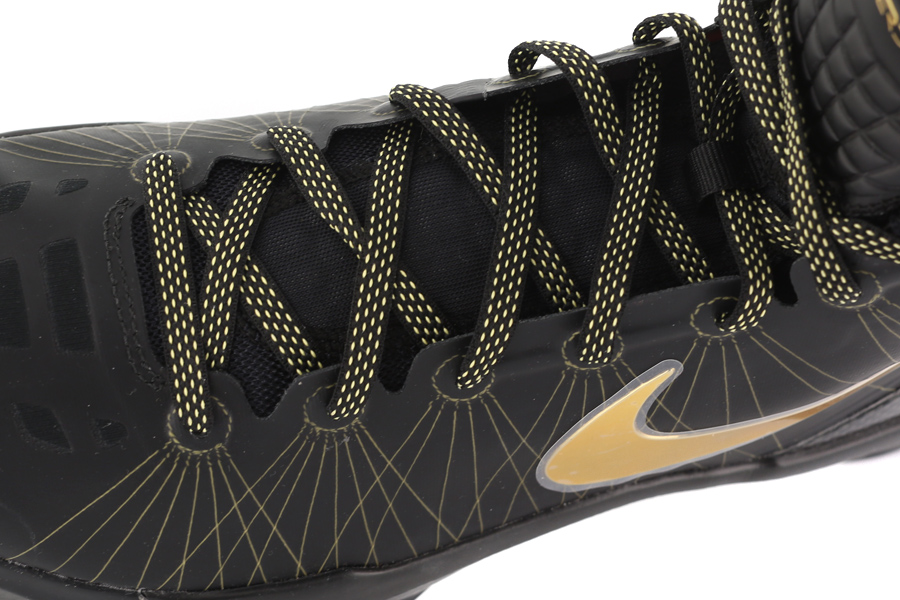
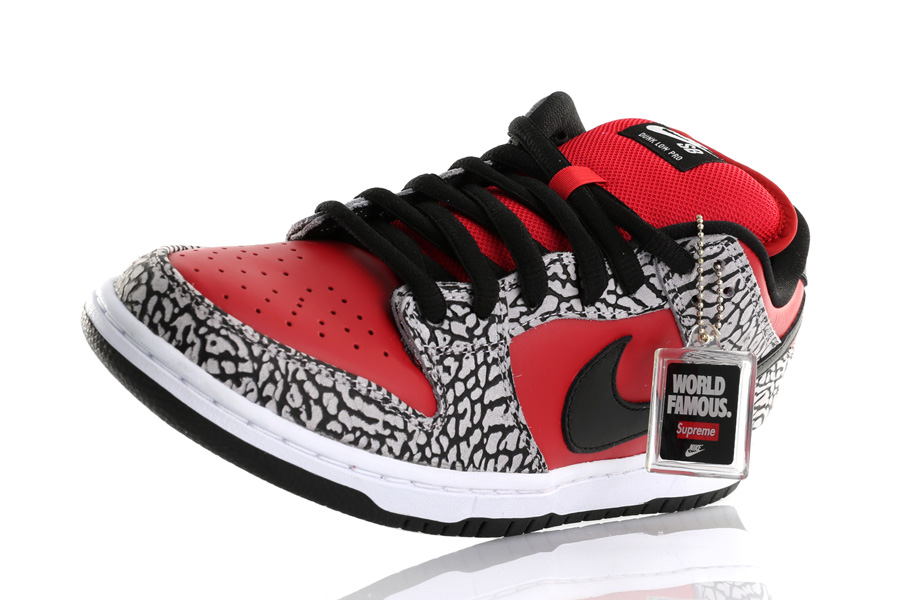
18 | SUPREME x NIKE SB DUNK LOW
The retro’ing of grail-status Nike SB releases is something that’s been speculated over endlessly via online avenues. There exists a distinct set of folks out there hoping that the legendary makeups of old could somehow be brought back to life, ideally reprising some of the initial excitement from the height of SB Dunk-mania. 2012 finally showed us that it was possible – albeit not in the form of a straight up retro, but rather an evolution of the legendary Supreme x Nike SB Dunk Low models.
Where the original Supreme set of Dunks drew a clear line back to the Air Jordan III for inspiration, this pair, ten years removed from the aforementioned duo, seemed to point much more towards its Supreme heritage as a reference. A fire red base was selected in tune with the ubiquitous box logo, while the all-important elephant print sections remained still very much intact. The insoles were also stamped with Supreme’s presence in the vibrant red look, and the pair came equipped with a hang-tag citing their birthplace at the world famous skate shop.
But did it capture the magic of the originals? It depends on who you ask. The thing is that both Supreme and the Nike SB Dunk are very
different animals in 2012 than they were in 2002. Nike SB Dunks, and of course cool-guy sneakers at large, blew up on a major level in the interim years, but overexposure has now left the Dunk model on a downslide of popularity. Supreme also broadened up their fanbase significantly over that stretch, a trickledown effect felt most recently and with great impact from hip-hop collective Odd Future’s obsession with the brand. The heightened awareness and visibility added a hearty helping of fuel to the fire in the past couple of years in terms of enticing a younger generation of fans and leaving many of the longtime faithful less than pleased to share “their thing”.
So for some newer devotees of the church of Supreme x Nike SB, the release was every bit a classic, a moment to be looked back upon when we hit 2022, but for many who’ve been on the bandwagon for a while, the release fell just a little bit short of the mystique from the first go-round. No matter where you lie on that spectrum, there was never a doubt that this Supreme x Nike SB Dunk release would be an event in itself, building up a deafening buzz from the time that those first magazine scans popped up all the way to the around-the-corner lines that formed at the scattered Supreme spots around the world upon their release this summer.
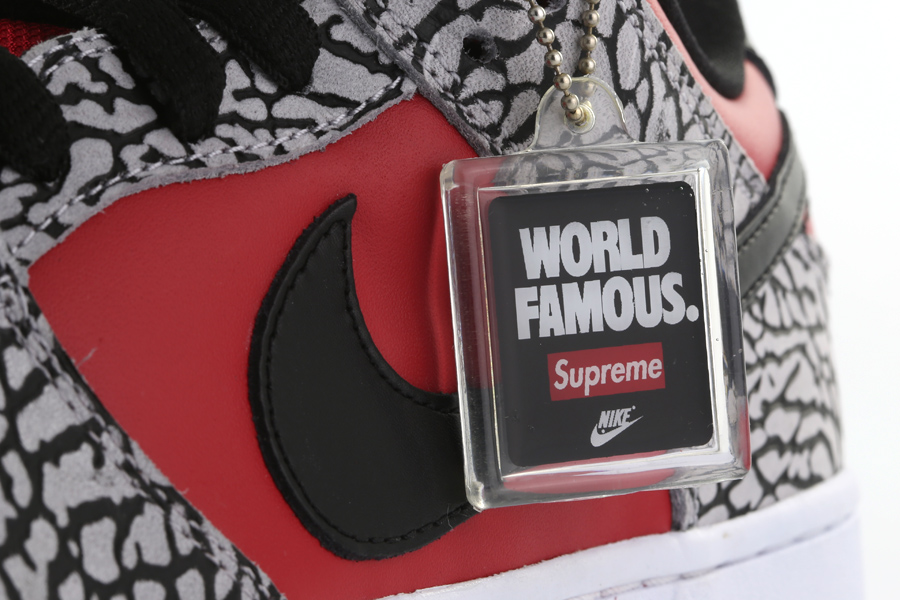
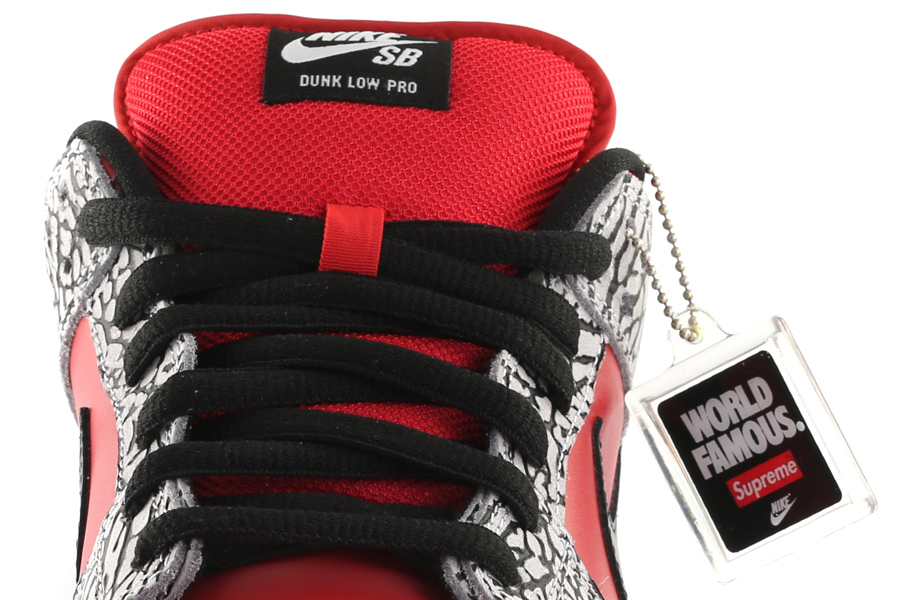
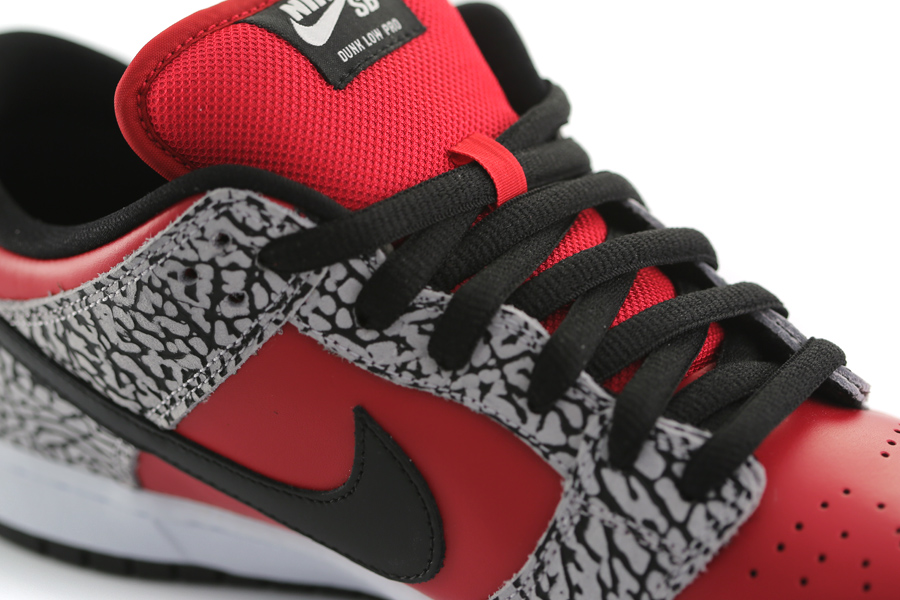
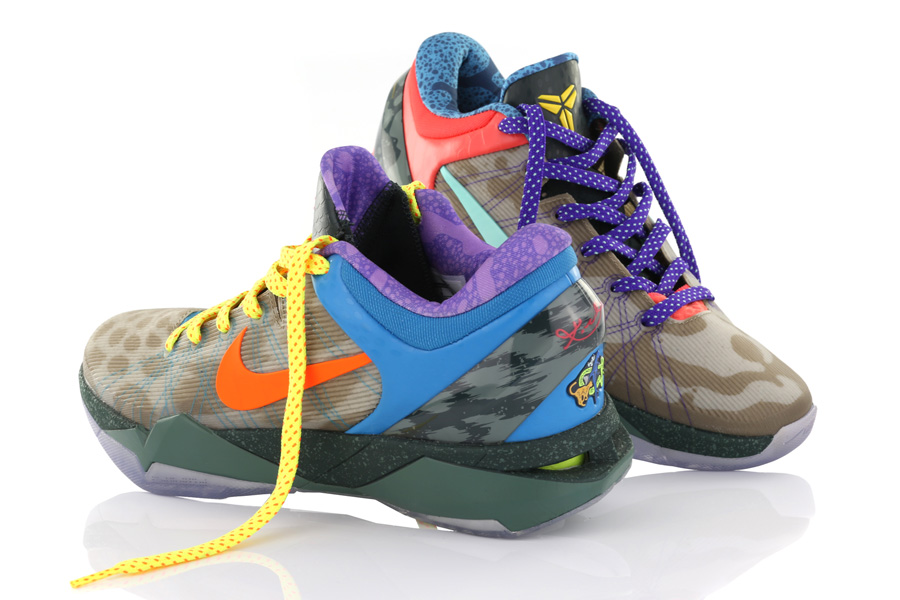
17 | NIKE ZOOM KOBE VII
It’s hard to argue that Kobe Bryant isn’t the best basketball player we’ve seen since Michael Jordan. 30,000-plus regular season points, five NBA Championships, two Olympic Gold Medals and the fifth longest-running signature sneaker series in history puts the Black Mamba in a class only His Airness could top. His seventh Nike Basketball signature built upon the innovation of recent years, sticking with a low-cut design with plenty of animal details, but changing the game entirely with a modular fit system that allow you to ‘Attack Fast’ or ‘Attack Strong’. The Nike Zoom Kobe VII System offered a fresh approach to cushioning and ankle support personalization and its hilarious ‘Kobe System’ motivational seminar ad campaign had a cornucopia of celebrities singing his praises a la Bill Brasky or Chuck Norris. This talented mélange of athletes, entertainers, and entrepreneurs put a playful spin on the serious business of building a shoe worthy of the accomplished superstar, a mood echoed by the year’s most expressive colorway, perhaps across the entire basketball market.
After getting Kobe System co-signs from the likes of Kanye West and Richard Branson among others, the shoe saw one release after another, utilizing all sorts of creative color schemes and inspirations to bring the shoe to life. July’s “What the Kobe” VII wound up serving as a highlight reel of sorts, combining many of the key themes from one of the year’s most prolific silhouettes into one design in a style borrowed from Nike SB’s legendary Frankenstein-style Dunk Low.
Just like that 2007 Dunk standout, the ‘What the Kobe’ applied a different call-out to each available element, referencing Predator Pack animal spirits including the wolf, cheetah, shark, poison dart frog, and of course, snake. So while the WTK couldn’t fit in every single memorable style (perhaps most notably, the superb ‘Galaxy’ All-Star edition), it arguably one-upped the ‘What the Dunk’ in terms of casual appeal by opting for neutral base tones and a coordinated set of contrasting hues instead of copying verbatim from the original releases.
This mix and match style could now become an institution in the coming years, given that the “What the…” concept was also applied to impressive, yet unreleased, “What the LeBron” 9 and “What the KD” V editions. We’ll always remember the Kobe VII for introducing the concept to the basketball market and for proving that with the same kind of color flexibility employed in the reference-heavy makeup, you can add the kind of cohesion and compatibility that makes a meta-theme as aesthetically pleasing and wearable as it is collectable. On the whole, the Kobe VII might not have carried the buzz of some previous Black Mamba models, but there were more than enough bright spots to keep the shoe firmly planted in our memories as another well-worthy addition to the Kobe line and the storied Nike Basketball legacy.
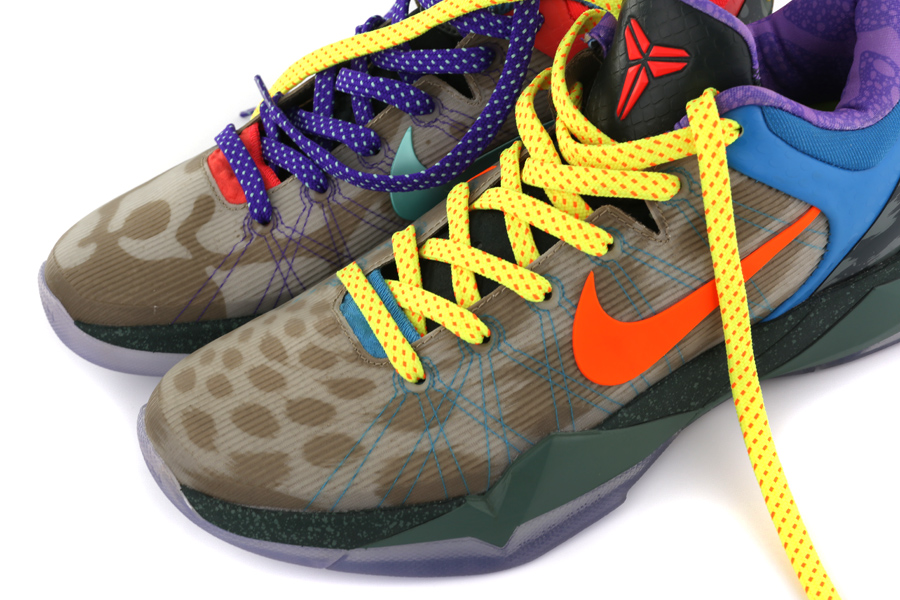
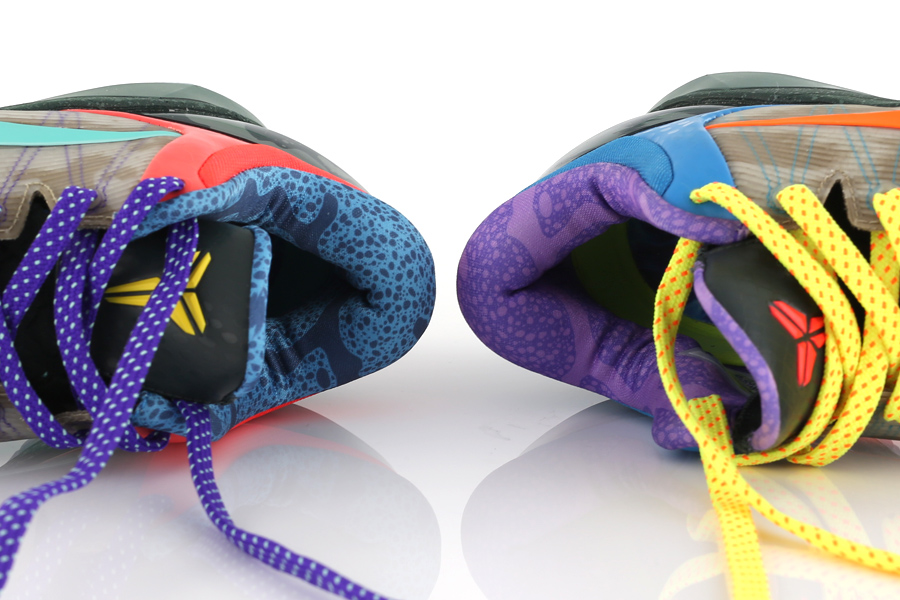
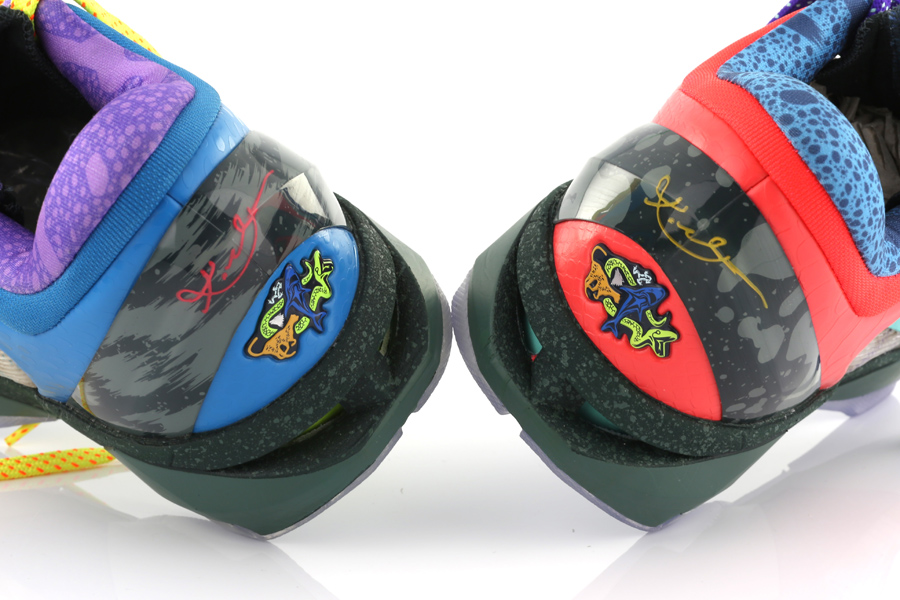

16 | AIR JORDAN VI “OLYMPIC”
Flyknit was the most visible thing on your flat screen, but did any sneaker capture the essence of this summer’s Olympic spirit better than the Air Jordan VI? We enjoyed a nice variety of basketball bringbacks in the middle of the year, including Charles Barkley’s Air Force 180, Scottie Pippen’s Air Much Uptempo, and Vince Carter’s Shox BB4. Each of these styles has a memorable backstory of Olympic glory, but none of them seemed to compare to the July retro release that took us back not to 1992 or 1984, but rather, 2000 – a year when Michael Jordan was nowhere near the Olympic hardwood. It was during the XXVIIth Olympiad that year in Sydney, Australia that Ray Allen debuted that white and navy combo with red branding we’ve come to know and love as the ‘Olympic’ Air Jordan VI.
This model in which Mike won his first NBA Championship had been retired to make way for the VII by the time MJ and the original Dream Team took to the courts in Barcelona, which gave Jordan Brand the impetus for its latest two-pack in the Golden Moments Package that appeared earlier on this list. The Olympic VIs were more visible this summer than the GMPs thanks to wider availability and a more affordable price point, a fact that affirmed this design’s elite place among the non-OG Air Jordan canon. Jordan Brand’s ‘Road to the Gold’ pack provided Air Jordan 1s and the Super.Fly as preludes and the ‘Olympic’ Jordan VII worn by Mike in ’92 returned after a short hiatus, but after a dozen years of waiting, the first retro of the Olympic VI Retros stood apart as the pick of the litter from this year’s Summer Games themed JB releases.
The shoe was met with open arms by consumers when it released in early July, despite the fact that some purists were vexed by a subtle change in the midsole color-blocking of this year’s version. Over the years, most Air Jordan Retros have remained pretty true to the original blueprints (with the exception of Nike Air branding), but any time there are even the slightest of deviations, they are always met with controversy and public outcry. It still rarely prevents most detractors from picking up a pair anyway and maybe it’s even for the best. Those with such a keen eye for detail will instantly be able to use this cue to determine the vintage of a given pair, so try to look at it as an effective shortcut to easily determine one generation of the shoe from the next.
The numbers of never-retroed original Air Jordan colorways diminishes with each passing year and suggests that we might soon get another round of Wizards-era models in addition to the new colorups we already expect. But will the OG colorway drought lead to the return of more Retro+ successes like this year’s “Olympic” VI and “Thunder” IV reissues and how do we feel about that? In the case of the VI, it seemed like the time was right and the re-release proudly served as a reminder of the Jumpman’s enduring greatness with a new generation of superstar athletes carrying its banner even after Michael’s retirement from the game.
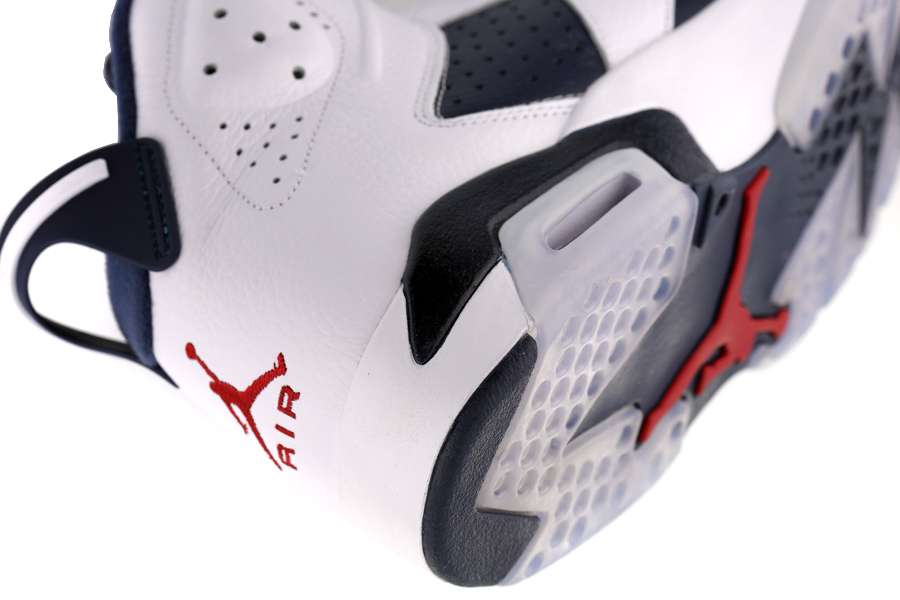
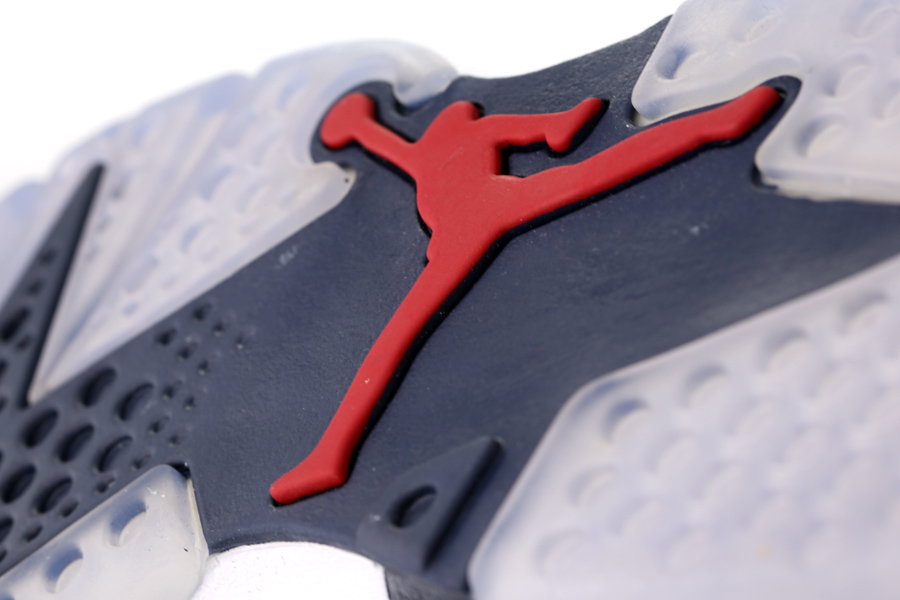
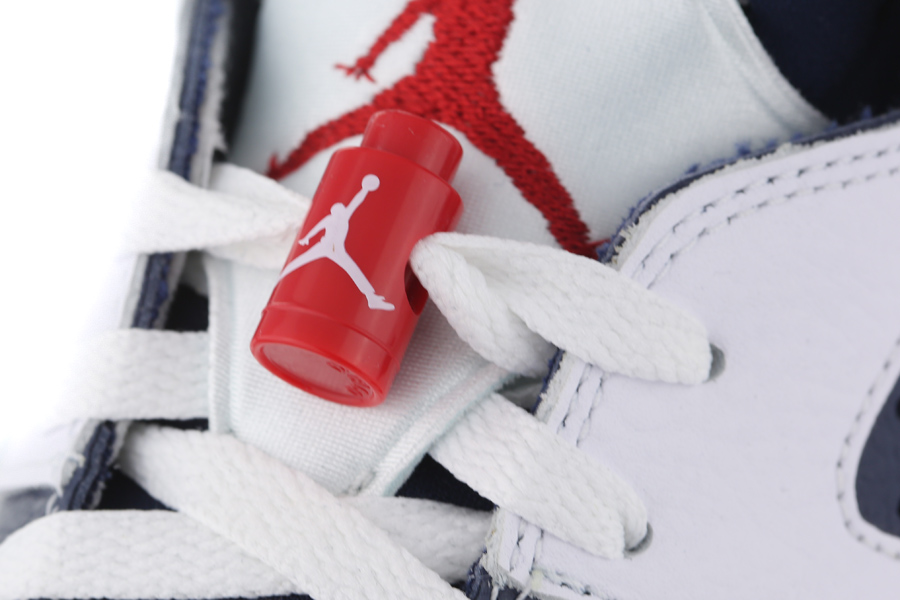
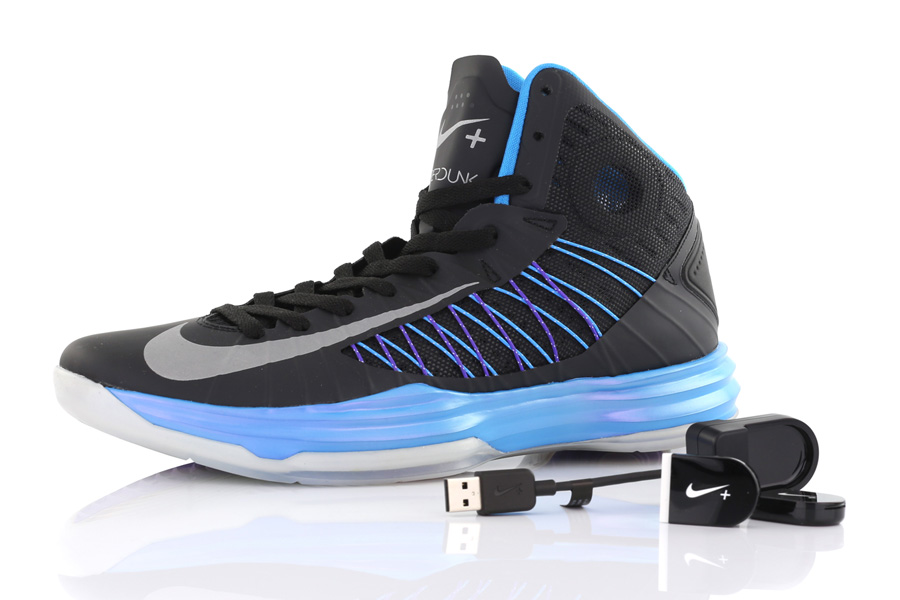
15 | NIKE HYPERDUNK+ SPORT PACK
Forty years ago, Nike stepped forward with its first foray into basketball footwear, wowing the crowds with its all-leather, enlarged-Swoosh Blazer on the feet of NBA star George “Iceman” Gervin. Since then, the Beaverton-based brand has introduced some incredibly innovative designs tailored to the sport of hoops, but never has a sneaker spoken to the athlete in a more direct and comprehensive way than the Hyperdunk+ Sport Pack. This latest addition to the acclaimed lineage of Hyperdunk models took performance sneakers into the future by beefing up the design with the next generation of state of the art Nike+ technology, coming together to form the most advanced basketball experience ever seen on a shoe.
Eric Avar, Tracy Teague, and Leo Chang – three of Nike’s top problem solvers – joined forces in a collaborative effort that maximized Nike’s most advanced innovations to date. This forward thinking design debuted Lunar to Nike Basketball with a stylized full-length LunarLon outsole and also implemented the new Dynamic Flywire construction into a sleek Hyperfuse shell, combining for an outstanding final product that spoke directly to the next generation of ballers with its futuristic appeal. But while the Lunar Hyperdunk design was a marvel in itself, it’s what was under the hood of this machine that separated it from anything Nike had ever done – an undeniable “next level” endeavor that forever raised the bar for performance footwear.
In February, Nike unveiled its latest version of Nike+ technology, revolutionizing basketball and training footwear with the ability to
deliver information that was once considered intangible; the Nike+ Pressure Sensor built into the shoe gathers data via a ‘Track My Game’ mode and wirelessly transmits it to a synced device, providing a complete breakdown of several categories while measuring pertinent data such as Vertical Leap, Quickness, and Nike‘s “Fuel“ currency. In addition, the online Nike+ community allowed for competition with fellow users and even Nike’s pinnacle athletes like LeBron James, which further motivated the drive to step up your game in all aspects of athletic performance and essentially achieve Nike‘s goal of “self-improvement“ for the athlete in all of us.
After the initial global debut in February, the Nike Hyperdunk+ Sport Pack released in late June alongside the Nike LunarTR1 Sport Pack. The $250 MSRP was certainly one of the most ambitious price-points ever seen, but the blend of style and technology was worth every penny for what was clearly an unmatched basketball experience in the retail market. A team-wide debut of the Hyperdunk+ by the Team USA Mens Basketball squad during the 2012 Olympics brought this amazing sneaker to the world stage and created some more energy around the gamechanging new shoe and its amazing benefits. By year’s end, the revolutionary new technology had spread to the LeBron X and other models and the Hyperdunk+ ably established itself as one of the most widely-used sneakers both on the playground and the NBA court, leaving plenty of anticipation for what other wonders may be possible through Nike+ technology as it continues to advance and evolve.
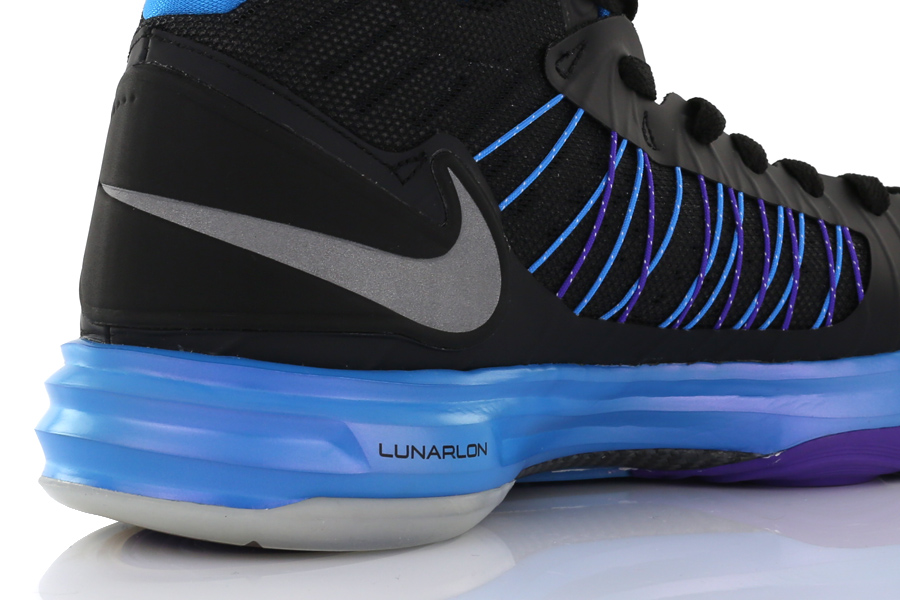
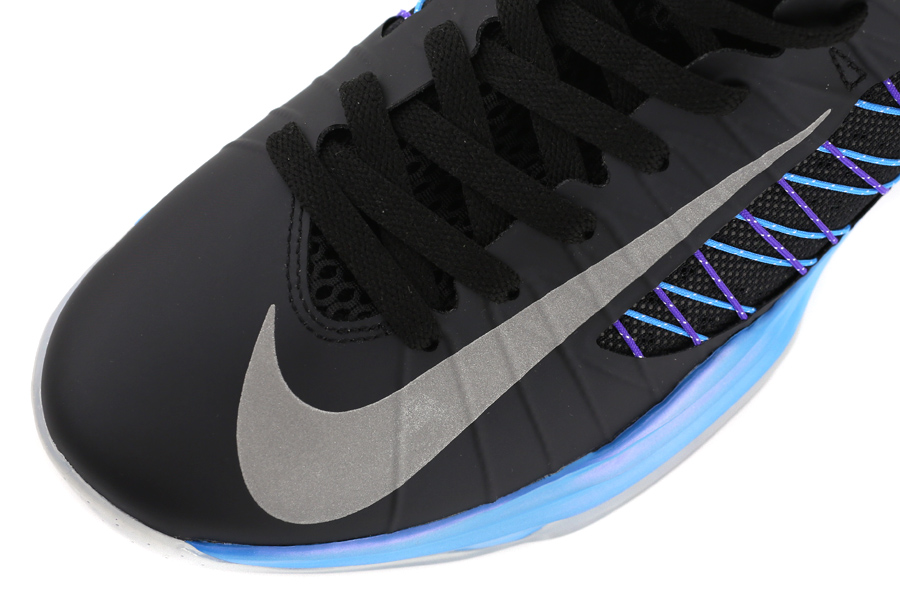

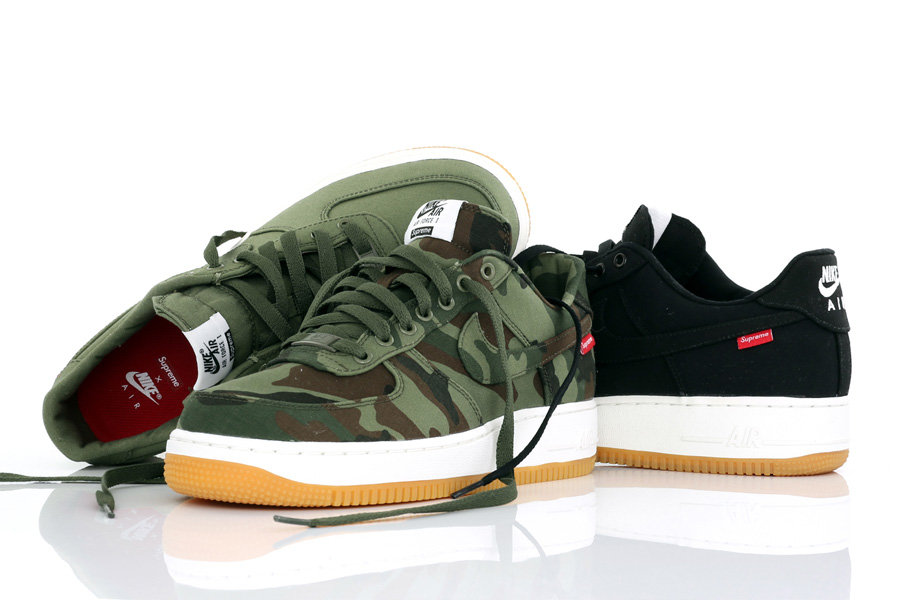
14 | SUPREME x NIKE AIR FORCE 1 LOW
This year was absolutely littered with special Nike Air Force 1 releases thanks to ongoing celebration of the iconic basketball sneaker’s 30th birthday. In a cool instance of “Uptown” meets “Downtown”, constant Swoosh collaborator Supreme was reined in to whip up a trio of Nike Air Force 1 Lows as the year came to its end. The notion of this pack being the first time Supreme has put their special touch on a non-Nike SB release is significant in its own right, effectively serving as a symbolic measure of the brand’s evolution into something that reaches far beyond the skate world. Having already brought back one of their revered looks with the flashy elephant print SB Dunk that clocked in a little lower on this list, Supreme decided to keep things just about as clean as possible with their eagerly anticipated Air Force 1 collection.
Three colorways were offered up in black, olive, and camo, respectively, with each sitting on a crisp white wall midsole and a classic gum outsole. And it wouldn’t be a proper Supreme release without a healthy dosage of box logos, the necessary Futura bold
italic branding arriving on the tongue tags, hanging off the side Swooshes, and stamped on the insole. They didn’t exactly skimp on the materials either, selecting NYCO fabric for the upper of each – a durable, water resistant textile that’s been a benchmark of military garments for some 45 years.
It’s almost a foregone conclusion at this point, but the lineups for this particular Supreme Thursday drop day were indeed massive as folks queued up overnight at Supreme locations across the globe to try to secure a size. After the crowds thinned out and with only the camo initially sold out, some crafty consumers were even able to pull off the double dip with an in-store and online combo to come that much closer to completing the pack. Will we continue to see Supreme veer from the Nike SB path in its future Nike projects and if so, what other treasures may be in store? If and when that does go down, let it be known that the benchmark has been set pretty high thanks to this rock solid material driven Air Force 1 Low collection.
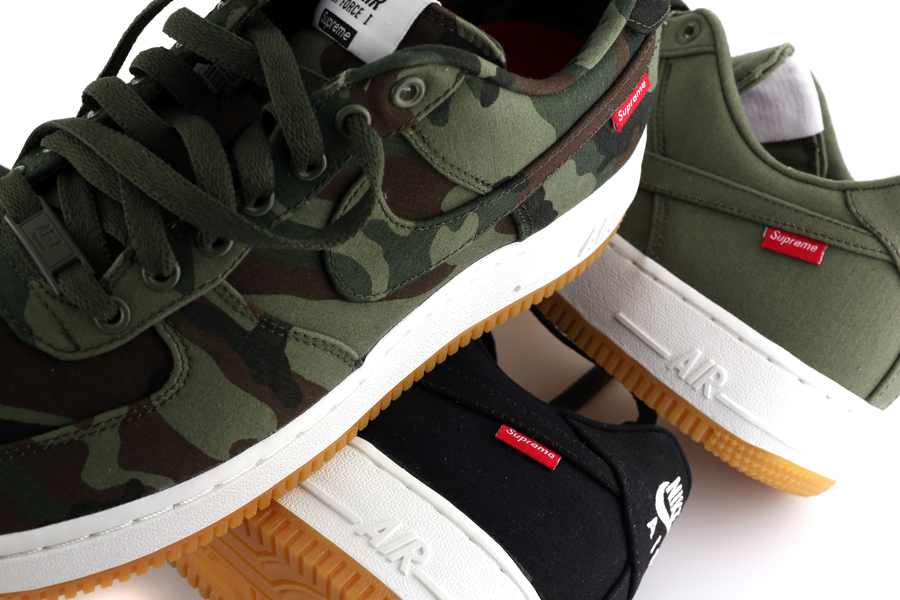
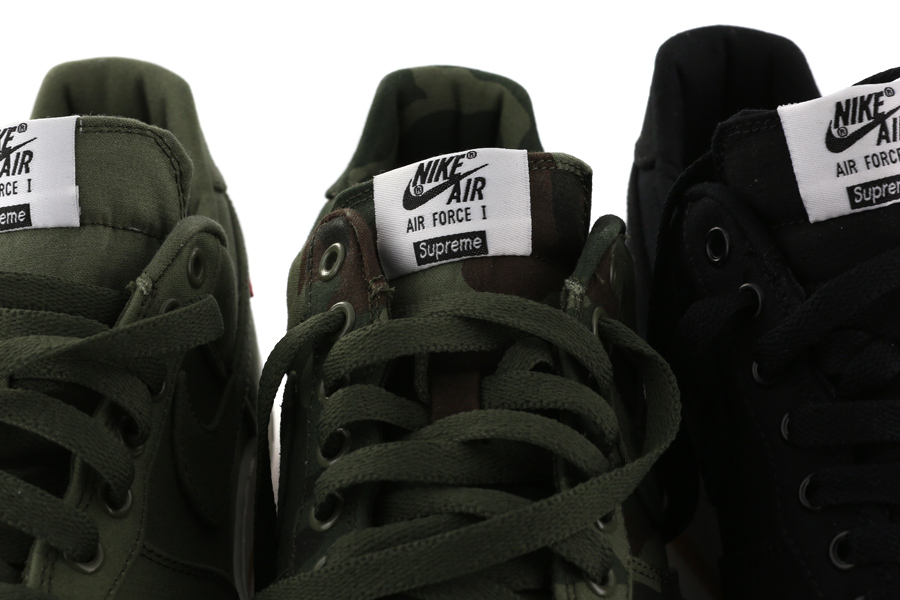

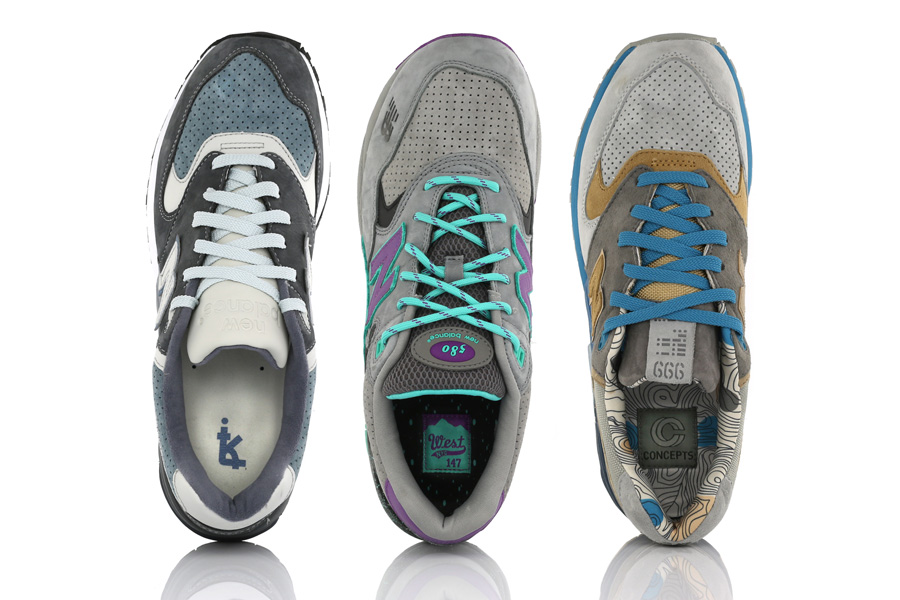
13 | NEW BALANCE COLLABORATIONS
The New Balance classics category is one that has been typically more appreciated beyond North American shores, but in recent years, the brand has managed to reinvigorate consumer interest in the States and has built quite a bit of momentum here in recent years. Building on that growing foundation, 2012 was a marquee year for New Balance in terms of pushing things further and establishing a firm standing within the crowded retro model market. Aside from strong inline releases, a big part of the success has been an ongoing slew of coveted collaborative endeavors. Over the course of this year, a who’s who of big name shops and designers stepped up to put their own unique spins on individual NB silos, but which pairs ended up at the top of the heap?
The Ronnie Fieg x New Balance 999 “Steel Blue” respectfully paid tribute to one of the brand’s most iconic colorways. The success of the design sort of spoke to just how much New Balance’s back catalog has crept into the consciousness of sneakerheads, with the blocking itself an ode to the widely revered “Steel Blue” edition of the mighty, Made in America New Balance 1300. The sneaker wasn’t a direct flip though, stripping out the mesh of its predecessor in favor of an extra suede treatment, the toebox and ankle area both injected with a perforated look that Fieg has been partial to over the years in his various collaborative runner revivals. It’s always a daunting task to try to apply a classic color scheme to a different model in a way that honors the original while still establishing its own individual identity, but thanks to a keen eye for detail and a fine selection of premium materials, the Steel Blue 999 was able to do just that.
The team at Concepts threw their hat in the ring as well, hoping to somehow match the wild success of their “Kennedy” New Balance 999 from 2011 (a sneaker that stood alone as the sole NB representative at #17 on this list last year). The result was the Concepts x New Balance 999 “Seal”, a pair that pulled from NB’s 2010 acquisition of boot brand OTB, the tough as nails Abyss II
model in particular serving up some of the inspiration here. The built-for-anything approach was ported over through a rugged color scheme and a set of top notch materials, such as stain resistant microfiber suede and ballistic mesh. The sneaker oozed detail beyond the material selection, the inside getting a crazy topographical print and the morse code tongue label spelling out their origin in a cryptic manner. While not quite the runaway smash of the Kennedy, Concepts’ Seal 999 still made for another impressive notch in both brands’ belts.
Also earning a standing ovation from the public was the West NYC x New Balance MT580 “Alpine Guide Edition”, a beautiful release that took hold of the MT580’s trail-ready status and injected it with a bit of an early 90s outerwear aesthetic. The silhouette was outfitted with a tonal range of grey suede, speckling on the chunky, Rollbar equipped backend, and some covert 3M treatment on the purple of the side “N” and back tab. Just as significant as the brazen colorway was of course the model utilized. The New Balance MT580 has traditionally been reserved for the likes of Japanese collaborators, with Detroit’s Burn Rubber being the only other US shop to date to have their way with the beloved model. Like most of the other NB collabs from the year, these instantly cleared from shelves and added another certified banger to the 2012 lineup.
This trio of releases, along with other head turners from the likes of Hanon, UNDFTD, nonnative, J.Crew, and others very much achieved what any footwear company hopes to with these types of partnerships. The sneaker consuming public was treated to a healthy amount of thoughtfully inspired limited edition makeups that have since become coveted treasures and conversation pieces for years to come. What’s more, general interest in New Balance’s inline releases seems to have jumped up quite a bit as a result, with a newfound respect for the likes of lower profile models like the New Balance 996, 998, 1600, and others steadily rising and leading to an ever-growing fanbase for the brand.
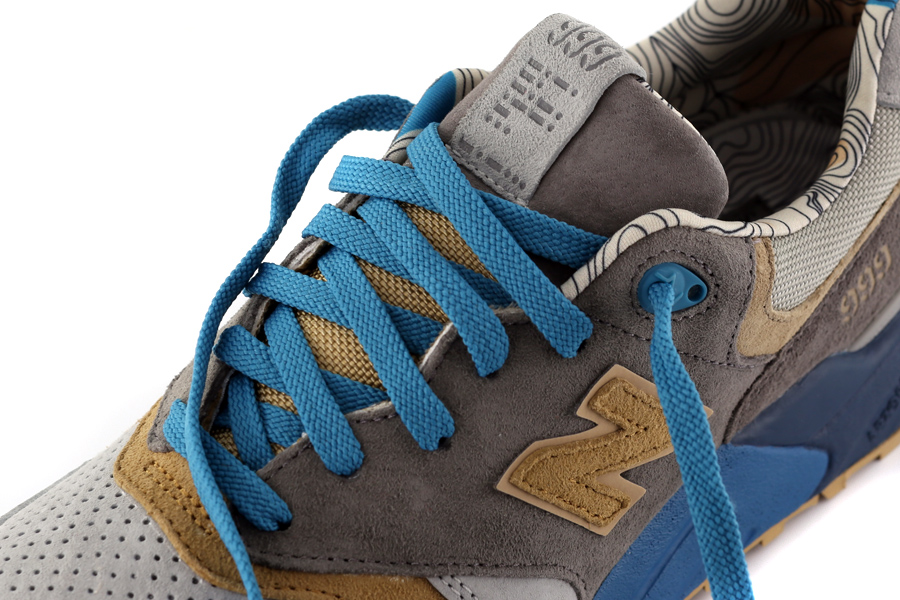
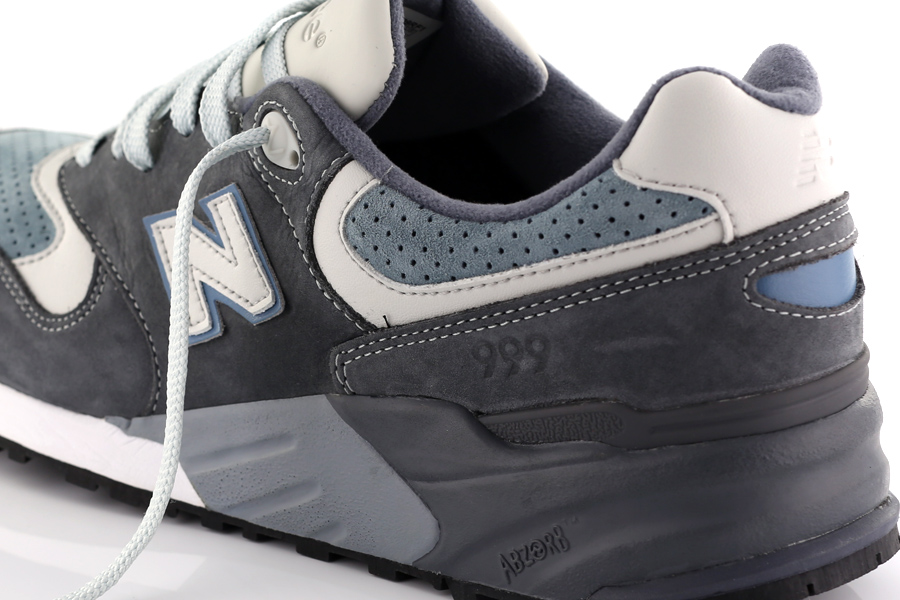
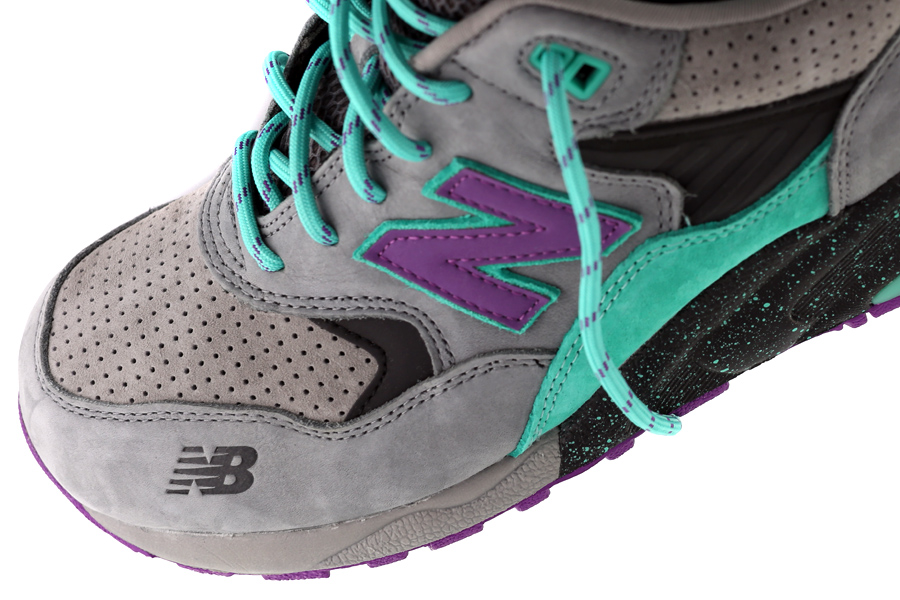
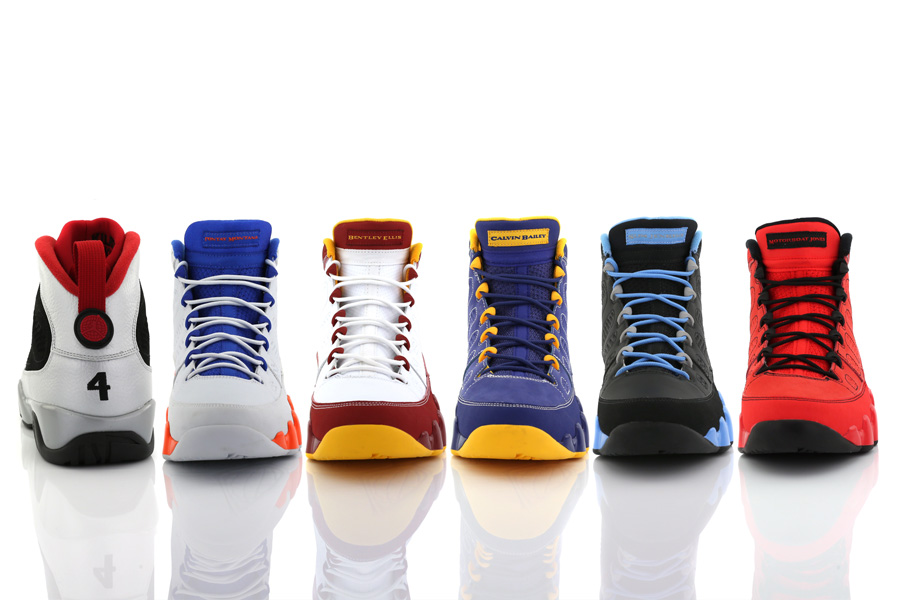
12 | AIR JORDAN IX KILROY PACK
From Air Jordan 1 to Air Jordan Infinity, a rich story is ready to be told. The plotlines are rooted deeply in calculated design and rich history, but the significance of 1994’s Air Jordan IX doesn’t come from the thrill of a Championship or a game-winning shot, but from the shock of Jordan’s sudden retirement from the NBA in October of 1993. The anomalous ninth Air Jordan hit stores when his loyal fans were unable to see him in action, but Nike, with the help of the creative masterminds at Wieden+Kennedy, made it absolutely clear that while Jordan was away from an NBA court, he wasn’t far from the sport of basketball. In early 1994, Nike launched what is considered to be the one of the most audacious and entertaining Jordan ad-campaigns ever created – and it was only aired once.
Steve Martin was featured as the primary narrator of a two-part investigative documentary that explored the identity of a magnificent, yet unknown, basketball player that was dominating the game at the semi-pro ranks. Rumors of this mystery man being the retired MJ in disguise began to swirl around and an audio recording that contained evidence of Michael admitting to faking his own retirement only heated up the controversy. In a pivotal moment in this titillating story, an unknown player named Johnny Kilroy suited up for the Bulls against the Hornets in a late December game, scoring 79 points in just one quarter. This “Popcorn Tape” proved to be damning evidence for Johnny Kilroy, as his true identity as Michael Jordan was finally revealed. The message of “Johnny Kilroy” was made clear by Martin, who eloquently stated that “Michael Jordan is letting nothing stand in the way of what he loves to do…and that‘s just to play basketball.”
Beginning in October, Jordan Brand embarked on an in-depth and ambitious retelling of the Johnny Kilroy saga by introducing the “Kilroy Pack” – a set of six Air Jordan IX colorways inspired by each of the fictitious assumed identities Michael Jordan took on in the infamous commercial campaign. To kick things off, a Johnny Kilroy Twitter account began throwing out cryptic messages and then hints regarding a scavenger hunt for free Kilroy-inspired gear. The growing buzz led to the release of the Air Jordan IX ‘Johnny Kilroy’ – the first of this exciting Retro-themed collection. It featured a Bulls-like color way of Silver/Black/Red and an embroidered ‘4’ on the heel, but what followed was a string of five more colorways inspired by the fictional teams and players – Fontay Montana of the Gulls, Bentley Ellis of the Crawfish, Calvin Bailey of Gary, Slim Jenkins of the Mystics, and finally, Motorboat Jones of the Billings Bandits. Each had its own team-inspired composition of colorways with tongue labels stitched with the respective player pseudonyms and their team logos printed on the sockliners.
Despite the fact that ten different Air Jordan IX releases hit stores in the last three months of the year, the entire Kilroy Pack was an outstanding success and quite frankly, a true sneaker collector‘s dream. It proved that great storylines could play as much of a role as Jordan’s winning legacy, and with such in-depth and unbridled attention to detail, many enthusiasts praised the Kilroy Pack as one of the best themed packs ever put forth by Jordan Brand. Looking back at all the specialty releases like the first “Defining Moments” Pack in 2006 and the “Old Love, New Love” Pack in 2007, it’s no mystery that the core consumers of Air Jordans certainly cherish this type of thorough memory jogging, and the Kilroy Pack is enough reason to be excited for future Retro releases inspired by the enduring history of the line.


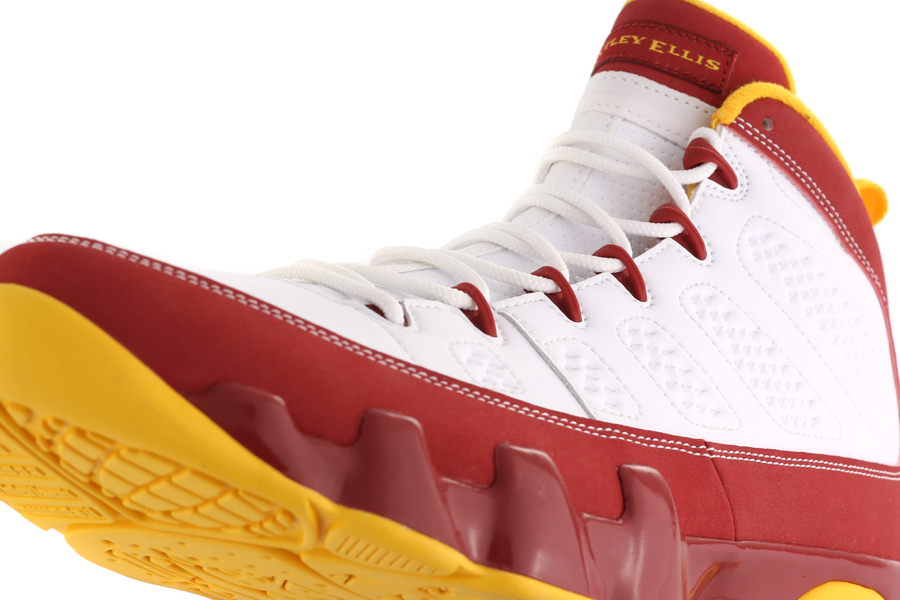

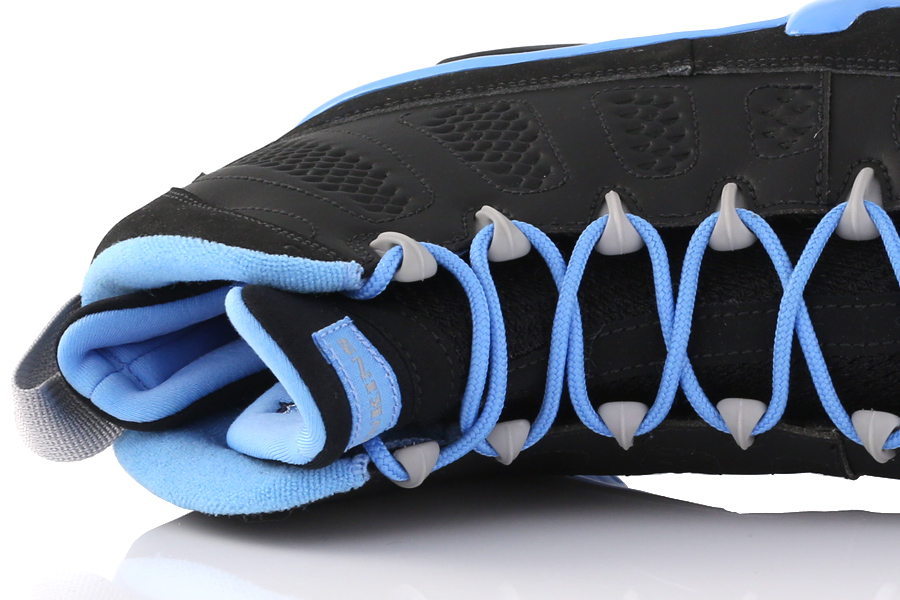
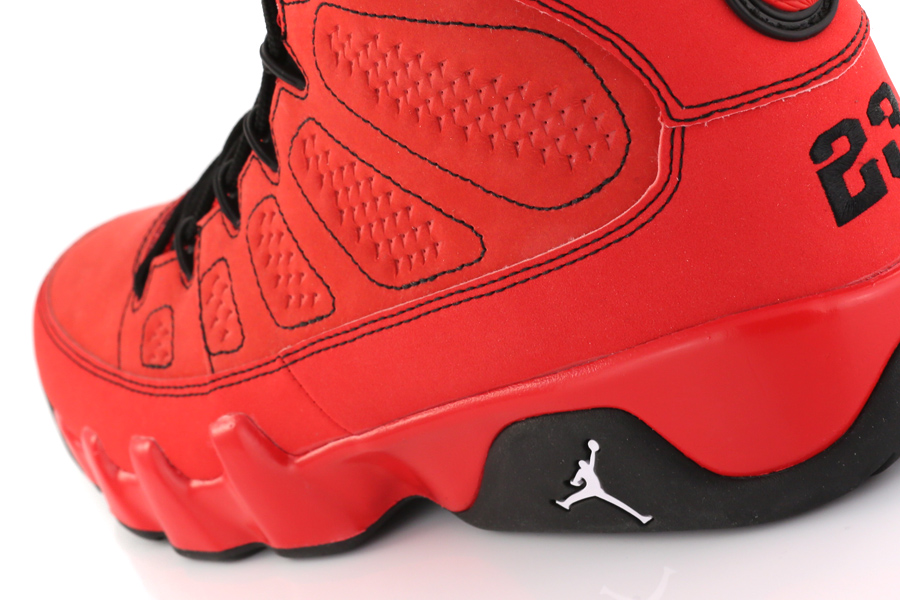
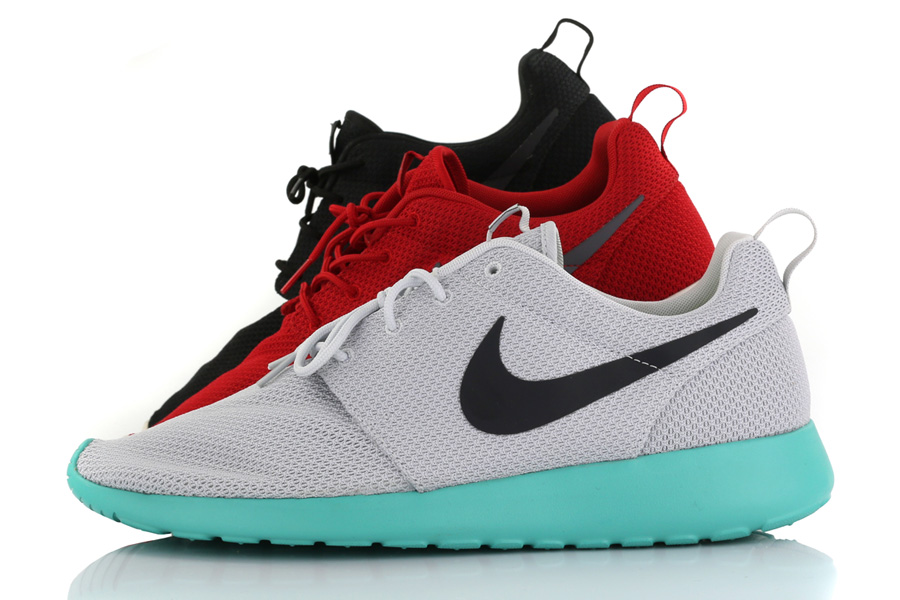
11 | NIKE ROSHE RUN
In a list laden with server-crashing sneakers, wallet busters, and uber-limited releases, one unassuming rookie managed to quietly insert itself into the footwear landscape as a reminder that it doesn’t take an absurd amount of bells and whistles to make a hugely desirable shoe. That sneaker was the Nike Roshe Run, the brainchild of Nike designer Dylan Raasch, who took a Zen approach in whipping up this modern day masterpiece. The chunky foam outsole was modeled after stepping stones in a Zen garden, the insole made to mimic the look of a freshly raked rock garden, and the fan-favorite ‘Iguana’ colorway was even crafted as an homage to the foliage and scenery in such a setting. The shoe was created with the goal of keeping things as simple as possible, rather than trying to squeeze more mileage than necessary out of the $70 price tag. The result was a lightweight and breathable sneaker that immediately made sense once you put them on your feet.
What’s more, the Roshe was a sneaker that arrived without any bearings of the dreaded “hype”, simply showing up on shelves back in March with its pliable shape and alluring price. It didn’t take long for folks to catch on, with even the hard to please collective shoe-fiend hivemind lauding the Nike Roshe Run early on. With little push or promotion from Nike, the Roshe still managed to disappear
from store shelves upon arrival. Out of the gate color-ups like the blacks and the reds went first, with the subsequent scramble over gems like the ‘Calypso’ and ‘Iguana’ from the next wave proving that the Roshe was indeed in high demand with no signs of slowing down. Meanwhile, the low pricepoint ensured that people weren’t afraid to break them out of the box, the sneaker no doubt seeing more mileage as a whole than higher entries on this list due to their imminent wearability. It was not a shoe that screamed “put me on ice for the next five years”, but rather “put me on pavement as soon as possible!”
The Nike Roshe Run was truly the definition of a sleeper hit, a phenomenon that nobody saw coming and one that laughed at the high pricetags of the bleeding edge designs being cooked up across campus in Beaverton. It was a sneaker that surprised all of us, its quiet release sort of hearkening back to the days when you would stroll into a brick and mortar spot, see something new, and walk out with a sneaker you never knew existed. The Roshe Run without a doubt deserves its spot amongst the cream of the crop from this year, and is a shoe surely destined to join a celebrated roster of Nike cult classics that will be eagerly gobbled up anytime they make their way back to retailers.
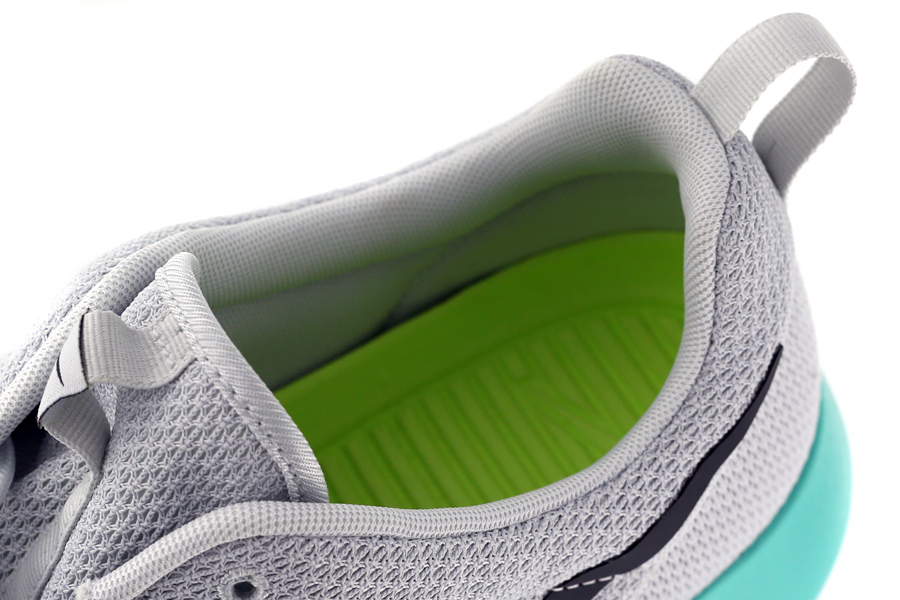
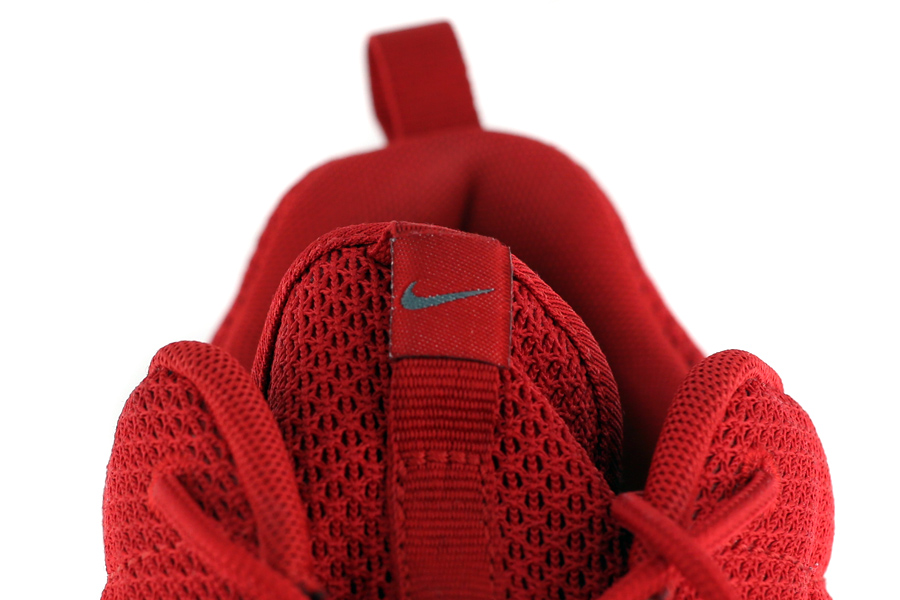

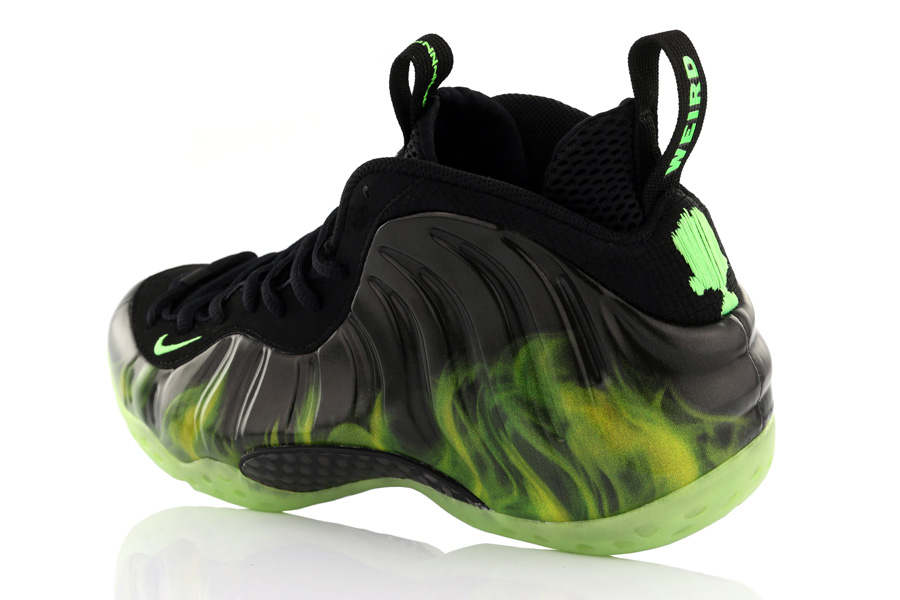
10 | NIKE AIR FOAMPOSITE ONE “PARANORMAN”
Among the many impressive accomplishments and philanthropic endeavors of Nike co-founder Phil Knight, his participation in the arts is one that doesn’t get much publicity. Knight made his first move into the field by investing in Laika Studios in the late 1990s, but it wasn‘t until 2009 that Laika and Nike finally crossed paths. Laika reached a defining moment in its existence with the release of Coraline – the studio’s first ever feature film and an eventual Academy Award nominee. Nike commemorated the movie with a limited edition version of the Dunk High inspired by the story and its characters, making for one of the most daring and coveted Dunk designs of the late 00s. Since that early 2009 offering, the Laika x Nike connection wasn’t revisited again until 2012, when the two would come together for an incredible follow-up project that took an outside the box approach and reinvented conventional methods of obtaining sneakers in the process.
To kick things off, Nike released a set of teaser previews of a mysterious Nike Air Foamposite One, revealing some unusual and intriguing details that appeared to go the printed graphic upper route much like the insta-classic ‘Galaxy‘ Foams from earlier in the year. The hints also pointed toward another collaboration with Laika as the details coincided with the imagery from ParaNorman – Laika’s latest animated film about a strange young boy with the ability to communicate with the dead. The Air Foamposite One “ParaNorman” was fully unveiled just days later, introducing an incredible combo of detail and color like the special logos on the heel, the smoky green graphics on the upper, the special messages on the pull-tabs, and a creative sneaker box that featured a tight “Deadstock Seal” that required one to “Pull to Undeadstock.” Just 800 pairs of the ParaNorman Foams would be released, but obtaining a pair would require going to some unconventional measures – an entertaining combination of personal stories and social media interaction.
All 800 of the initial pairs were awarded to members of the Twitter community. No dollar amounts were needed – just a photo of yourself sent in to demonstrate that you were a “weird kid”. Using the #WeirdWins hash tag to monitor the entries, Laika and @ParaNorman gathered the submissions and handpicked each of the winners after the ten-day event. This unique release highlighted today’s most popular methods of web-based interaction, bringing in over 80,000 “weird” kids to take part in the first sneaker release of its kind. A second eBay-exclusive auction of eighty additional pairs became available on September 8th, with 70% of the proceeds going to the Born This Way Foundation – an organization founded by Lady Gaga with a mission to empower youth and embrace individuality.
The entire ‘ParaNorman’ phenomenon made its impression felt this year as it introduced new elements and thinking in packaging, design, and release format. The jaw-dropping colorway, the infamous “Undeadstock” seal, the Twitter-exclusive release – all of these factors played a role in redefining the special-edition sneaker release by embracing new methods of social media outreach (a camp-out or an in-store connect would do no one any good this time around). Those who hunted the ParaNormans after the release were forced to shell out incredible amounts, and it will likely go down as the priciest Foamposite to date on the re-sale market and one of the great collector’s items in sneaker history. An even rarer related treasure also emerged as the second ParaNorman-inspired Nike sneaker was later revealed to be a special Air Raid design, existing only in sample form and in the possession of Nike and the folks at Laika. Whether you got lucky or missed out, the ParaNorman Foamposite was certainly one of the year’s best stories, and without question a “weird” release that may just have changed the blueprint for how future special releases will be executed.
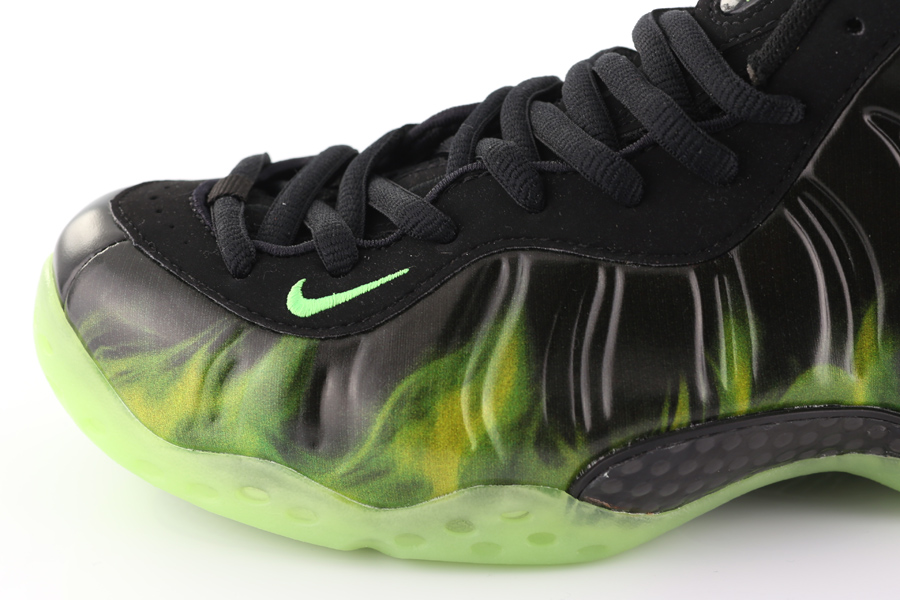
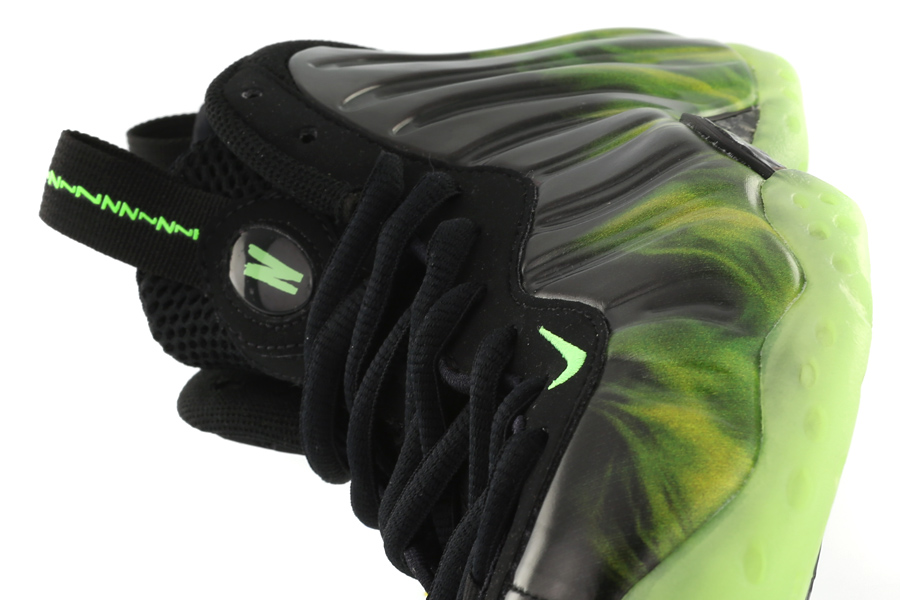
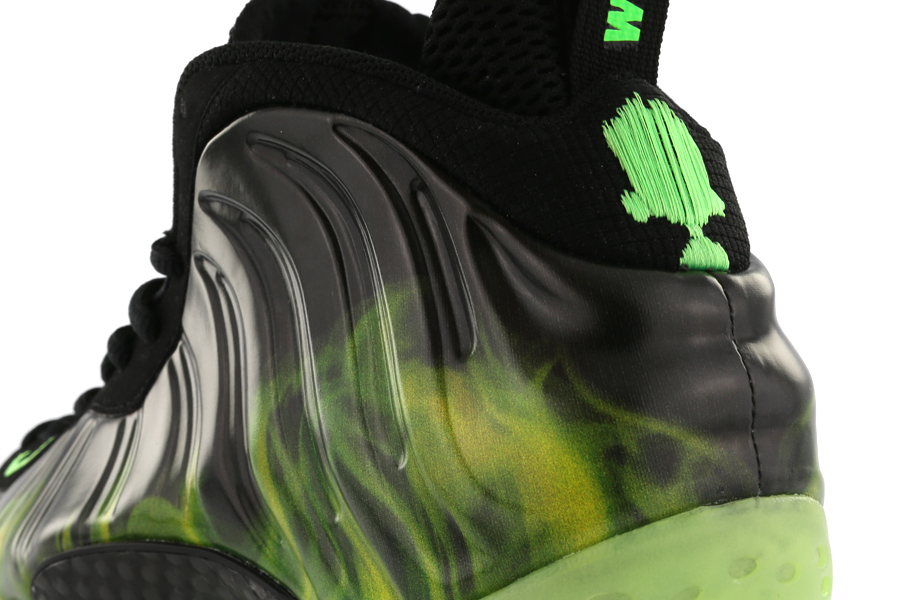
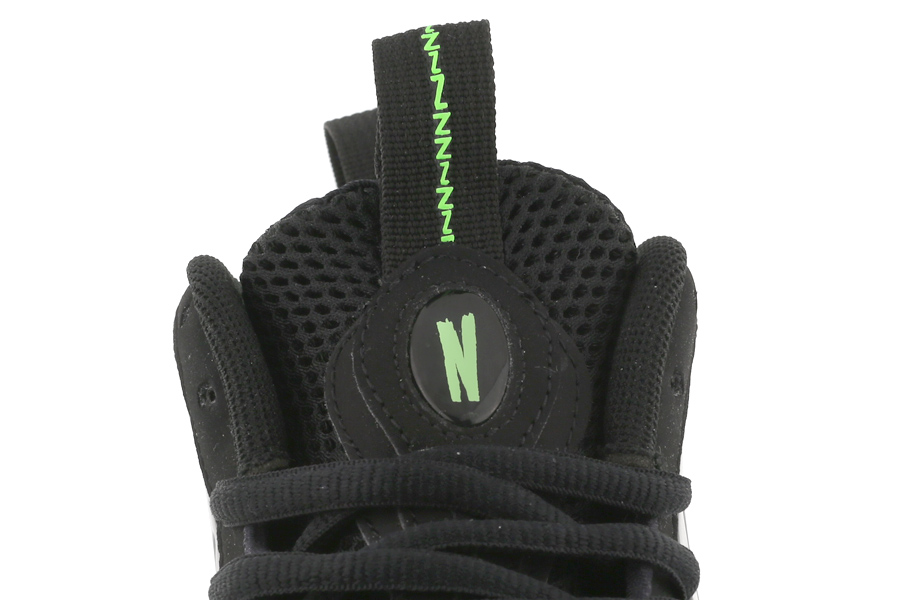
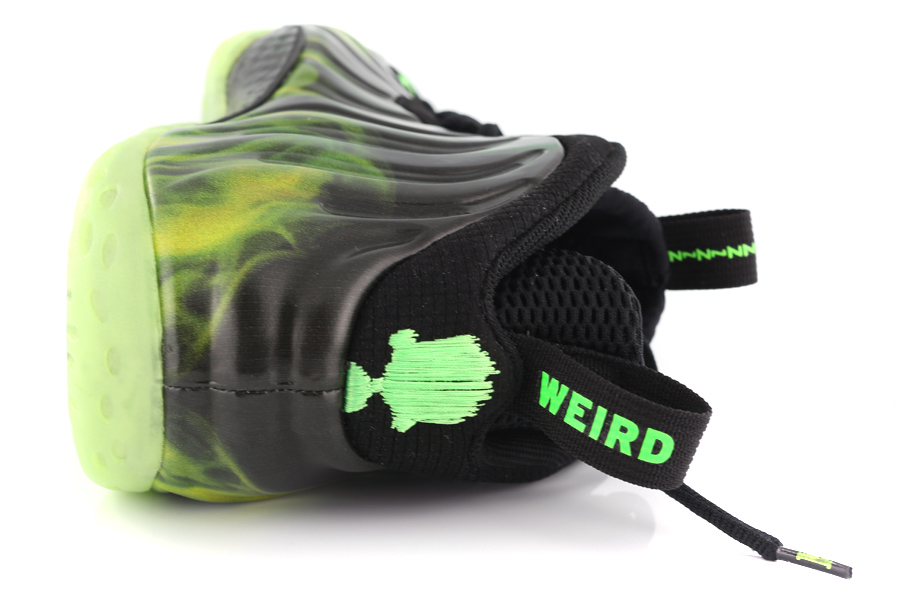
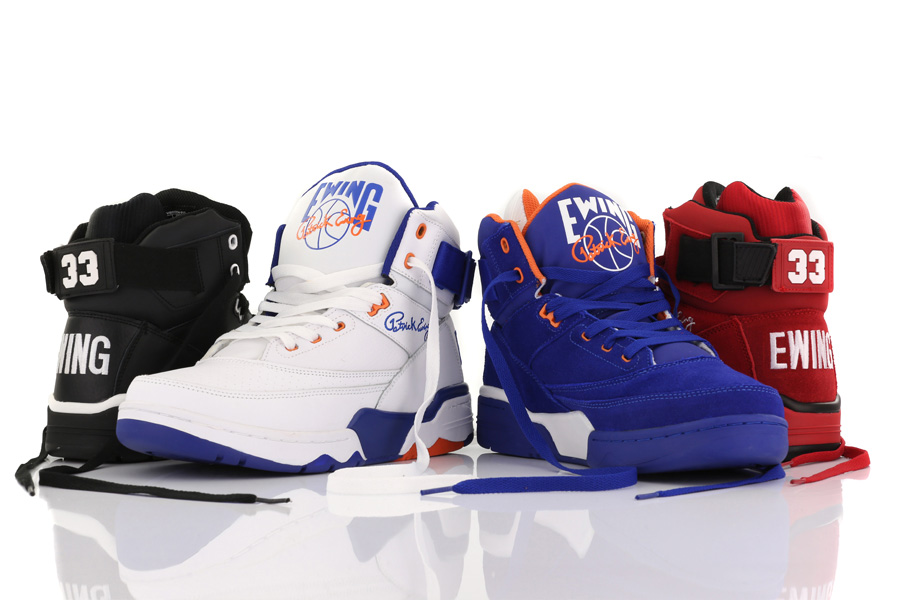
9 | EWING 33 HI
Classic sneaker models from the late 80s to mid 90s continue to be in high demand as the ongoing retro thirst shows no signs of slowing down. Most of the major brands have picked their archives clean in attempt to milk whatever nostalgia dollars can be yielded from any of yesteryear’s models that may maintain some retro relevance in the contemporary market. But what about for some of the smaller brands that are no longer in business?
For many of us, one of the first that would have come to mind was the Ewing Athletics brand, which enjoyed a nice run beginning in 1989 and eventually shutting down in 1996. During the Ewing brand’s initial stint, its namesake was the king of New York and an absolute beast on the hardwood, so when Patrick decided to leave adidas to start his own signature line, there were plenty of fans and sneaker consumers ready to show their support, not only in the Big Apple, but across the country and even catching on in Europe and Asia as well.
While the first incarnation of Ewing Athletics produced a variety of successful models, none was more recognizable or revered as the iconic 33 Hi. As the internet became a natural breeding ground for
sneaker congregating and reminiscing, the legend of the 33 Hi never died, as folks shared pics and pined away for years about the seemingly hopeless prospects of a return to retail glory. In 2012, those wishes would come true as the brand was resurrected with Pat’s blessing as an independent venture with a focus on bringing back the classic Ewing models true to their original form.
Several hints and teasers were planted via social media platforms, building a perfect storm of buzz and anticipation eventually punctuated by the announcement that the Ewing 33 Hi would, in fact, be the first retro offering from the reborn brand. Earlier this year, four original colorways were re-introduced to the world and greeted with open arms by both the older generations who loved the first go-around, as well as a younger crowd who found plenty to embrace in the distinctive hightop silhouette and its ties to Patrick Ewing’s legacy. Split into two separate drops between an appropriately numbered 33 retailers in the U.S., the OG foursome of colorways cleared out from shelves as expected and effectively set up the groundwork for global distribution of the brand and a solid line-up of additional Ewing models to follow their lead in 2013.
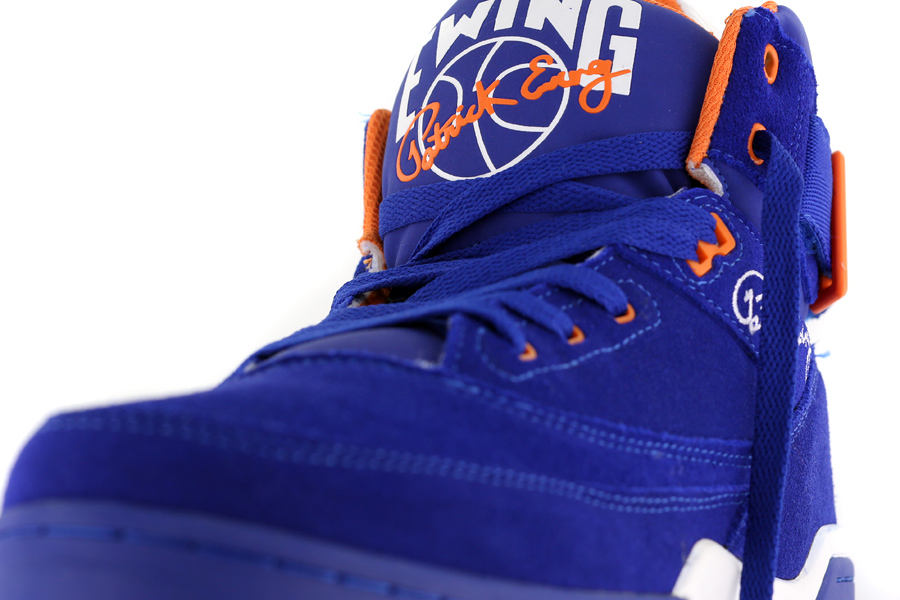
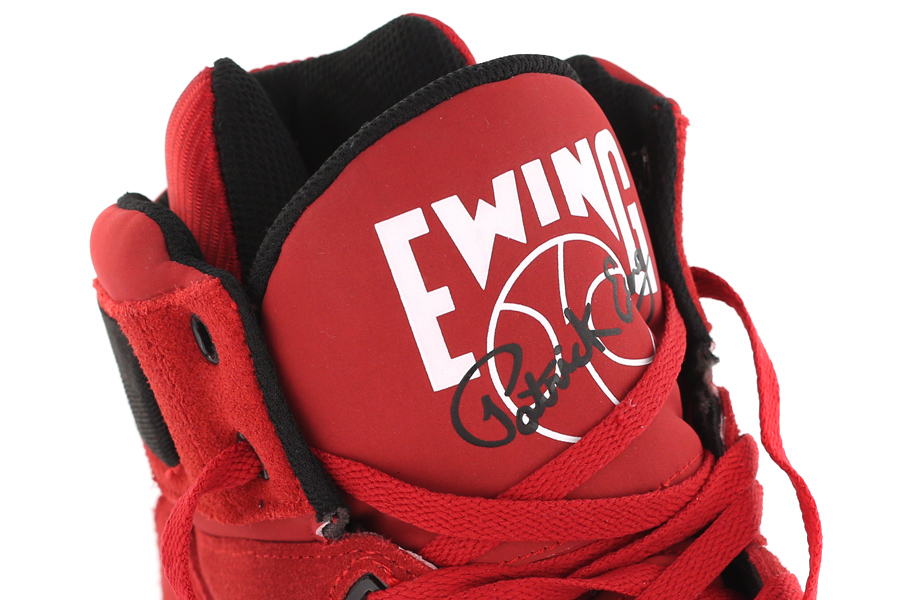
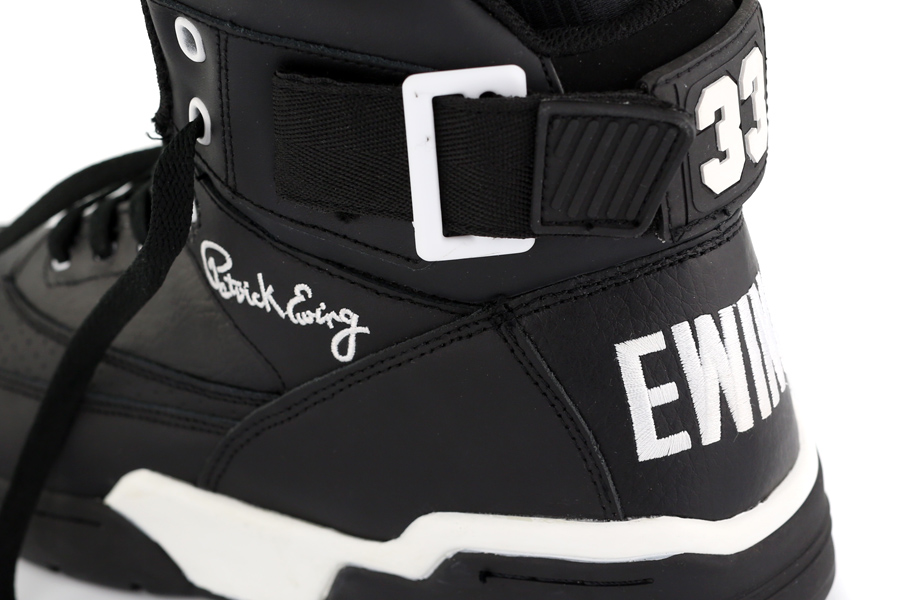
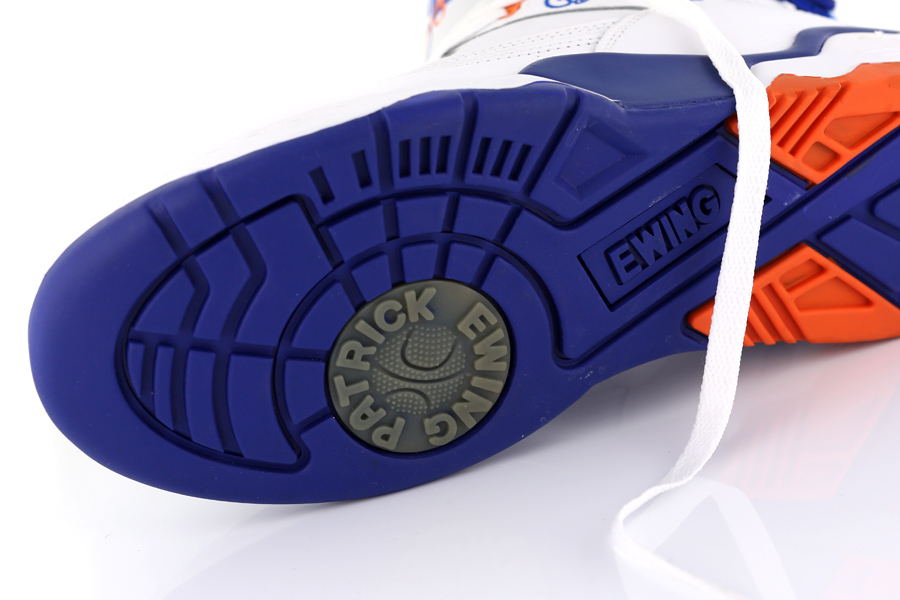
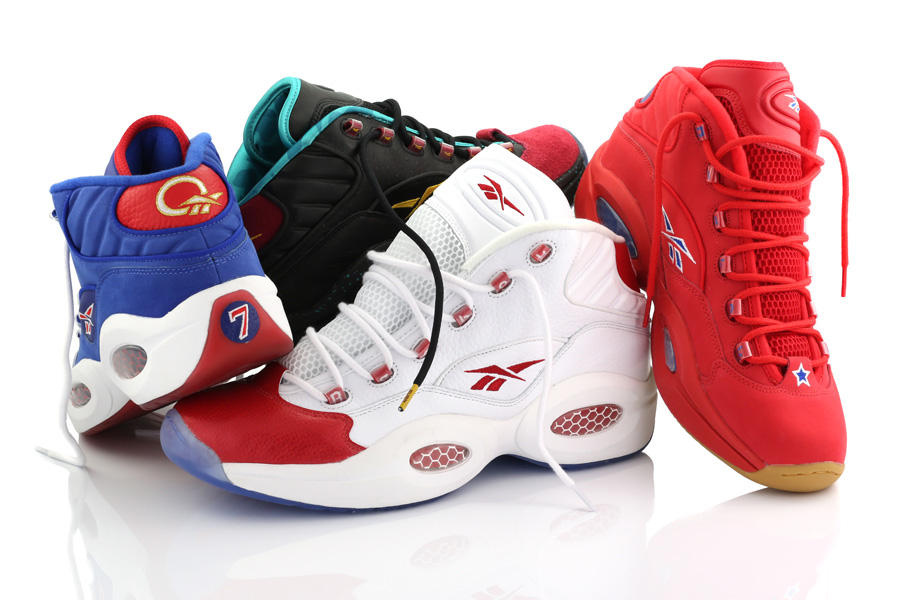
8 | REEBOK QUESTION
“Reebok back.” That slogan has been thrown around for a couple of years now as a mantra that promised the brand’s return to former glory, a return to the days when there was far more parity with other sportswear giants like adidas and Nike. The phrase has never held truer than in 2012, wherein the Vector Brand made a huge statement in the retro scene with the re-introduction of the Reebok Question, renegade baller Allen Iverson’s first signature sneaker. AI remains probably the closest thing any other brand has to a Michael Jordan figure, having amassed a loyal fan following during his prime for his on and off court flair, and there’s no reason why his story and the surrounding sneakers can’t reclaim their relevance in a market so thirsty for reissues.
The story began with the return of two important original colorways, the white/red and the white/navy, both utilizing a clean white base and slapping on their bits of color with a pearlized tint on the toe and back tab. The navy among that duo had a particular significance for Iverson fans, being the same colorway he donned during that immortal highlight reel moment wherein AI put an ankle breaking crossover on His Airness. From then on Reebok handed the reins over to a few outside partners, partnering with a couple of US sneaker retail institutions to further spread the Reebok Question message.
Detroit’s Burn Rubber was first up, rechristening the model as the Reebok Inquiry and whipping up a backstory featuring the fictional tragic bad boy superstar, Apollos Young. Adding some ample hometown flavor, the “Inquiry” version featured a throwback color combo based on the Pistons’ infamous 90’s uniforms. Later it was the mighty Packer Shoes of Teaneck, New Jersey, who kept things locked
on Iverson with two separate editions. The first came with inspiration from one of Iverson’s most memorable off court moments – the legendary “Practice” press conference. The sneaker pushed a bit more color onto the model than the inline styles, with gold embroidery, a translucent cherry red sole, and a deep blue base helping to capture the Philly feel along with 7/6 heel stitching replacing the standard 3 from the originals. The second Packer Shoes x Reebok Question release came with a sharp red nubuck covering the entire upper, again throwing in hits of blue and white to bring the Sixers theme to life and giving the classic model a taste of the gum sole treatment as the finishing touch.
With respect to this year’s Reebok Question retro comeback campaign, Reebok did just about everything right with this one. They recognized the importance of slapping a definite release date on the return of the 1996 classic and positioning it in the right places to help boost street cred. They also had a powerful cultural arbiter on their side in the form of Swizz Beatz, who took to social media spheres to promote these, and plenty of other releases, with a real passion that seemed to extend beyond whatever contract he’s got in place. They even brought back some other pieces from the AI line to similar fanfare, with the Reebok Answer IV picking up quite a few more followers this year in the process. And this is only the beginning for Reebok Classics as the success of the Question this year gives them all the momentum they need to re-introduce folks to their gigantic catalog of worthy throwbacks. With retros from the Shaq and Shawn Kemp lines apparently on their way, Reebok is indeed back, and it’s safe to say they’ve got a few more welcome blasts from the past still on the way.
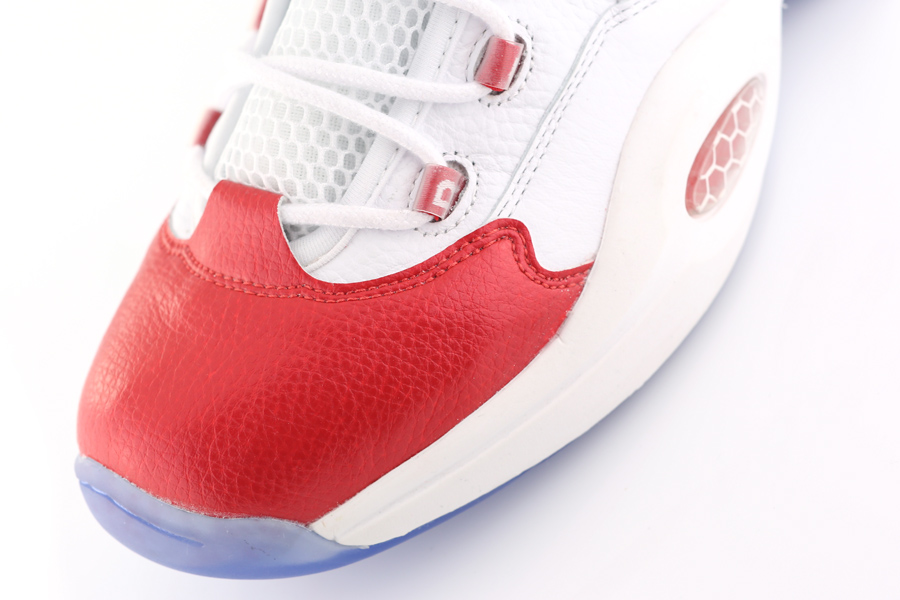
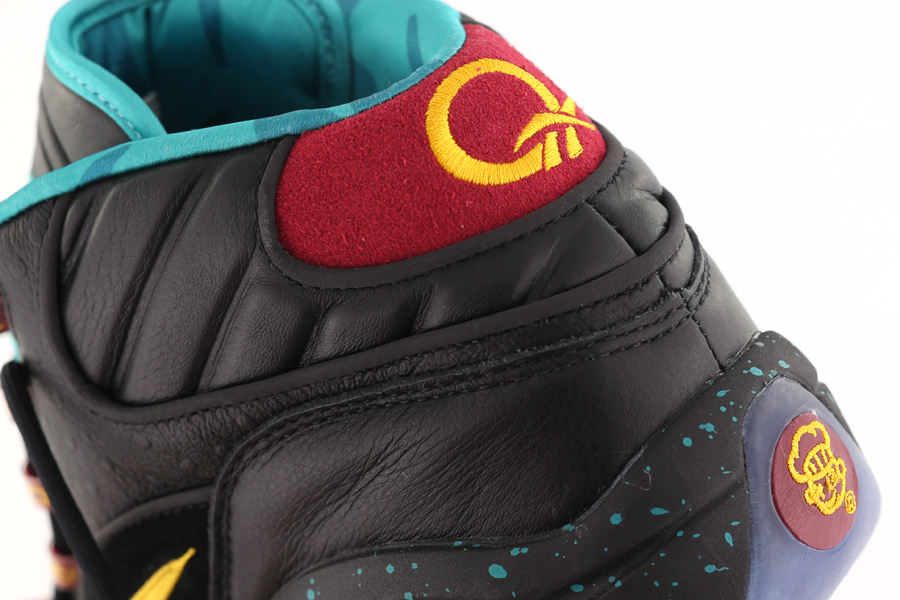
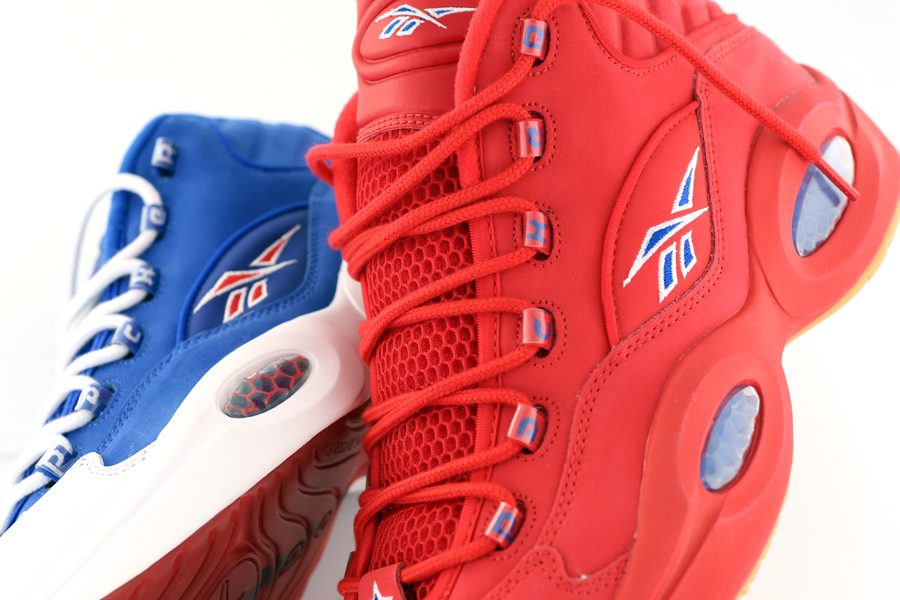
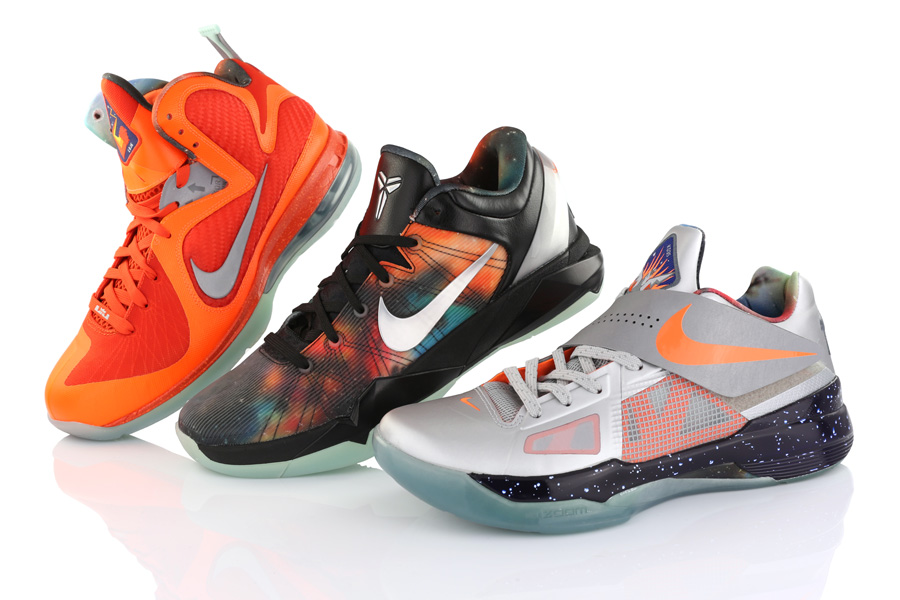
7 | NIKE BASKETBALL 2012 ALL-STAR PACK
Every February, the world’s greatest basketball talents convene at a pre-selected venue to participate in one of the most anticipated professional sporting events of the year – the NBA All-Star Game. Orlando, Florida was the location for 2012’s affair, and with LeBron James, Kobe Bryant, and Kevin Durant being lock selections as starters for their respective conferences, Nike Basketball created a special capsule of All-Star Game footwear for their pinnacle athletes to showcase during the game. With the Kennedy Space Center being located just outside of Orlando, the Nike Color, Graphics, and Materials Team didn’t need to look far to find a juicy source of inspiration for the collection as the theme of “space exploration” seemed to be a perfect fit to elevate the LeBron 9, Zoom Kobe VII, and Zoom KD IV to the esteemed level of the All-Star stage and beyond.
For this year’s All-Star Pack, Nike specifically pointed at three primary details – the phenomenon known as the supernova, the distinct materials on flight suits, and the honorary flight mission patches that are awarded to astronauts for their accomplishments. Using this carefully selected core of details for the entire pack, Nike chose some jaw-dropping color ways for each model; the LeBron 9 boasted a singing vibrant orange tonal upper, the Kobe VII placed the now
famed Galaxy print front and center on the textured upper, and the KD IV utilized a magnificent metallic silver upper with a reflective mid-foot strap and speckled midsole. The entire set was then anchored by the stunning glow-in-the-dark outsole – a design feature that has become one of the trendiest sneaker details of the year.
In addition to the trio of Nike’s signature basketball models, the All-Star Pack was complemented by the game-changing Air Foamposite One ‘Galaxy’, a trio of Dunk Highs, and a special version of the Air Flight One – all created with the space exploration concept in mind. The entire set released in late February and attracted massive crowds of eager sneakerheads. The overwhelming response forced a number of retailers to postpone the release and may have helped to contribute to the creation of Nike’s Twitter RSVP system, causing a major change in the big picture of sneaker releases for the foreseeable future. In the end, this jaw-dropping trio proved to be the best and most ambitious set of All-Star Game releases ever executed by Nike, creating intense energy around each individual model and setting lofty precedents for future Nike All-Star releases and special editions in the process.
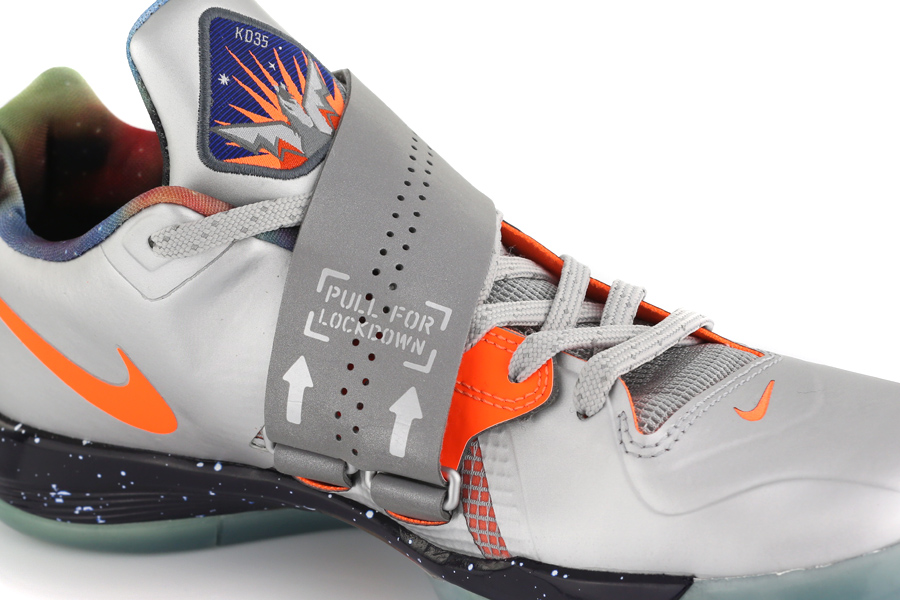
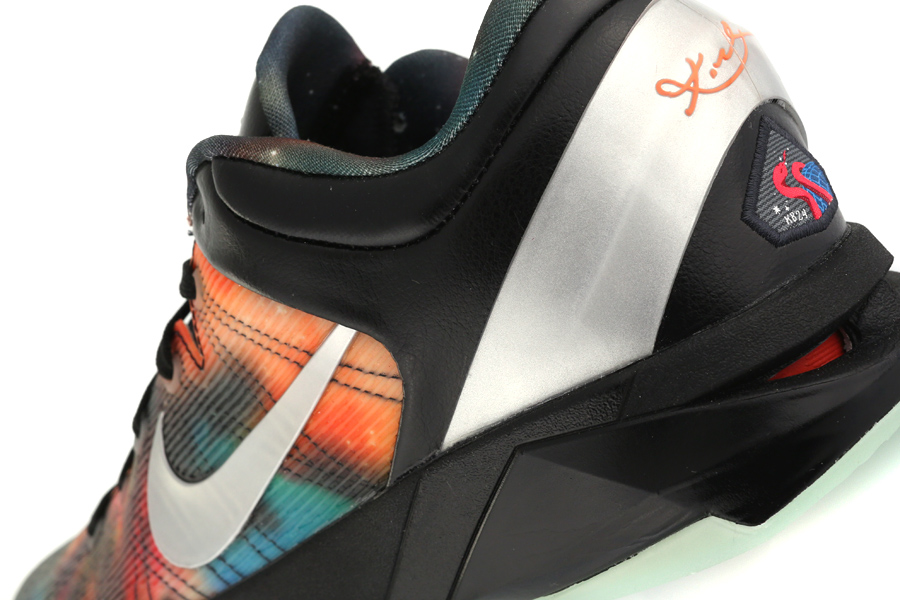

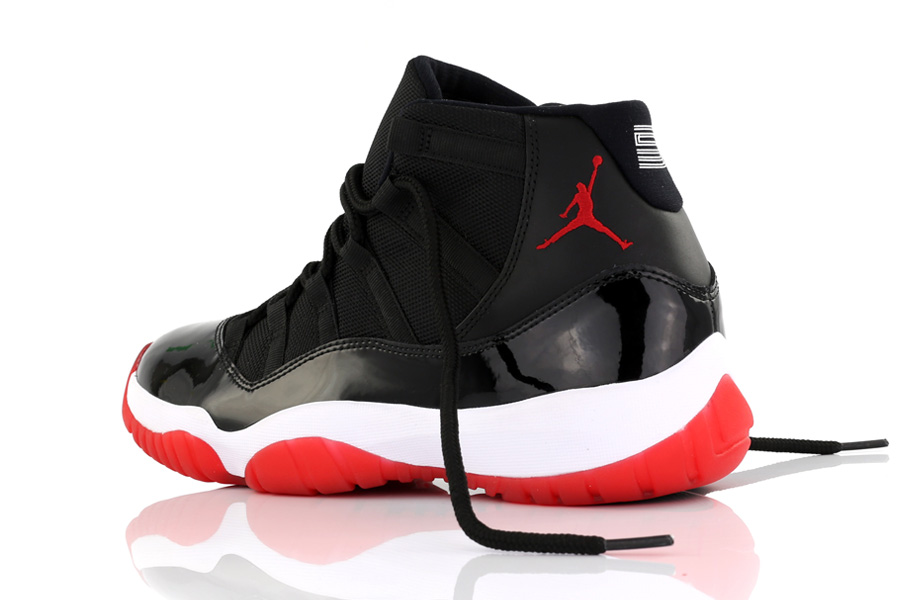
6 | AIR JORDAN XI “BRED”
Among the most enduring arguments in the world of sports is the debate regarding MVP deservedness. Some argue that the award should be given to the best overall player in a given season, while others remind us that “You play to win the game” and Ws count as much, if not more than any other statistic. The second group would say the MVP should be the best player on the best team and each has its own valid points, but what’s left to argue when the best player of all time leads the greatest team in league history?
From this perspective, it’s easy to see why the “Bred” Air Jordan XI comes up any time people mention the race for 2012 sneaker of the year. The shoe has a legendary backstory that rivals the richest sagas in sneaker history, one that traces its roots all the way back to the 1995 NBA Playoffs. It was during the postseason that followed MJ’s first return from retirement that the XIs made their first appearance, but more important than the appearance of the Concords or Mike in Penny’s Air Flight ones was the intangible impact of that series on the Black Cat’s psyche.
Their first playoff defeat together since 1990 seemed to prove that Jordan and his Bulls were mortal, but the following season’s NBA-record 72 wins plus one more trophy each for the scoring title, regular season, All-Star and Finals MVPs represent sustained dominance the likes of which we may never see again. That brilliant season helped shine a huge spotlight on the “Concord” and the following summer gave plenty of profile to the “Space Jam”, so the combination of Cordura nylon, patent leather and carbon fiber was already high at the top of everyone’s list. But there’s something
about a black Bulls-colored Air Jordan that just seems to pack a little extra magic, and the Black and Varsity Red playoff colorway can certainly make for a strong argument for being the king of all XIs.
However, perhaps the most relevant debate involving the 2012 Bred XIs isn’t whether they deserve a spot in your best of the year list or if they’re historically more significant than the competition, but instead, how it came to be that this particular colorway was selected for release this year only a few years removed from their last appearance. The smart money seemed to be on the 1996 ASG edition “Columbia” to return this Christmas after Breds, Space Jams, Cool Greys and Concords gave us each of the other four Air Jordan XIs in consecutive years starting with the 2008 Countdown Pack. The Columbias will no doubt get their day in the sun soon enough, but the 2012 Bred bump is a clear testament to how confident Jordan Brand was in its holiday season clutch time retail prowess.
Hopefully, next year, we will indeed welcome a second Columbia retro with open arms after eleven years and counting, and even if detail-oriented sticklers might take issue with the Breds not getting the special packaging advantages of previous XI drops, no one was complaining about getting another crack at one of the sneaker world’s most cherished treasures this December. Despite the rich and seemingly insurmountable legacies of earlier Air Jordan models, the yearly holiday release of the XI (in whatever colorway) has become an event in itself and has further helped it to solidify an undisputed spot at the top of the retro food chain.
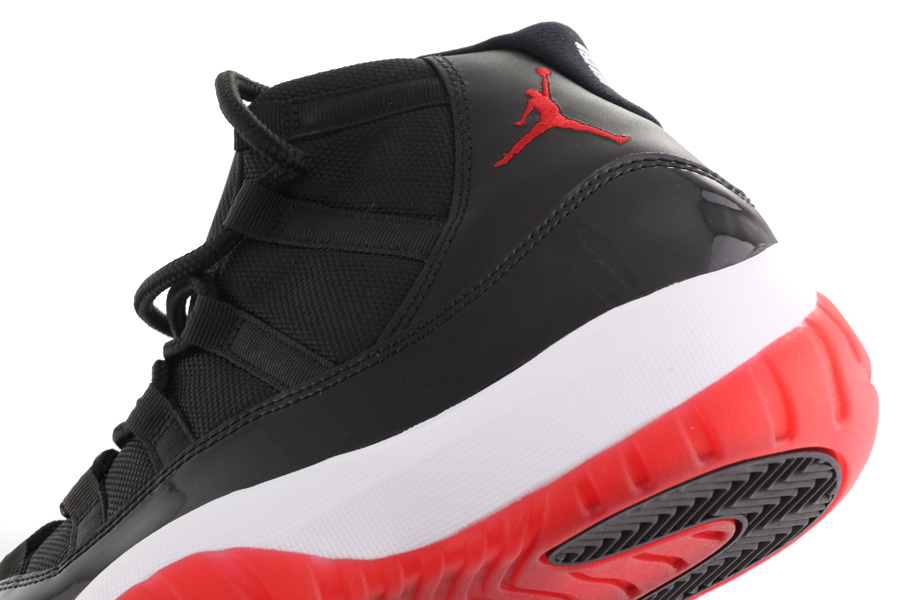

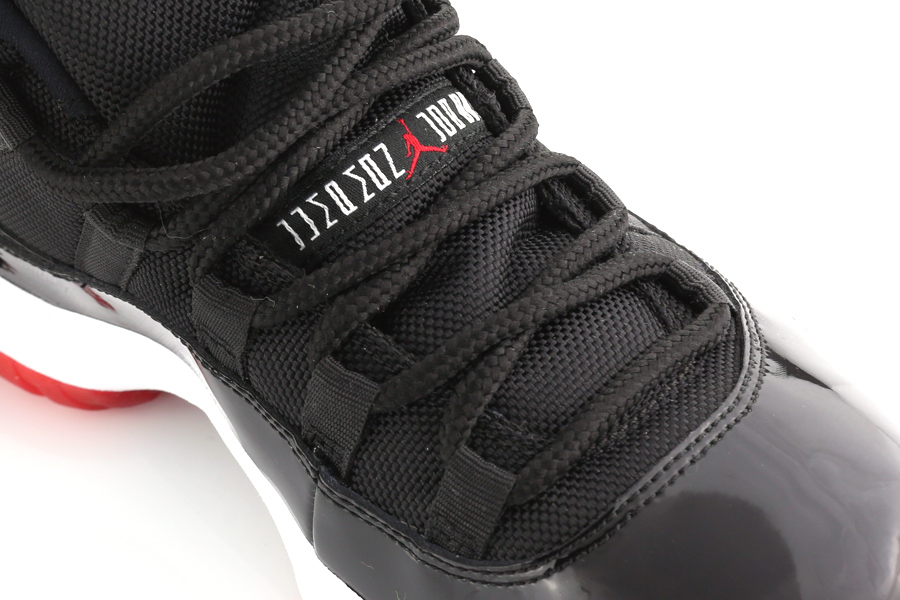
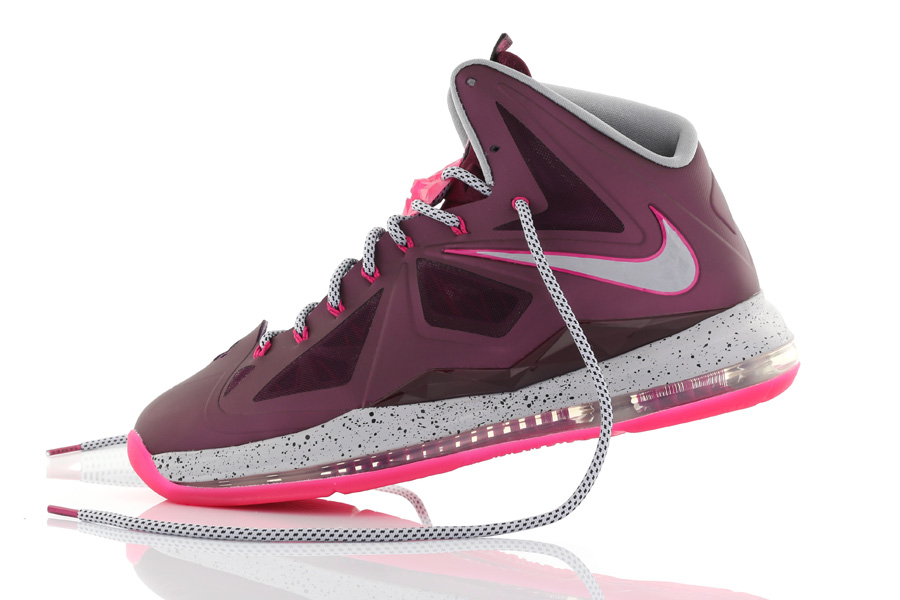
5 | NIKE LEBRON X
LeBron James finally did it. The best basketball player in the world finally cleared that ultimate hurdle, leading his Miami Heat to a championship in the 2011-12 NBA season. All the pressure he’d been through was paying off, with the year bringing him not only the title of NBA Champion, but also that of Most Valuable Player and Olympic gold medalist as well. How do you crystallize such a milestone moment in the career of one of our generation’s greatest athletes in sneaker form? You cram in all the premium tech that Nike can offer in a basketball shoe, distill things down to a theme that reflects the struggle and glory of King James over ten years, and then let it make its debut on the world’s biggest sporting stage.
Everything fell perfectly into place for the Nike LeBron X. As alluded to previously, the sneaker was introduced to the world during the USA Men’s Basketball team’s Gold Medal match against Spain at the 2012 Summer Olympics in London. From there, its journey to retail began, sparking some early controversy along the way thanks to speculation on the various pricing options. Initial rumors had put the premium version of the Nike LeBron X featuring the Nike+ options and the included sport kit at a price of $315, a number which dropped off a couple times ahead of the first release of the sneaker, and eventually clocked in at $270. Beyond this, Nike+ enabled pairs without the accompanying sport kit were available for $200 and the non-Nike+ versions stood at $180.
The Nike design team made sure that consumers were indeed getting their money’s worth, cramming a good amount of technology into the Nike LeBron X. On top of the Nike+ options available, the sneaker also sported a specifically engineered full-length visible Zoom unit running along of the bottom, Hyperfuse paneling on the upper, and Flywire supports intertwined beneath to keep the fit locked down. From an
aesthetics standpoint, the sneaker pulled inspiration from the constant pressure put on LeBron over the years, spinning a diamond theme throughout the design and colorways that not only told a story of perseverance, but also helped to embody the prestigious landmark moment of reaching his tenth signature shoe.
The first pair to prominently showcase that motif was the Nike LeBron X “Crown Jewel” a Fireberry colored edition that planted a crown and scepter graphic on the back badge, no doubt an allusion to LeBron’s royal nickname and the extra pile of trophies he’s recently acquired. The special treatment on that pair even extended to the box, a premium angular gem-shaped casing that held the shoes in their own lush dustbags within. From there, many more precious stone-inspired designs came forth, including the ‘Blue Diamond’ colorway sporting a chilly blue for the upper, the ‘Cutting Jade’ that served as this year’s China tribute with its Eastern influenced graphics, and the black and red ‘Pressure’ directly referencing the obstacles LeBron faces during any given road game.
Various basketball ready models followed and we even saw a preview of the Nike LeBron X at the forefront of a new, Nike Sportswear-led project that seeks to better place the sneakers in a lifestyle light. Yes, folks having been wearing basketball shoes off the court for as long as such a thing existed, but never before has there been an effort in making that transition such a deliberate one. Everything from the daring design to the demanding price tag on the Nike LeBron X showed that Nike was absolutely willing to continue taking risks on what has become the premier signature sneaker line of the last decade. Once again, the final result has become a shining success – all that pressure resulting in one of the year’s most coveted and critically acclaimed sneakers.

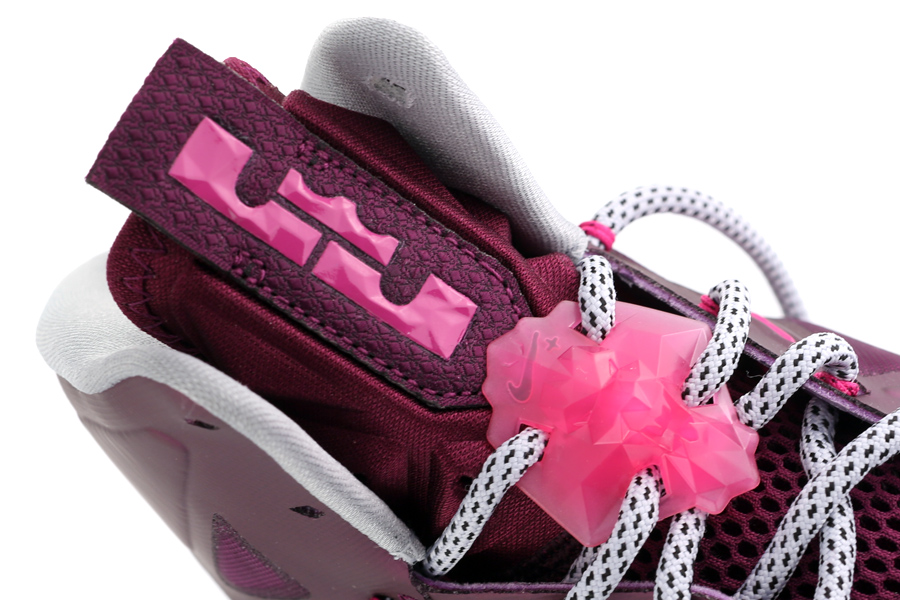
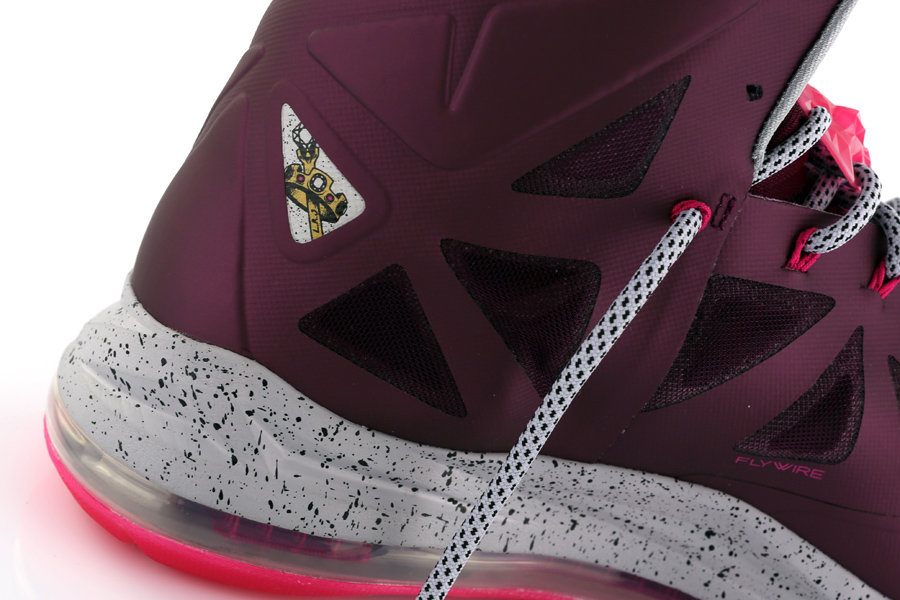
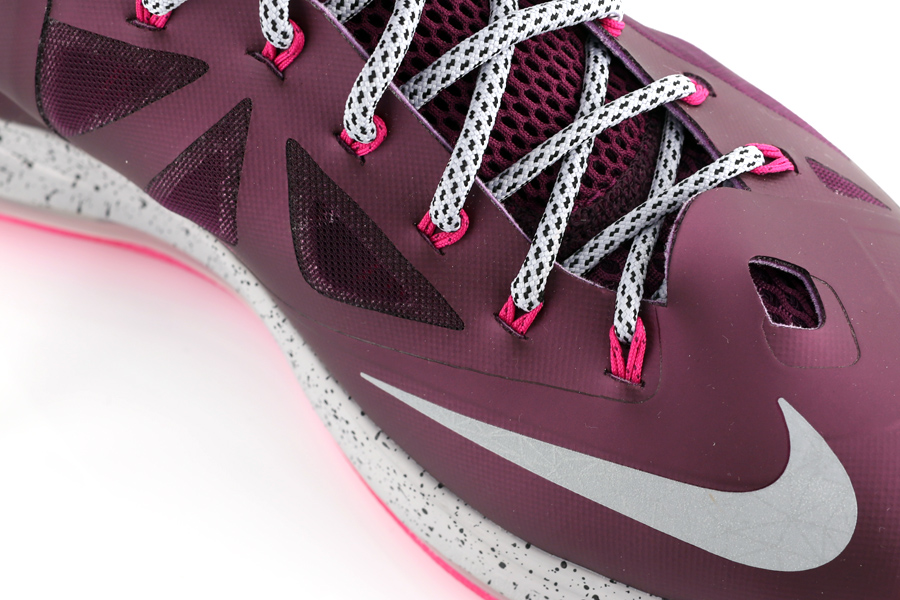
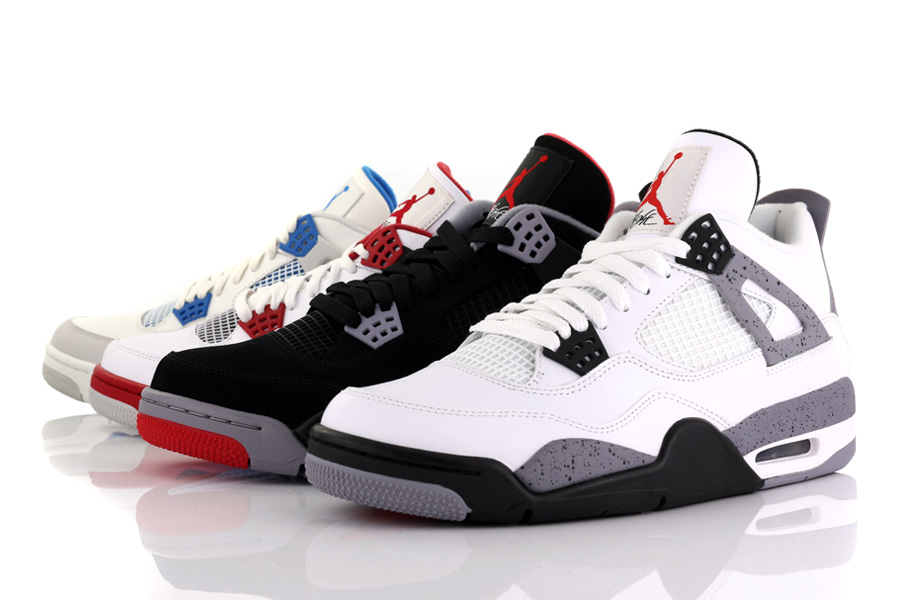
4 | AIR JORDAN IV ORIGINAL COLORWAYS
While the few and far between Air Jordan XI Retros have managed to maintain a revered sense of mystique throughout the years, for many Jordan purists, the real G.O.A.T. debate comes down to “the III vs. the IV.” In addition to their shared and undisputed aesthetic brilliance, they’re also arguably the two most versatile everyday wearable models in the Air Jordan lineage. The lower ankle cut effectively seems to make them more accessible to a broader fanbase and especially with those who love Jordans, but are not usually partial to hightop basketball silhouettes. Aside from the comparable ankle height and worldwide adoration, most of the similarities end there. The Air Jordan III steps into the ring equipped with the almighty elephant print and was the first appearance of the iconic Jumpman logo, but for all the elegance and sophistication it brings to the table, there’s just something so “next level” about the Air Jordan IV.
Most sneaker designers would retire after designing the Air Jordan III, content with having just created one of the all-time greats in the history of the medium, but for a young Tinker Hatfield, it was right onto the next one. How do you follow the Air Jordan III? How about some crazy protruding lace wings on the sides, plastic netting on the tongue and underlay and some kind of cool new speckled pattern known as “cement” thrown in on the accents. It all came together with the unique lacing system, extending heeltab and the dynamic contours of the midsole to materialize into the perfect evolutionary next step for the Air Jordan line. The Air Jordan IV was fiercely technical and futuristic in its look, but it’s flowing lines and shapes gave it a stylish and organic feel that felt completely congruent to what MJ was doing on the court at the time.
Michael Jordan symbolized the future of the NBA and was doing things the game had never seen. Not only was he innovating on the court with his play, but he was doing it with an unparalleled style and grace and the Air Jordan IV seemed to succinctly embody those elements. Four original colorways were released beginning in 1989, each one achieving legendary status over the years in the hearts of Air Jordan fans. 2012 marked the 23rd anniversary of the original release and for Jordan Brand, that milestone means a celebration of the model at retail. Following last year’s formula for the III’s 23rd birthday, various colorways of the Air Jordan IV hit the shelves all year long as expected.
There were some new and unexpected drops along the way, like the “Cavs” edition, which was a tribute to Michael’s infamous execution of “The Shot” over Craig Ehlo in the playoffs, but despite the great story behind them, more folks seemed to want to refer to them as “Knicks” instead for the more obvious color scheme tie-in. In the unexpected column was the return of the “Thunder” colorway, marking a rare re-release of a relatively recent non-OG colorway. Despite the new additions to the IV family, the real treat was the return of all four original colorways beginning with the White/Cement in February and finishing off with the beloved “Bred” edition on Black Friday. While there will never be a definitive champion in the ongoing “III vs. IV” debate, for those who don’t care which is better and just can’t get enough, it’s been a dream two-year stretch of Retro releases to say the least.
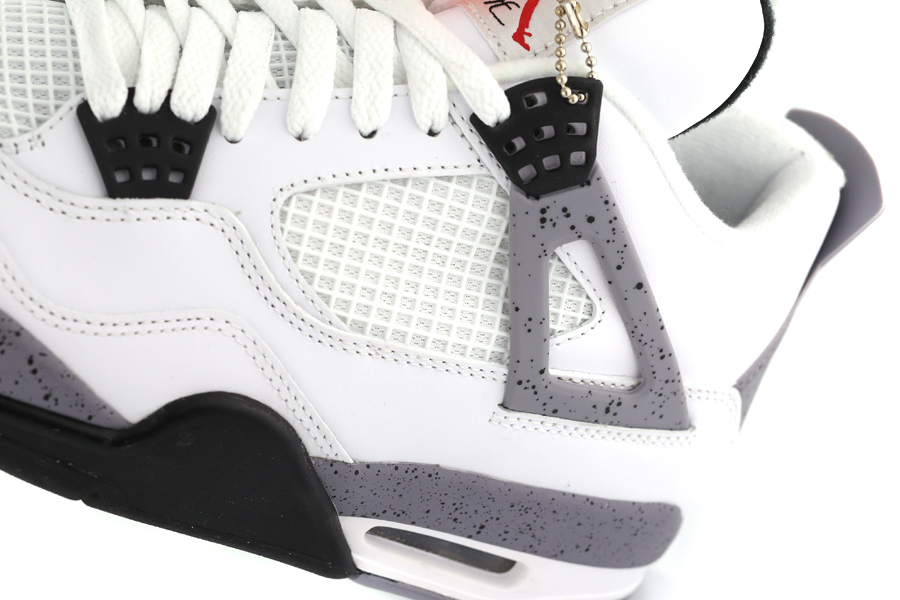
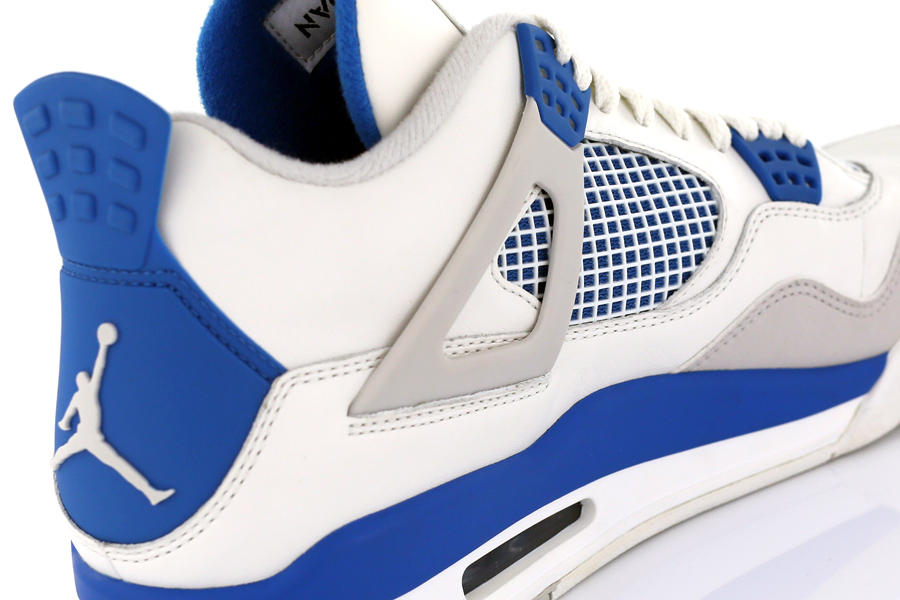
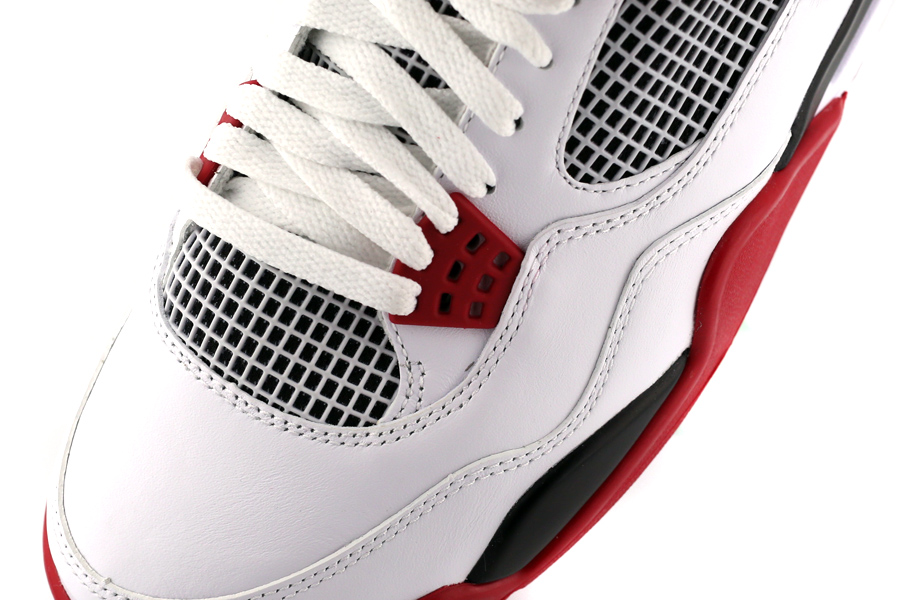

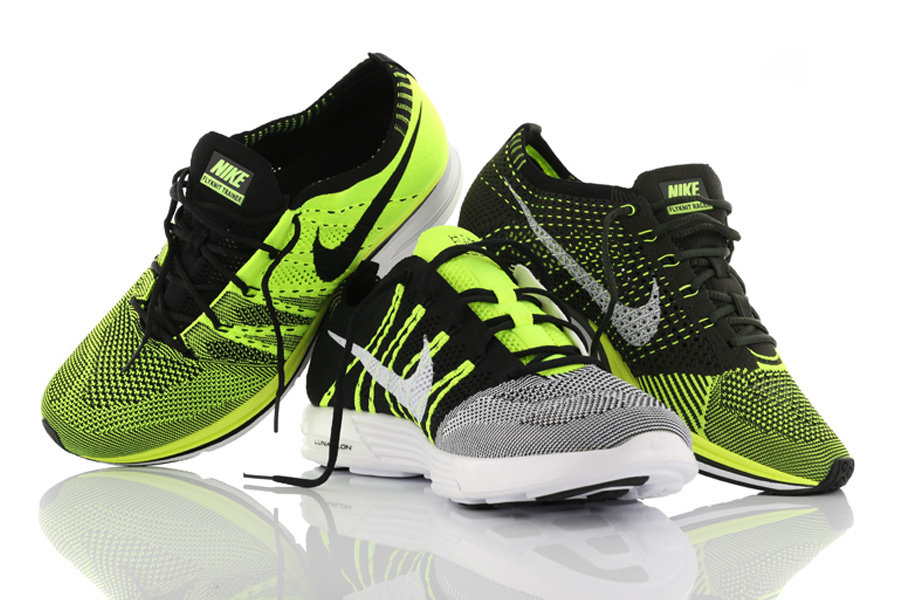
3 | NIKE FLYKNIT
While Nike is recognized as the leading source of athletic gear for nearly every sport across the board, the genesis of this global juggernaut of a brand lies within the running category. It makes plenty of sense that the pulse of Nike’s success is measured by what it does with that particular sport, and there’s no denying that developments like the original Waffle Racer, Air Max, Free, Lunar and others have served as vital points of innovation and creativity in Nike’s timeline. Each of the definitive features of those models has permeated the walls into other categories of sport, enabling its most talented designers to work their magic and create an exponentially broader collection of performance footwear.
In February, Nike Running changed the game once again with the introduction of Flyknit – an incredibly fascinating development that summed up forty years of runner feedback into one single thread. Using precisely engineered yarns and fabrics, Nike developed a featherweight, sock-like construction that targeted only vital areas of the upper to provide a true running shoe advantage without any unnecessary added weight. With one single thread in use, material waste was drastically reduced as Flyknit did not have to employ multiple materials. In addition, Flyknit introduced an impressive contrast with its minimalist structure and the thoroughly crafted knitted shell. It was an inspiring merger of groundbreaking design and exceptional function that required four years of trial and error experimentation to perfect.
Immediately following the introductory launch event in New York City, which brought in major sports media outlets from around the globe, Nike satiated consumer appetites by presenting the first wave of limited-edition releases at the Nike Sportswear retail store at 21 Mercer. This first capsule featured the Lunar-based Flyknit Trainer (limited to 100 individually numbered pairs) and a much rarer Flyknit Racer, all entirely designed by the revered HTM collective of Hiroshi Fujiwara, Tinker Hatfield, and Mark Parker. Three other HTM Flyknit collections followed later in the year, and a wide release of the everyday-runner Trainer model and the slimmer, form-fitting Racer became available in late July in an outstanding variety of colorway options.
Upon the initial release in February, Nike buffs likened Flyknit to the 2000 debut of the Air Woven, and while the similarities are certainly obvious, the comparison reveals one major difference; while both the Air Woven and Flyknit featured an exclusive set of limited HTM
releases at the start and adopted the concept car-like weave of fibers, the Woven was barely promoted by Nike and rather crept up on curious minds, eventually became a cult smash. Flyknit, on the other hand, was showcased on grandest sports stage of the year – the 2012 Olympic Games in London. With bright Volt-colored Flyknit Trainers proudly displayed on the Olympic medal stand by top US athletes like Michael Phelps and LeBron James, it was made certain that Flyknit was not intended to be a sleeper hit. In fact, Nike did all that it could to ensure that its latest design achievement would be a mainstream success, and considering the voluminous response to all the releases throughout the year, it was abundantly clear that Flyknit filled a void that hardcore runners and Nike loyalists alike were desperately looking to fill.
Along with the blockbuster success came some controversy involving Nike’s biggest competitor in the field. Months after the February debut of Flyknit, adidas unveiled PrimeKnit – a new running shoe design with a shockingly similar construction that also honed in on the idea of “less is more.” Much like Nike’s planned schedule of a limited release followed by broader availability, adidas launched 2,012 pairs of the PrimeKnit in London right before the start of the Olympic Games. In September, Nike and adidas took their battle of ‘Knit’ to their respective legal departments, with the most recent publicized update coming in late October (adidas would be allowed to continue production after an initial halt was ordered). While it has always been understood that Nike and adidas have been direct competitors, this ‘Knit’ conflict placed a rather harsh spotlight on this rivalry, giving sneaker enthusiasts a bit of an enticing sub-plot to the already captivating Flyknit story.
By year’s end, it was clear that Flyknit was certainly the undisputed highlight of footwear innovation in 2012 and perhaps over the last several years. With Nike ready to broaden the running core of Flyknit with the Lunar Flyknit One and the Chukka in 2013, we can only imagine what the team of architects and engineers in Beaverton are cooking up at this very moment. If history tells us anything, we can certainly expect this raw and fresh technology to extend beyond the running category and likely eventually see heavy usage in Nike Sportswear, much like how Hyperfuse and Engineered Mesh have been introduced to the classic Air Max silhouettes. But what we do know for sure is that what we’ve seen with Flyknit thus far is just one single thread of a massive intertwining story that will further weave its way throughout the brand in the coming years.
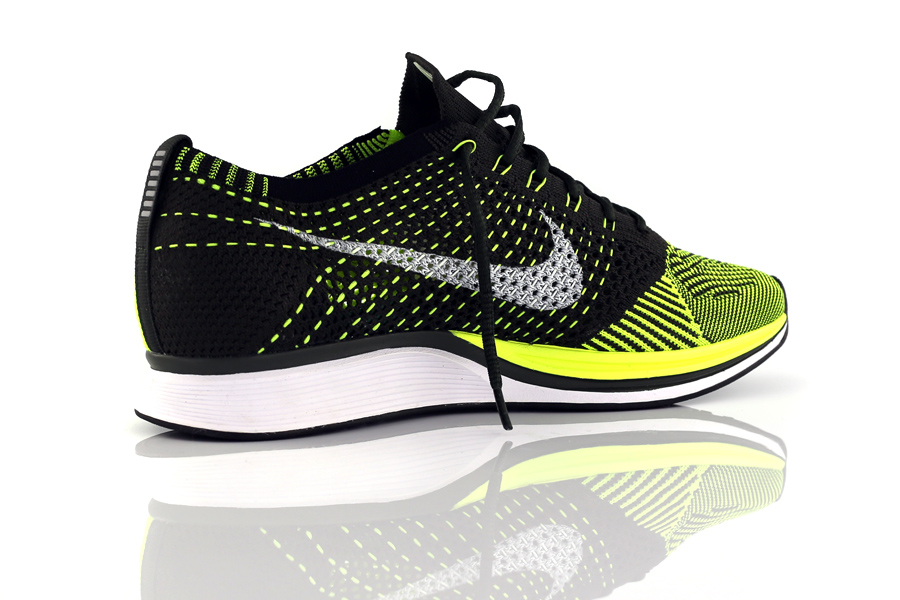

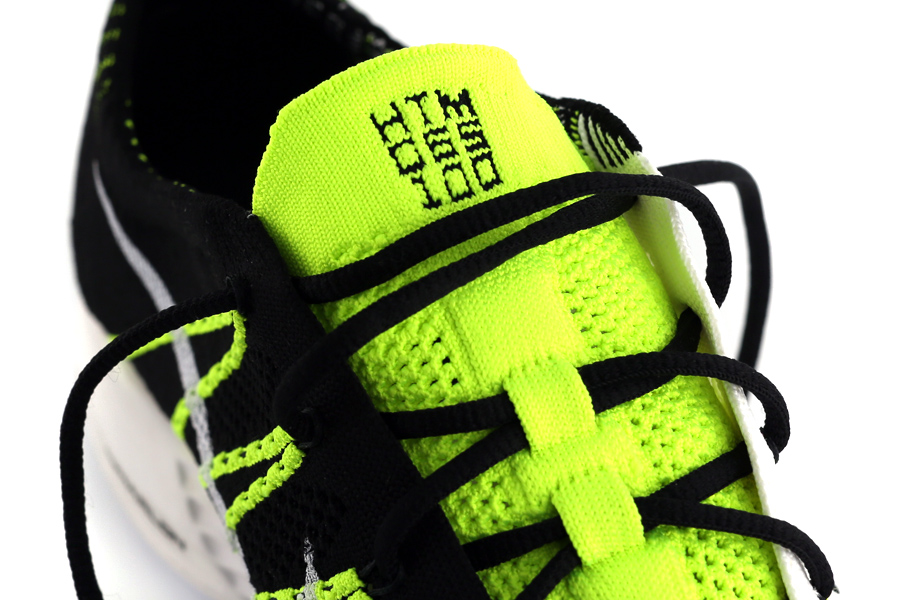
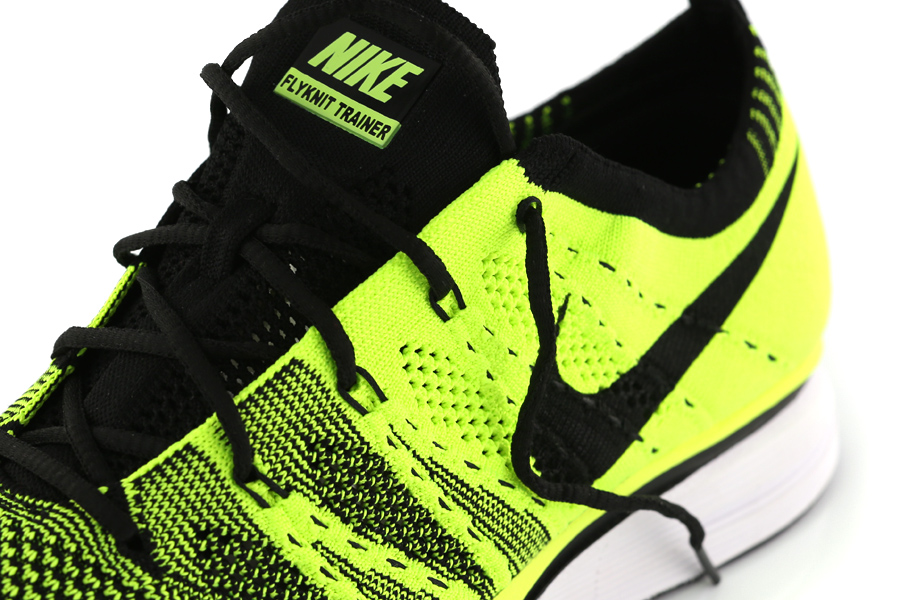
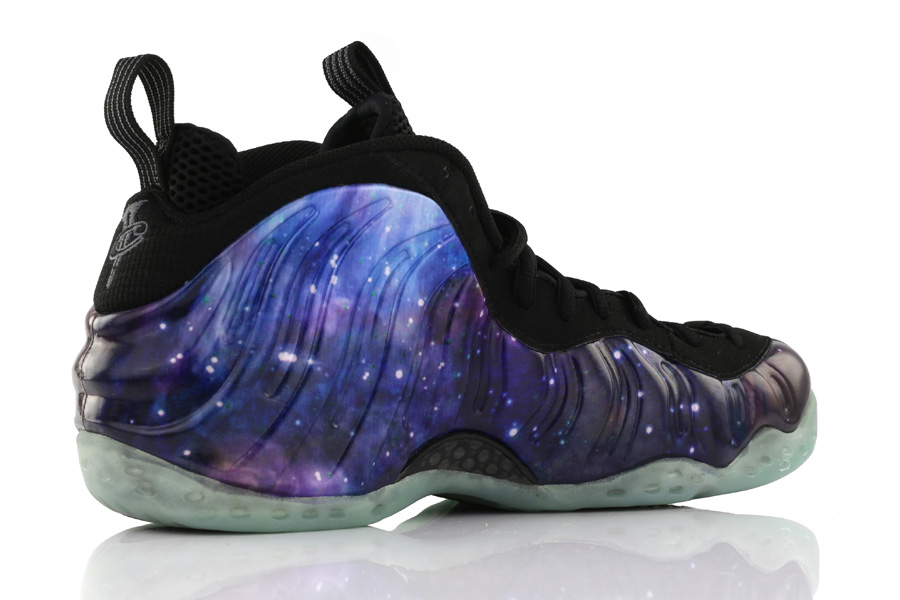
2 | NIKE AIR FOAMPOSITE ONE “GALAXY”
In just a few short years, the public perception of the original Nike Air Foamposite One model has undergone quite the rapid metamorphosis. From the time of its original release in 1997 up until about two or three years ago, the Foamposite was, for the most part, nothing more than another great shoe in a long line of innovative and fondly remembered Nike Basketball models. While the shoe definitely enjoyed a strong cult following within the sneaker community and especially in certain regions of the country, it wasn’t until some new colorways like the Eggplant and Copper versions emerged that consumer interest was reinvigorated like never before and Foamposites became a juggernaut must-have sneaker commodity for the masses. The fever only spread from there, and now Foamposites unthinkably challenge Air Jordan Retros for consumer dollars at retail, taking the shoe to unseen levels of popularity far beyond its original late 90’s heyday.
Both in terms of OG retros and more recently concocted colorways, the Foamposite aesthetic approach has almost always been steadfastly uniform in its blueprint: solid colored foam upper, black eyelet strips and tongue, corresponding accents, clear outsole. While there have been some occasional variations over the years, most have successfully clung to this formula, but as more and more predictable colorways were churned out, it became inevitable that the forward-thinking Nike design minds would eventually figure out a fitting way for the shoe to evolve. When the Foamposite’s surging dominance made it a no-brainer for a role in the 2012 All-Star collection, the perfect opportunity arose to take the shoe where no Foamposite had gone before.
With the NBA All-Star Weekend taking place in Orlando this year, Nike chose a NASA-inspired space exploration motif for their annual sneaker collection, this time around supplementing the usual signature and team All-Star colorways with an ambitious multi-shoe Nike Sportswear capsule as well. Joining a trio of Dunk Highs and two Air Flight Ones was the most jaw-dropping Air Foamposite One the sneaker world had ever seen. For the first time ever, the shoe featured a full graphic printed upper and glow in the dark outsole, which doesn’t sound all that gamechanging, but one look at the
galactic outerspace landscape that covered the length of the shoe made it quite clear that these would become the most sought after Foamposite release the game had ever seen.
Those early assumptions didn’t even scratch the surface of the madness that would ensue as the February release date approached. Many devoted individuals began to camp outside of stores over a week ahead of time while others held out hope that they’d be able to defy the odds and snag a pair online. Those bubbles were burst a few days before the release when Nike announced that the shoes would not be sold on NikeStore, leaving anyone who wanted a pair forced to go out and brave the mob scenes if they wanted even a sniff of the “Galaxy” Foamposites. Things got real when over 3,000 people showed up at the midnight release at an Orlando mall, forcing the need for intervention by police riot squads and eventually resulting in an impromptu postponement of all sales. While some shops were still able to maintain order through wristband and raffle systems, many retailers, including the entire chain of House of Hoops locations in particular, were forced to cancel the release altogether in fear of the same kind of mayhem arriving at their front doors.
While plenty of people were lucky enough to get their hands on a pair of the limited kicks, plenty more came up empty and the release hysteria would spark the implementation of a number of procedural changes in the way sneakers are now released. For Nike and many other retailers, there are no more midnight releases and Twitter RSVP systems have replaced the weekly lineups, and as a result, it’s harder than ever to actually obtain a pair of shoes you want. It’s hard to believe that something so good could come along and indirectly have such a negative effect on the sneaker game, but the Galaxy Foams may have done just that. On the one hand, things are more orderly and civilized now, but sadly, some of the fun, adventure and thrill of the hunt seems to have been drained out in the process. Is it Nike’s fault that they make shoes so cool that people are ready to riot for them? That seems like an unfair finger to point, but it’s undeniable that the Galaxy Foamposites and the chaos that came with them will have an impact on the way high-profile releases are distributed and sold for years to come.
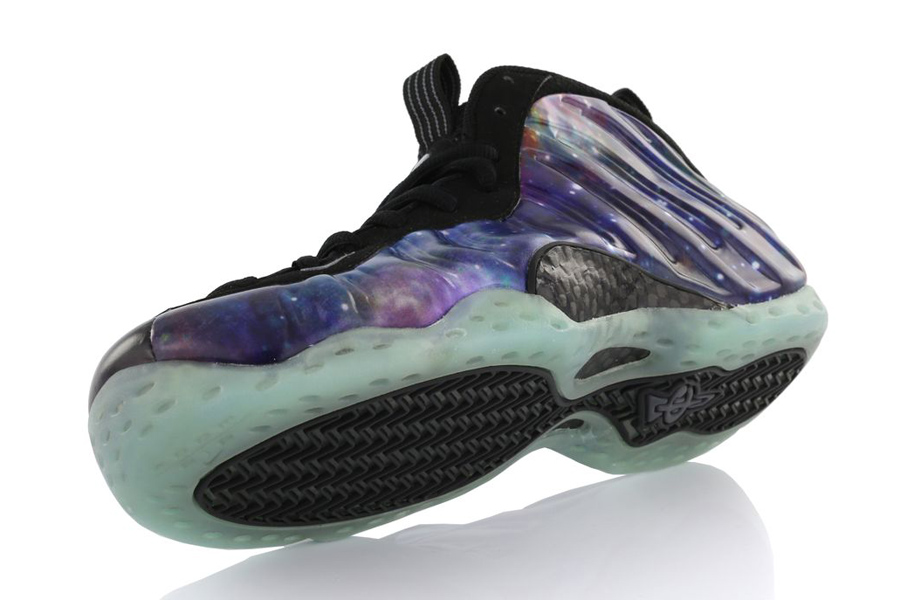
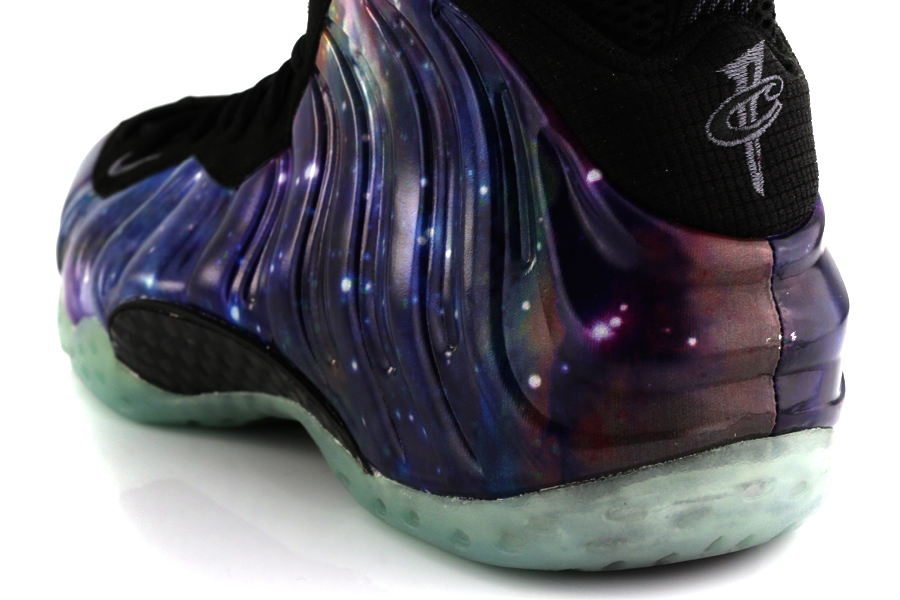
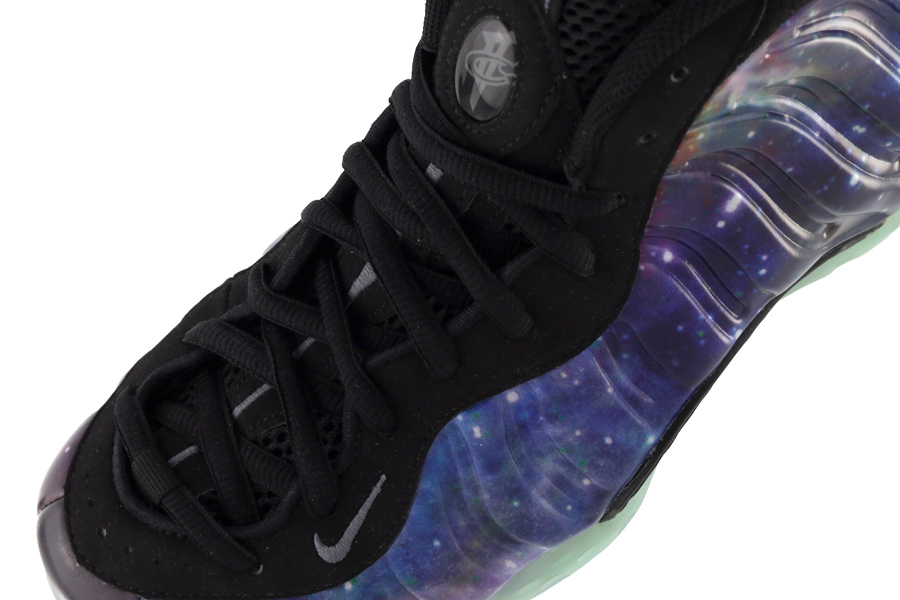
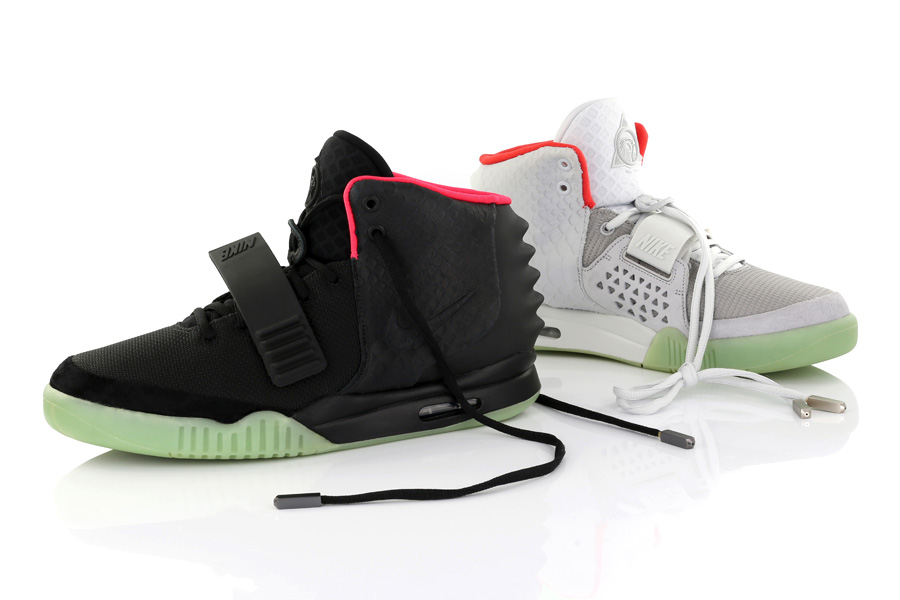
1 | NIKE AIR YEEZY 2
The original Air Yeezy model broke through some notable boundaries, leaving quite the impactful impression on the sneaker landscape in the process. It was Nike’s first ever signature shoe for a non-athlete and a somewhat unlikely pairing given Kanye West’s polarizing tendencies and flare for controversy. As we all know, the folks in Beaverton have never been shy when it comes to taking risks, and in most cases it’s paid off handsomely – the original Air Yeezy being a prime example of Nike’s outside the box leanings and knack for aligning themselves with cutting edge trendsetters and leaders in their respective crafts. Kanye may rub some people the wrong way from time to time, but it’s abundantly clear that it’s never been enough to stop anyone from wanting a pair of his shoes.
The release of the Nike Air Yeezy in the spring of 2009 changed the whole mindset of the sneaker game, taking the notion of the “must-have” release to unforeseen levels of hypebeastery. The days of getting lucky at your local sneaker spot a few days late were long gone, and from now on, every high-profile release would require some carefully calculated and concerted efforts on or before drop day or you’d be left in the dust with only high-priced resellers as your alternative afterwards. While all this was going on well before the Yeezy, it certainly seemed to amp up the urgency for such sneaker copping endeavors and has been felt ever since.
So what would happen when they bring out the sequel to the Air Yeezy in a frantic new climate of heightened awareness, guaranteed release day mayhem and resale-mania? The answer to that was almost too crazy to believe, but it started long before they finally hit shelves this past June. The runaway Air Yeezy 2 hype-machine embarked on its maiden voyage all the way back in February of 2011 when some quick flashes of the shoe appeared on Kanye’s feet during his cameo as the villain in the Robert Rodriguez-directed Kobe mini-movie spot, The Black Mamba. The sneak peek was more than enough to get everyone’s attention and spark the initial debates and speculation on its merits. A lot of questions were answered when Mr. West hit Europe that April and was not shy to show off the upcoming model all over the streets of London and Paris. These better looks gave some nice indications of the overall shape, as well as some notable inclusions like the Air Tech Challenge midsole and return of a midfoot strap, but what about colorways? How many would there be and what would they look like?
Little by little, more and more images surfaced and before long, it appeared evident that there would be at least two colorways of the Yeezy 2, both taking some cues from the original Yeezy releases. Foregoing the “Net” version this time around, the Air Yeezy 2 stuck with black and grey bases with Solar Red color pops in the lining and glowing green soles – a look familiar but not identical to the original make-ups. As we got some better views of the two colorways, the finer details of the Yeezy 2 began to come into more focus as well. Aside from obvious changes like the lower ankle cut and wild reptilian-inspired heel molding, the shoe also featured a suede mudguard, faux anaconda texture on the rear panel of the upper and an even closer look revealed an Egyptian motif running throughout as well, with the Horus emblem on the tongue and “YZY” hieroglyphics found underneath the strap. Leather lace-locks and metal lace tip aglets, along with luxurious embroidered dustbags, were just a few more details to further insight the hysteria that would no doubt ensue when these finally made it to stores. But oh yeah, when would that be?
Since the first glimpses of the Air Yeezy 2 back in early 2011, release date rumors flew around left and right with reckless abandon – some even coming from fairly reputable sources in the industry. The first semi-official date was March 23rd, which had some ambitious would-be buyers camping out beginning as far back as this February and posting up for weeks at a time before a string of pesky postponements threw a serious wrench in their works. It was revealed that the March date had been pushed back to April 13th, which then in turn was also delayed until the eventual release target of June 9th came to glorious fruition at long last. With each postponement, the sneaker-lusting public grew more antsy and nervous and there was even some buzz of an outright cancellation. Prayers were answered and the shoes hit select Nike Sportswear retailers on time for its scheduled June arrival, but with a ravenous demand for the shoes and only a scarce few to divvy up among customers, shops were forced to go to extreme lengths to maintain order.
With Twitter RSVP systems and things of the like already in place at some shops after Galaxy-mania, some crowds were effectively thinned, but at other spots, things were left to some more under the table measures, with several privately owned shops acting as resellers themselves and charging their loyal customers drastic mark-ups for the shoes. Granted, many of the purchasers would of course be aiming to flip their Yeezy 2 conquests themselves, but it still begs the question of where the line is in regards to that being an acceptable business practice. We’d already seen things get ugly, but now, when certain highly-coveted shoes come along, will retailers continue to follow suit and sell them for above their suggested retail price and how can this be tolerated? It’s gotten hard enough to get the shoes you want, but when the store you buy them from charges you the same price as the reseller you’re trying to avoid dealing with, it definitely doesn’t leave you with many options.
The Air Yeezy 2 was an exercise in capitalism at its best from almost any angle you can look at it from, but just because some of the negative connotations that plagued the release may have soured some to its eventual legacy, the desire and demand for it were all the accolades it ever needs to be considered a legendary shoe. Whether you love or hate Kanye West and the Nike Air Yeezy 2, like their co-designer and namesake, when you get past all the hype and hoopla that surrounds them, the actual art and style at the core is what really drives it all. There have been plenty of failed “entertainer x product” ventures over the years and just because you have a hot celebrity and a good product, it doesn’t always translate to high demand and large profits.
The Air Yeezy 2 came along and hurdled all obstacles and haters on its way to the top, giving us our hands down biggest sneaker story of the year and one of the most luxurious and uniquely original Nike designs to ever release. Regardless of how you feel about Kanye West, chances are that if you’re reading this now, you probably lusted after a pair of these beauties at some point this year whether you’ll admit it or not. And with Kanye already claiming to have started sketching the Yeezy 3, we shudder to think ahead to the delightful chaos still yet to come.
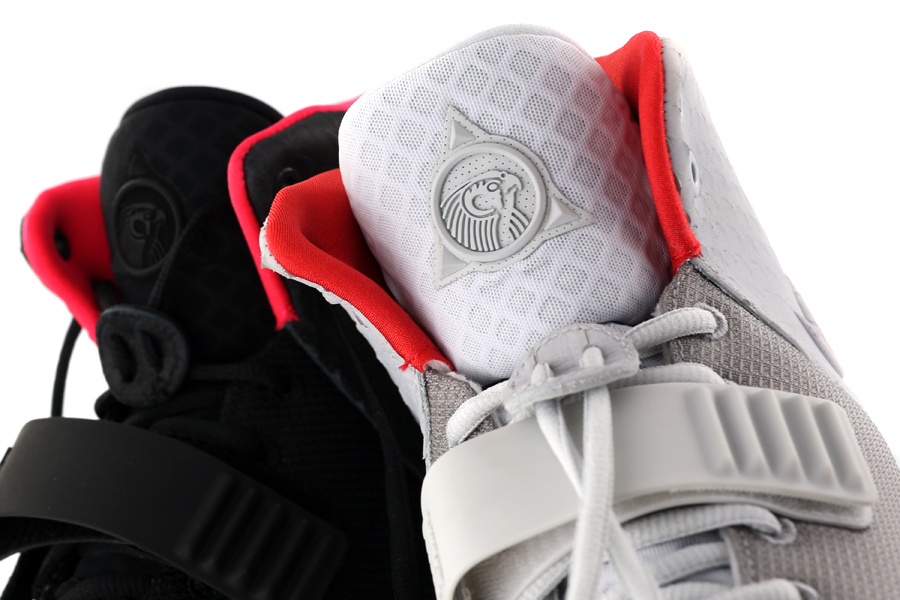

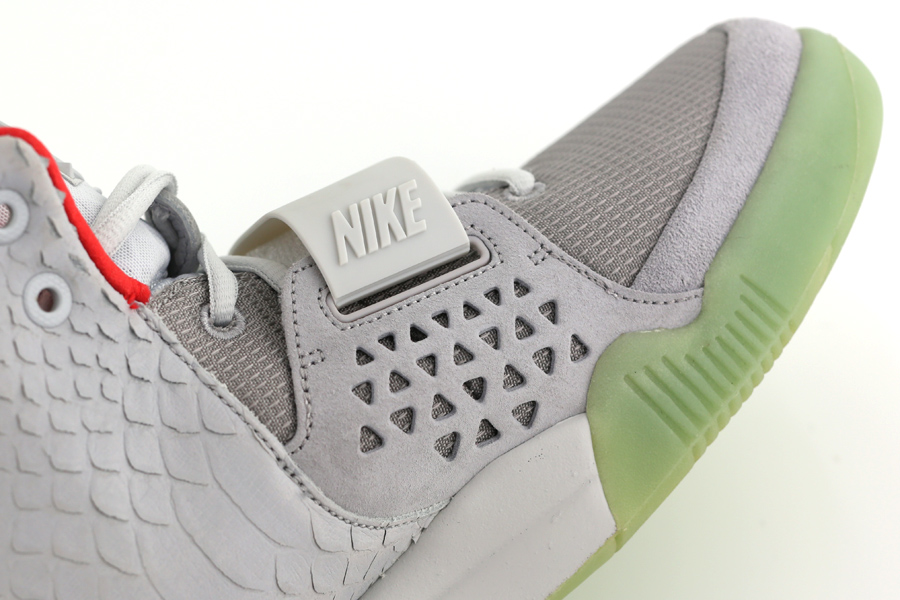
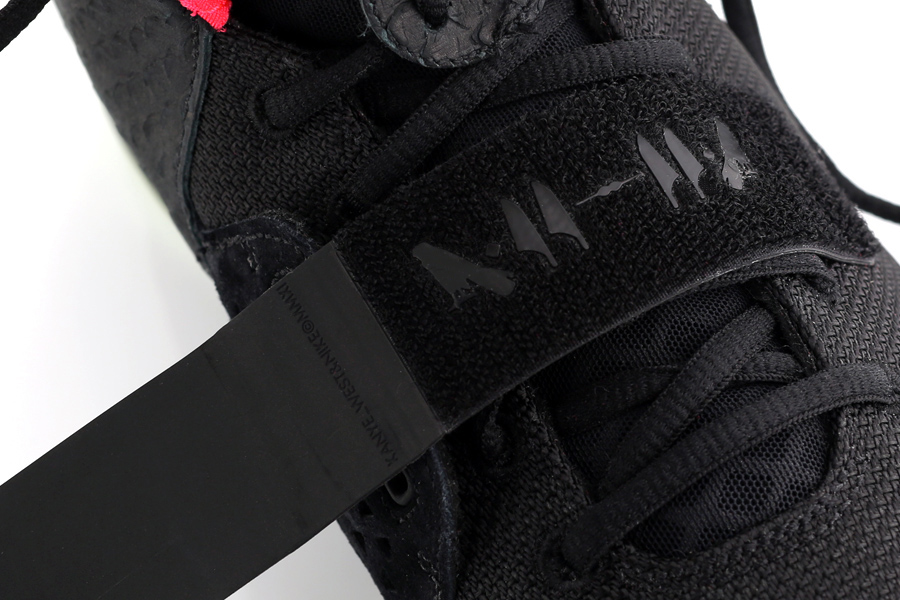
Now that you’ve checked out the entire Sneaker News Top 30 of 2012 list, purchase the book using the links below!
Purchase the Sneaker News 2012 Top 30 Book
$23.00 | SOLD OUT
THANK YOU…
Josh Benedek
Russ Bengtson
Buckwild
Bradley Carbone
John Geiger
Jenna Golden
Chad Kersman
Matthew Kneller
Jason Negron
Mike Packer
Brian Strong
Matt Ting
Leo Vergara
Dave Vericker
KeJuan Wilkins

Check out our previous Top 30 lists!










